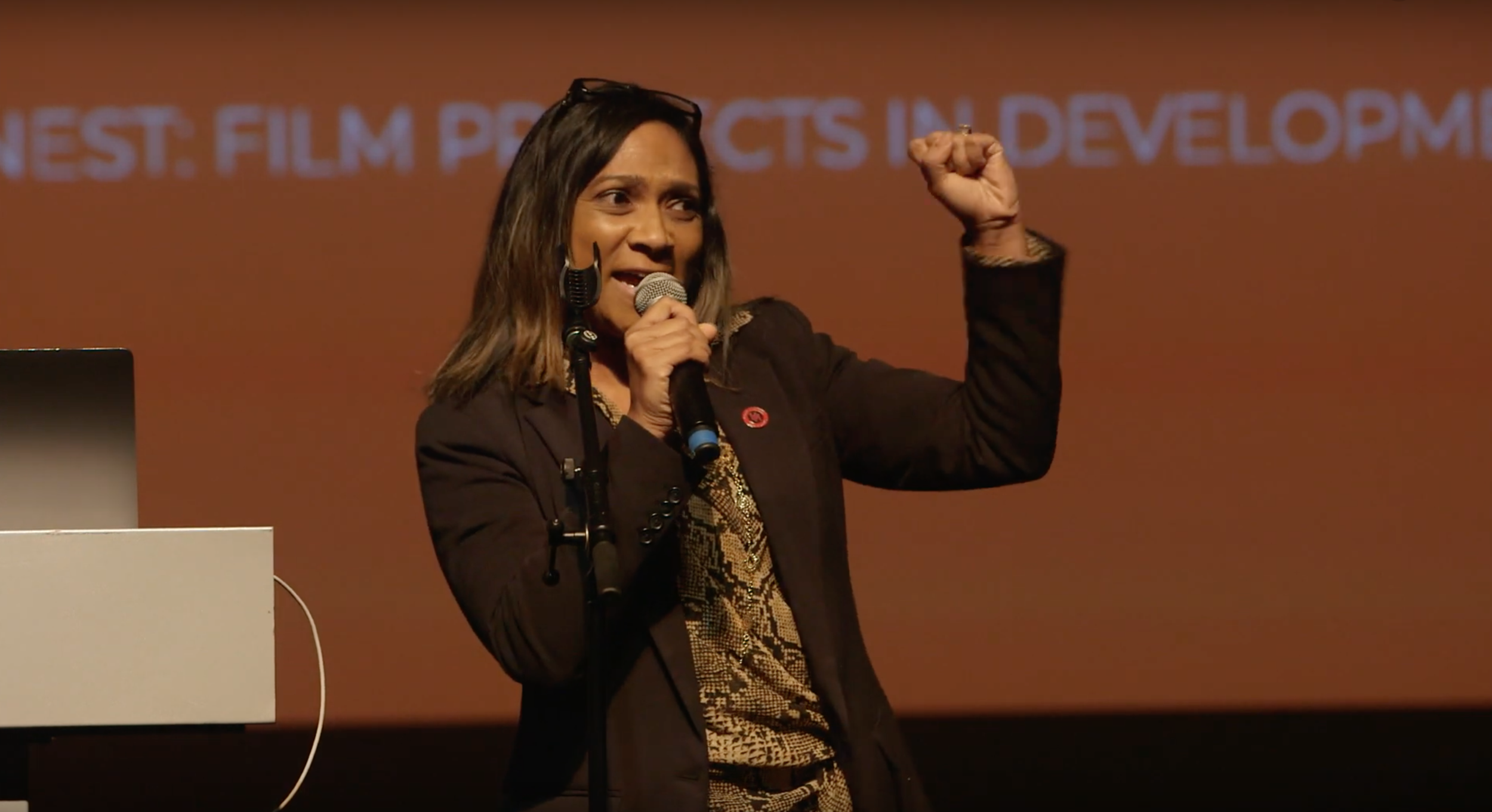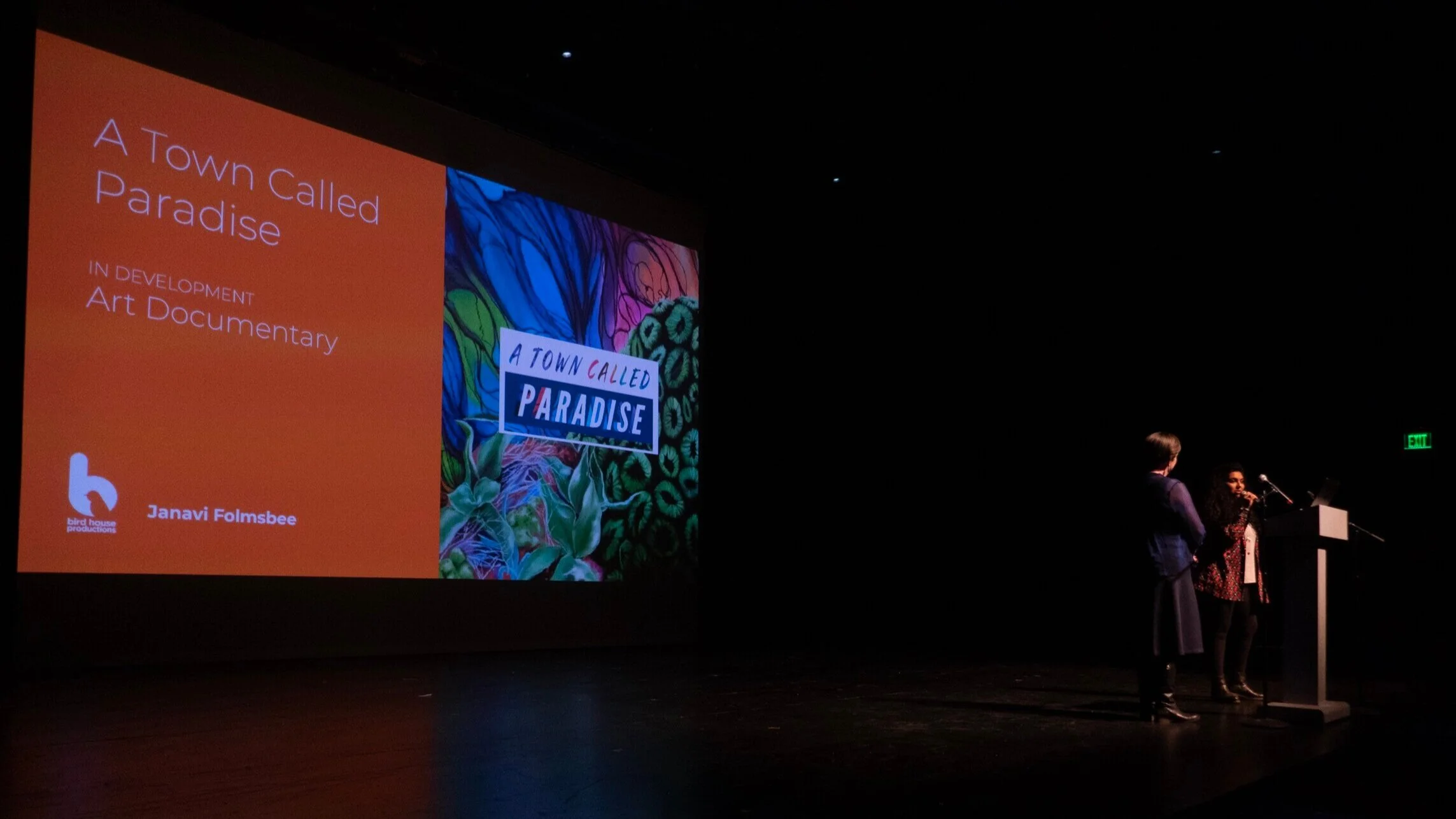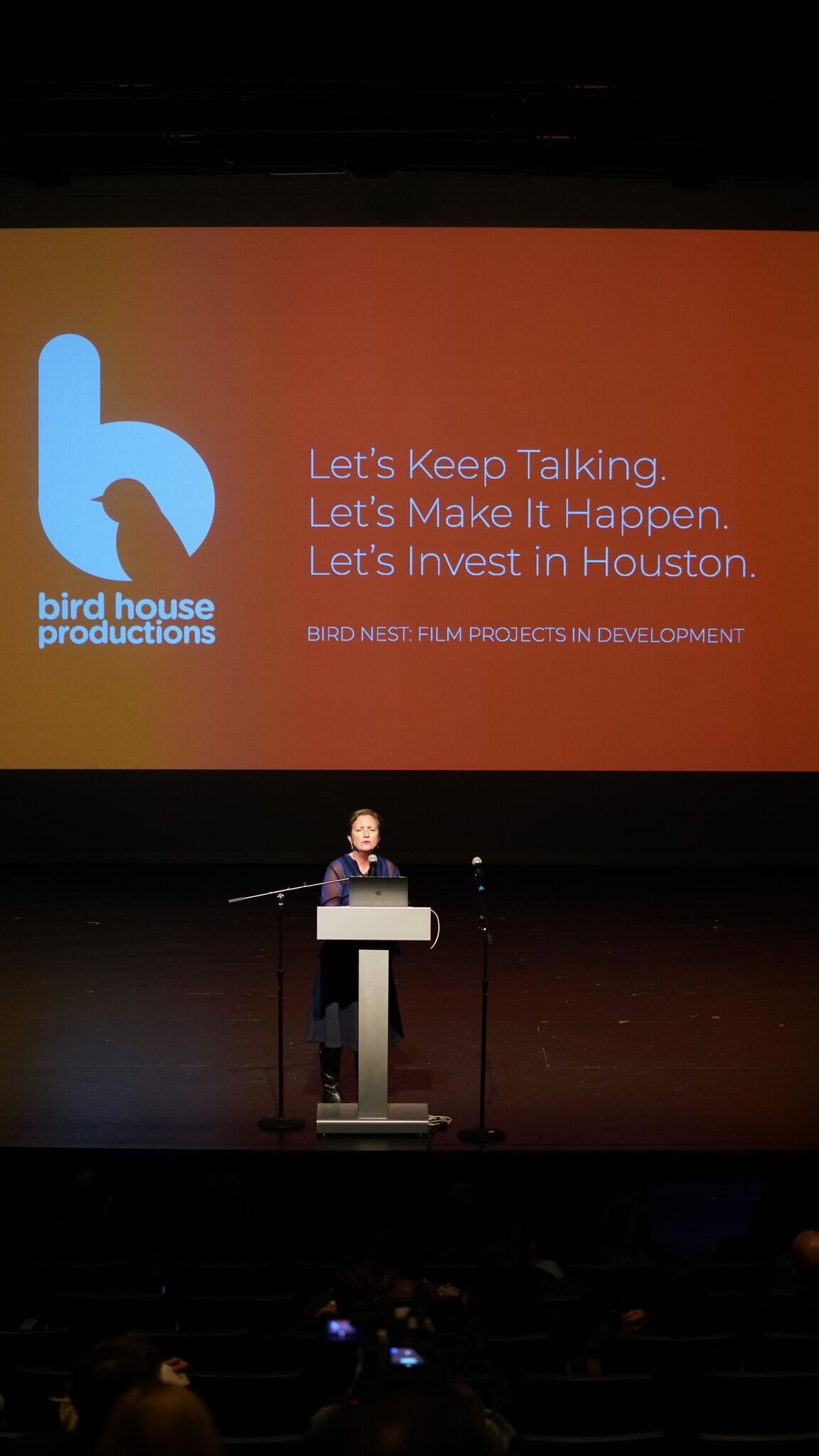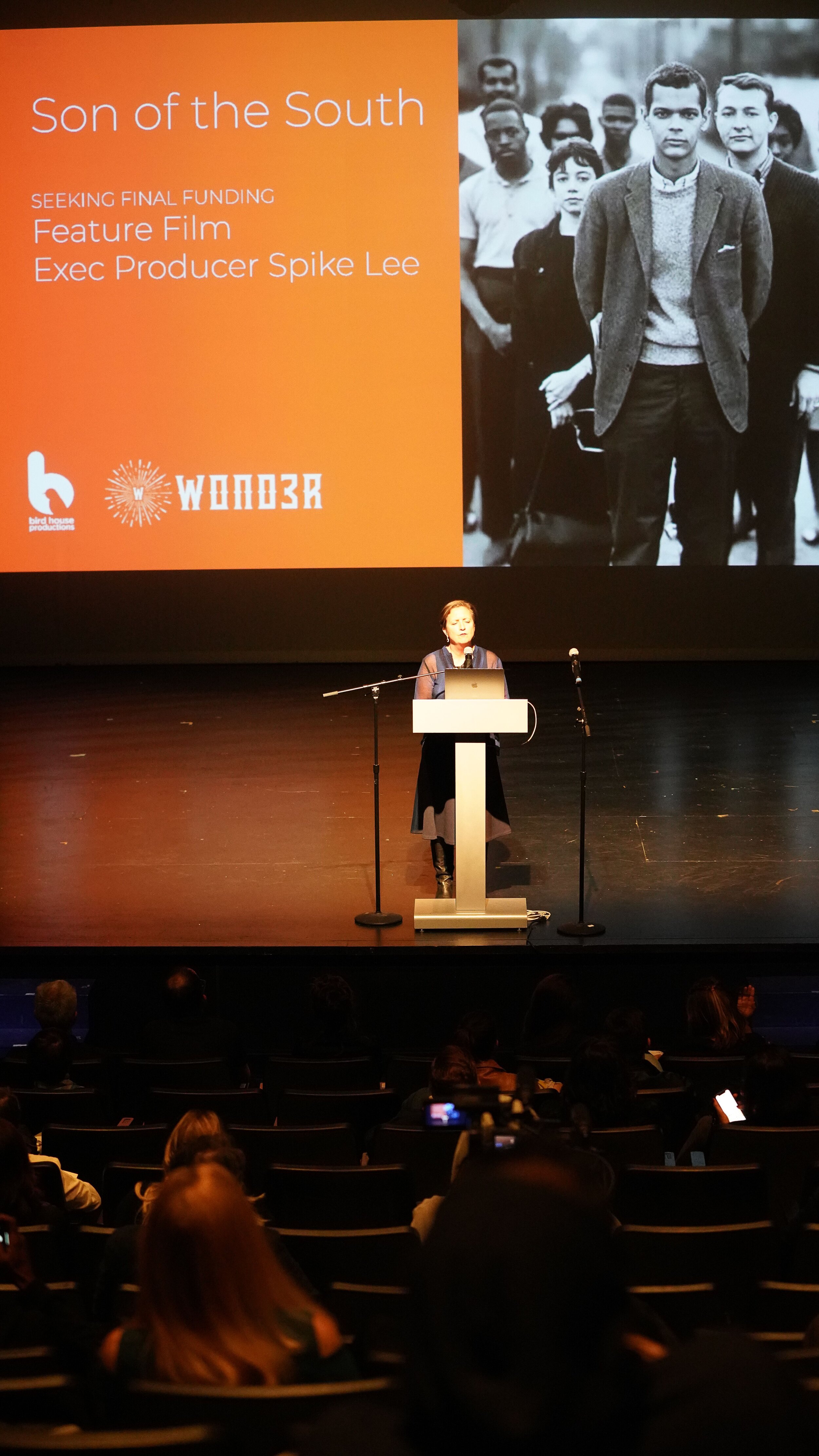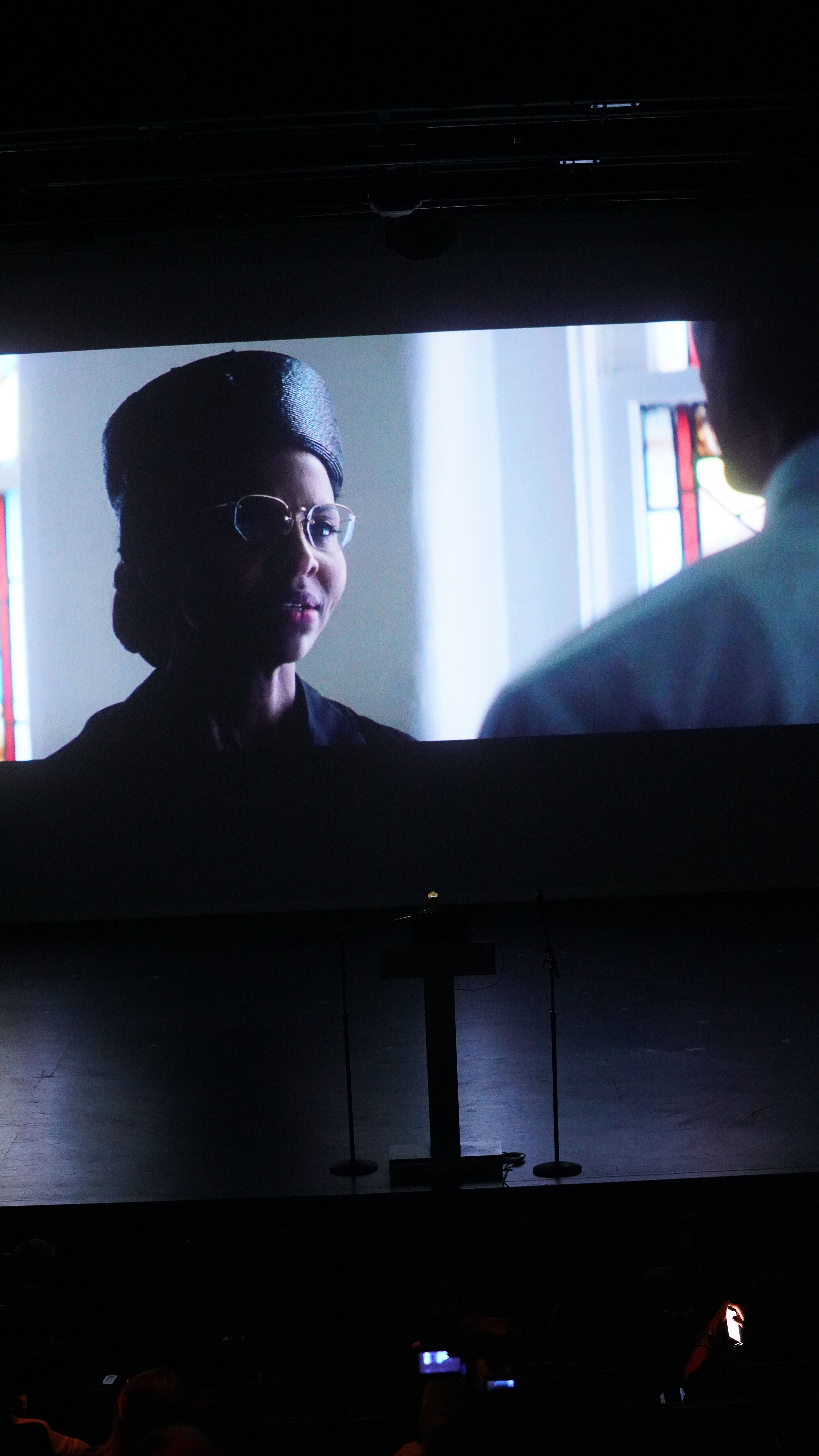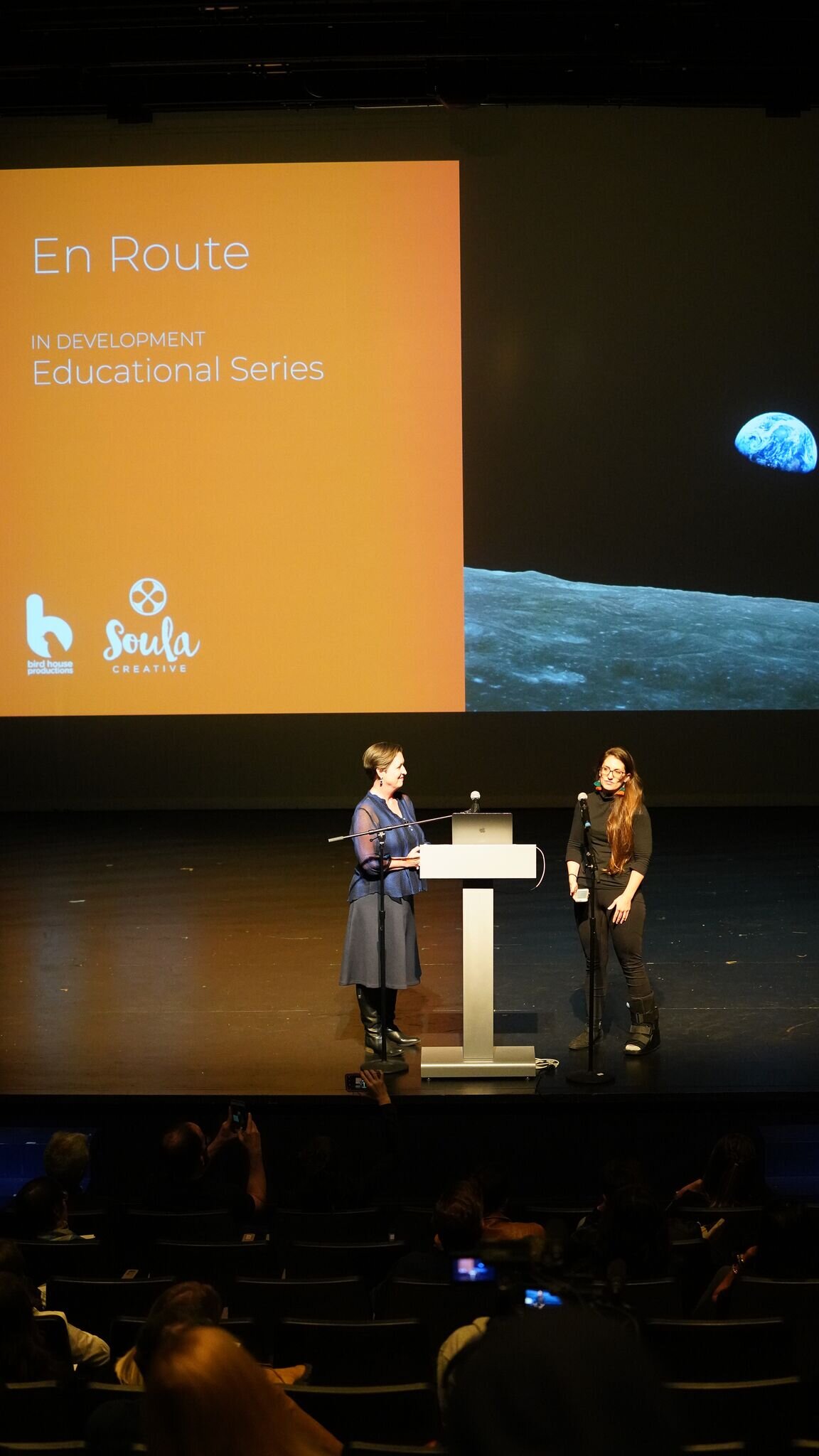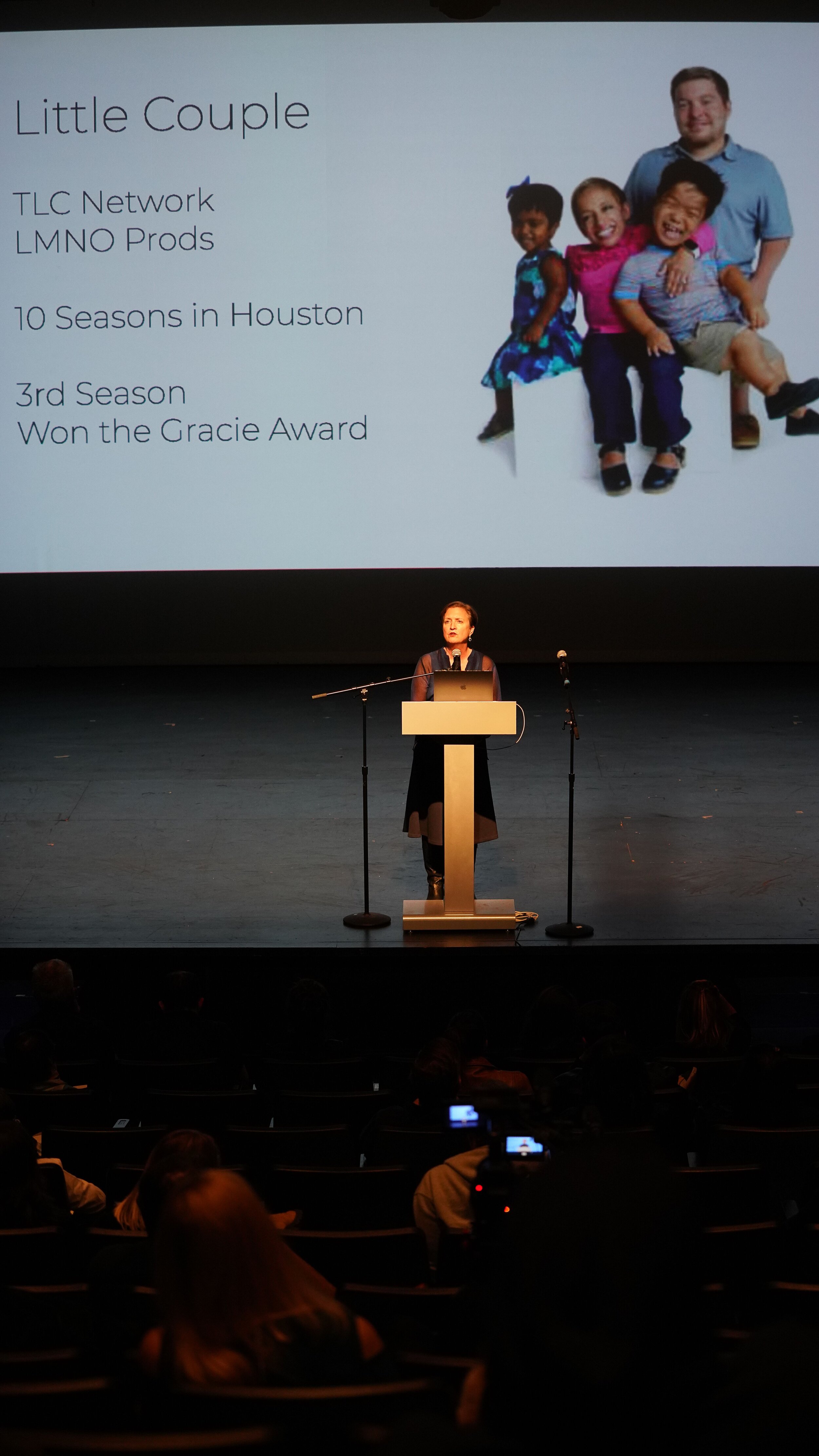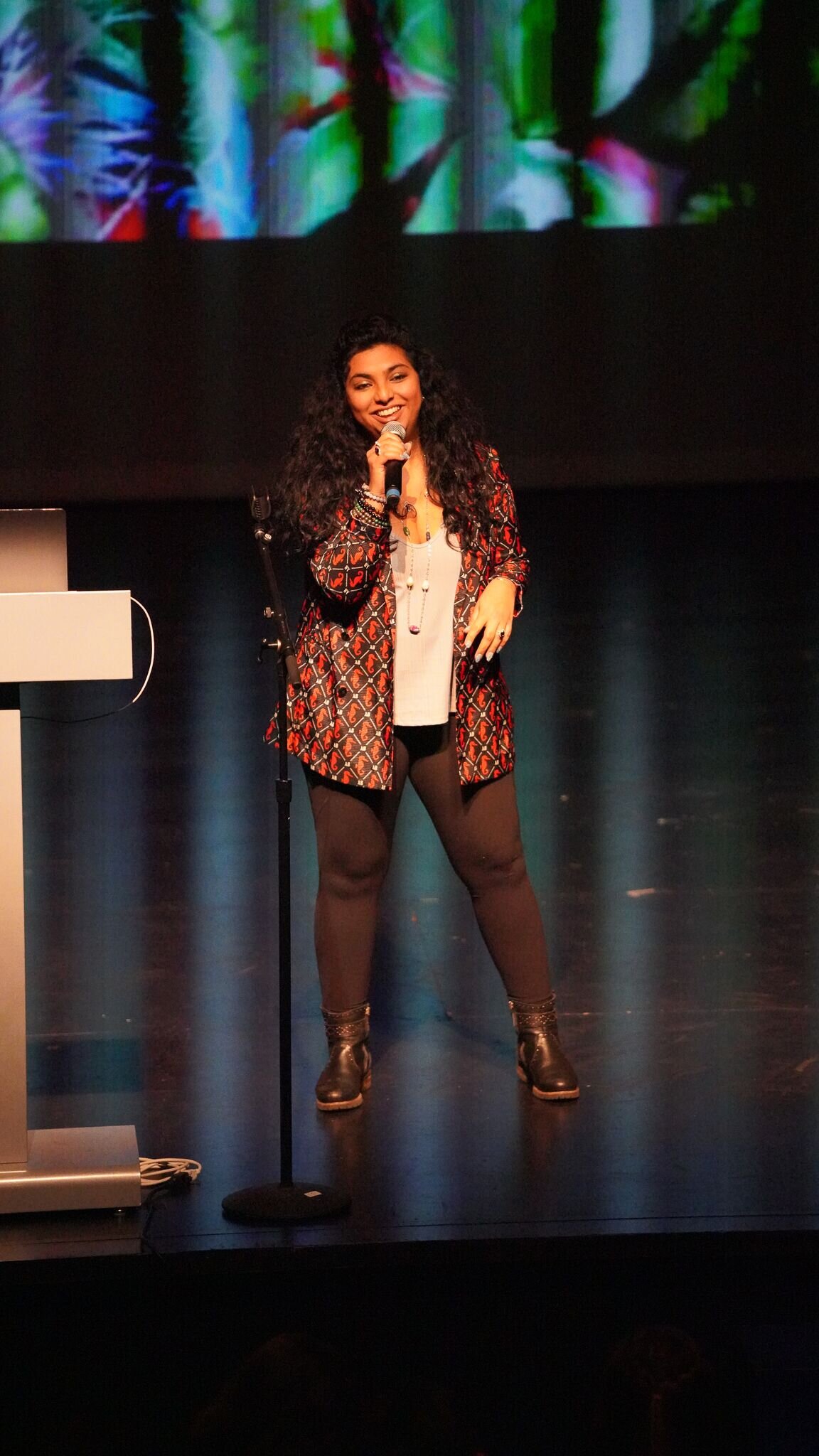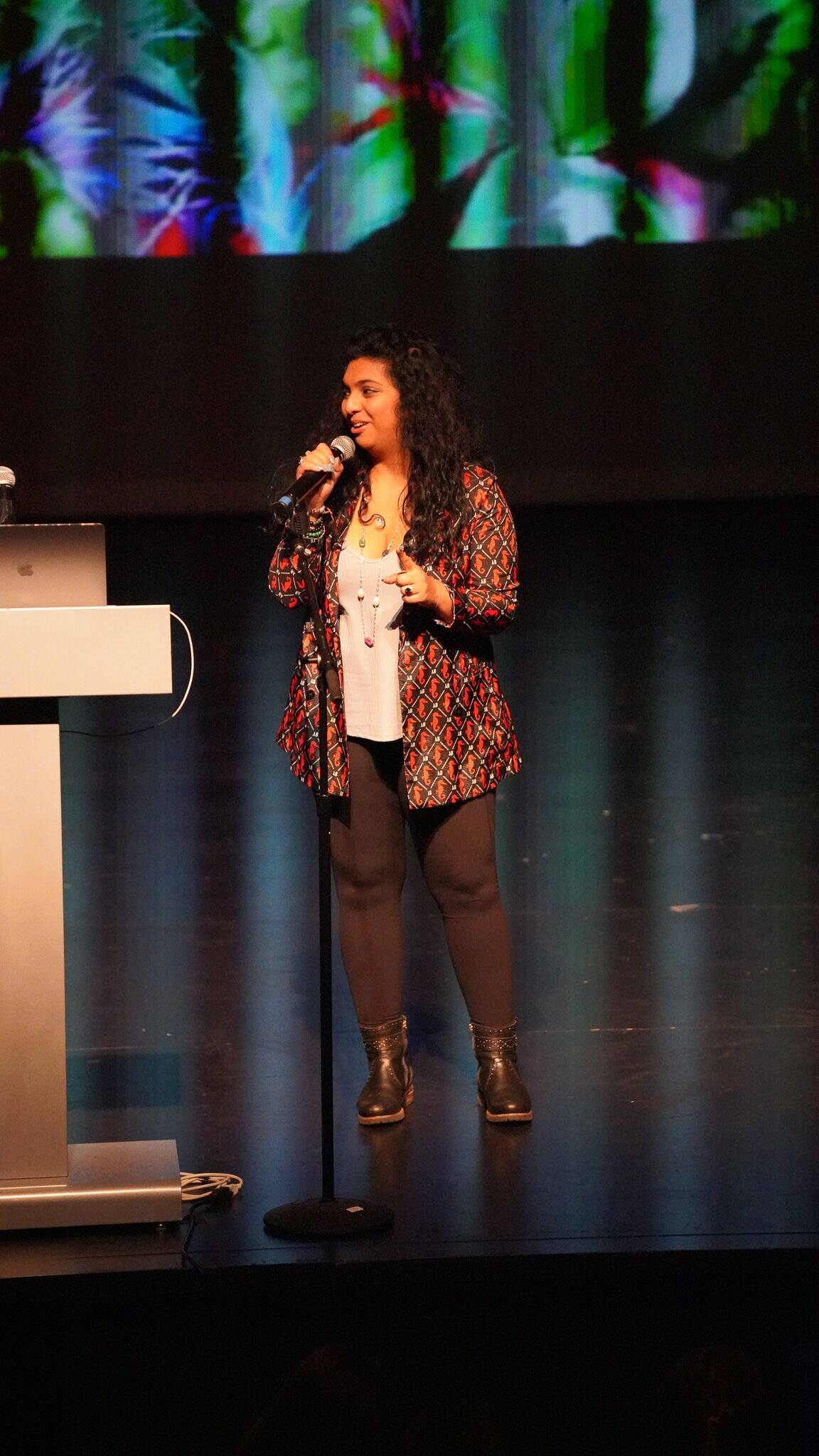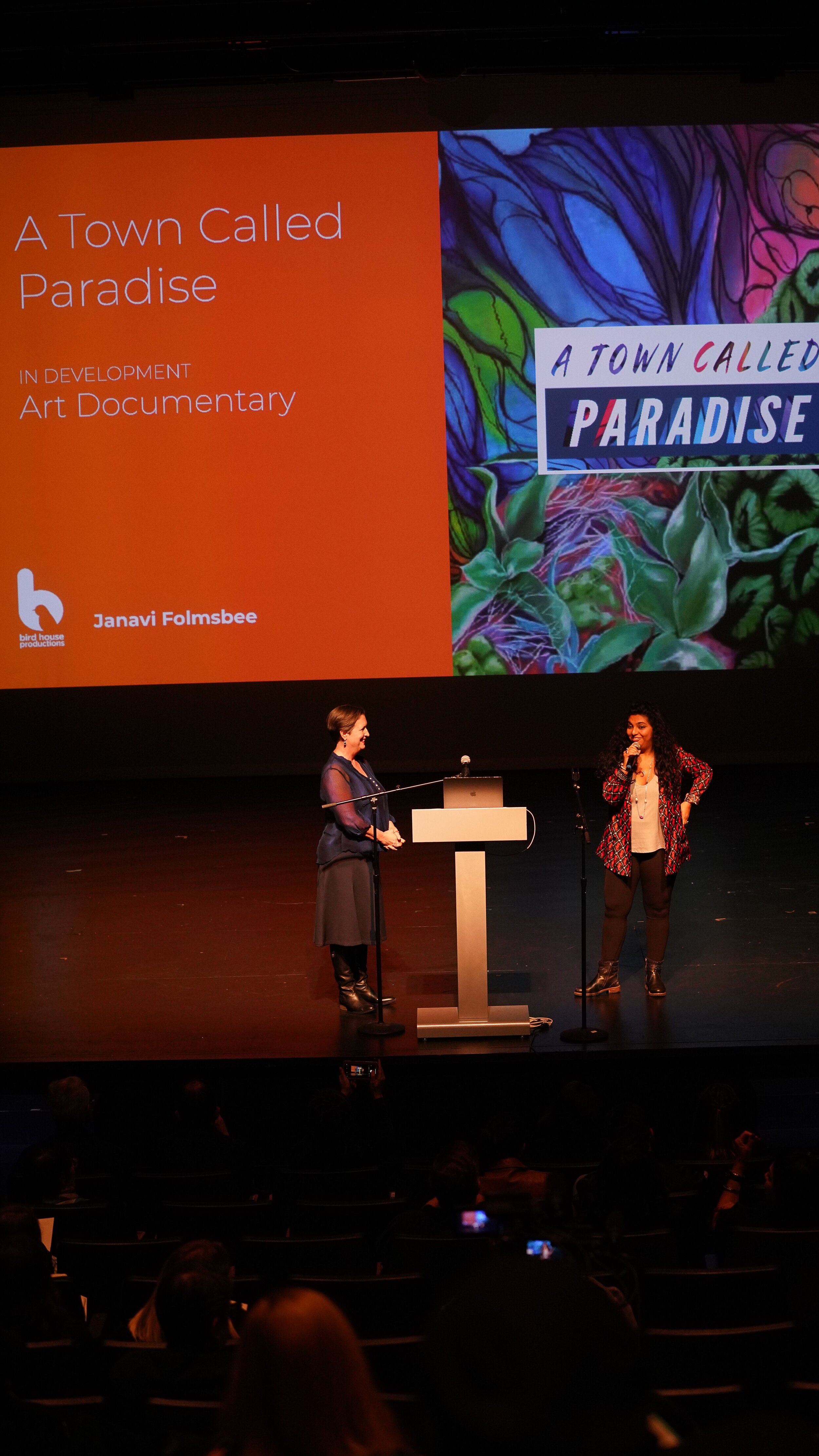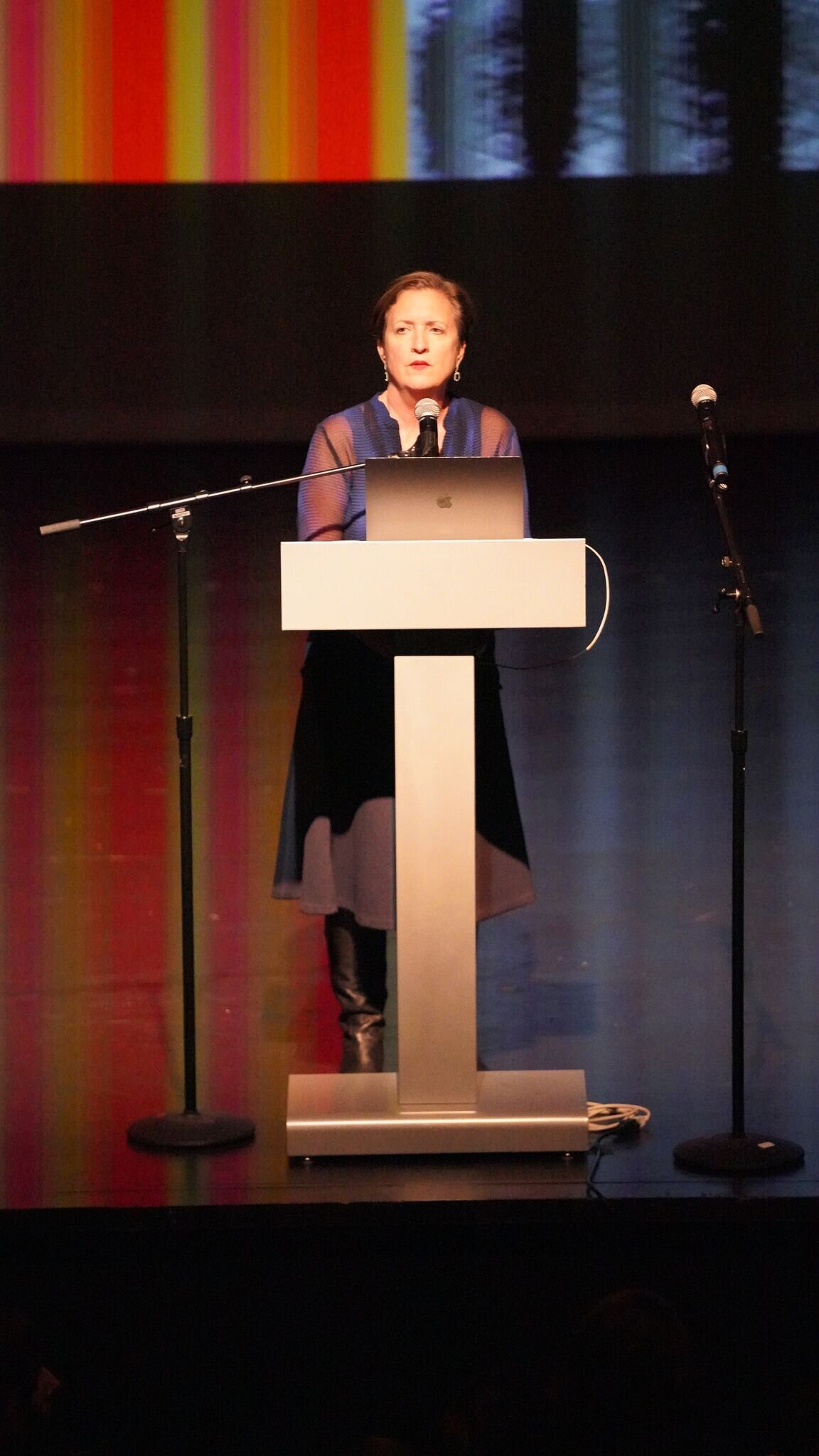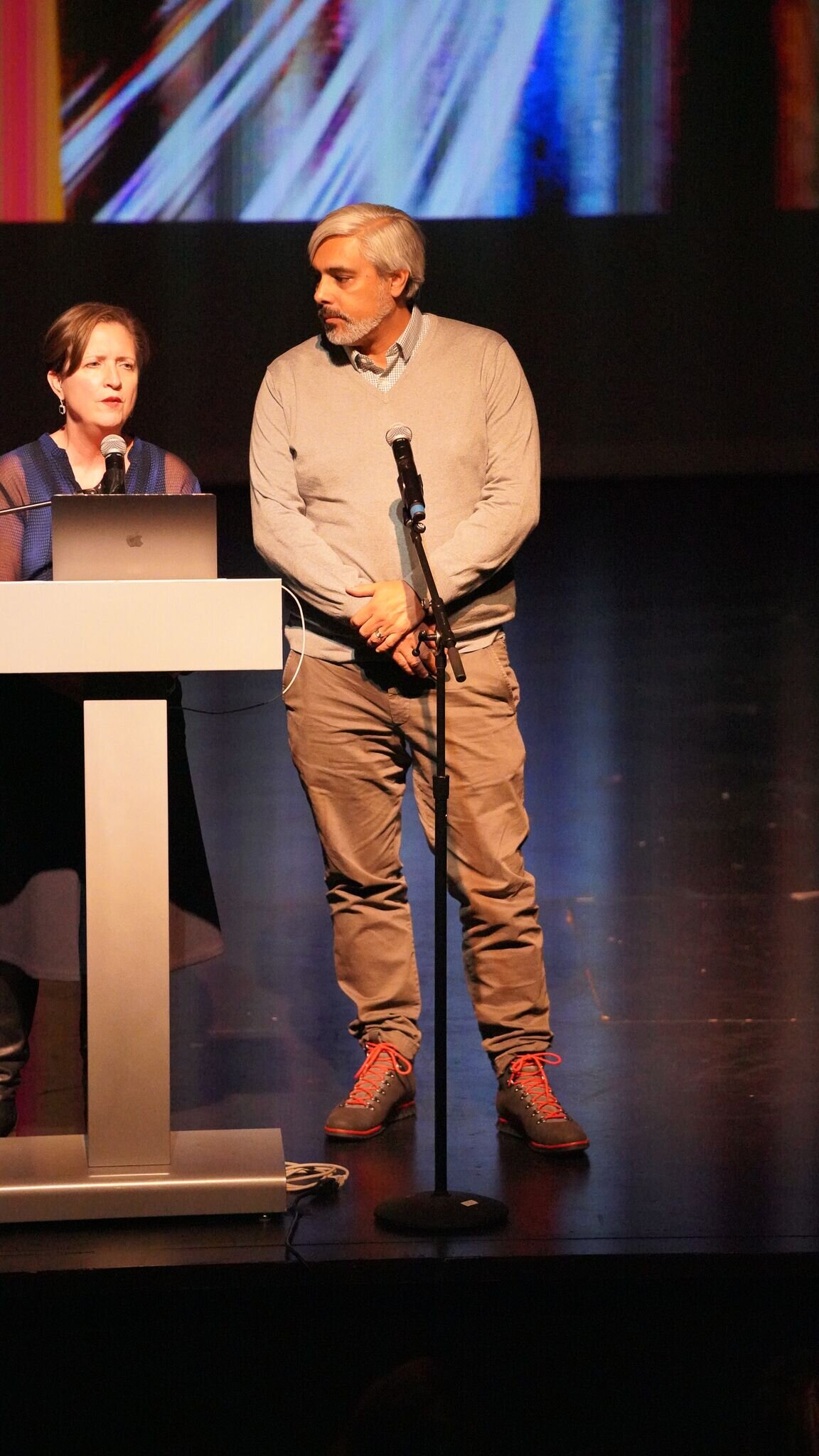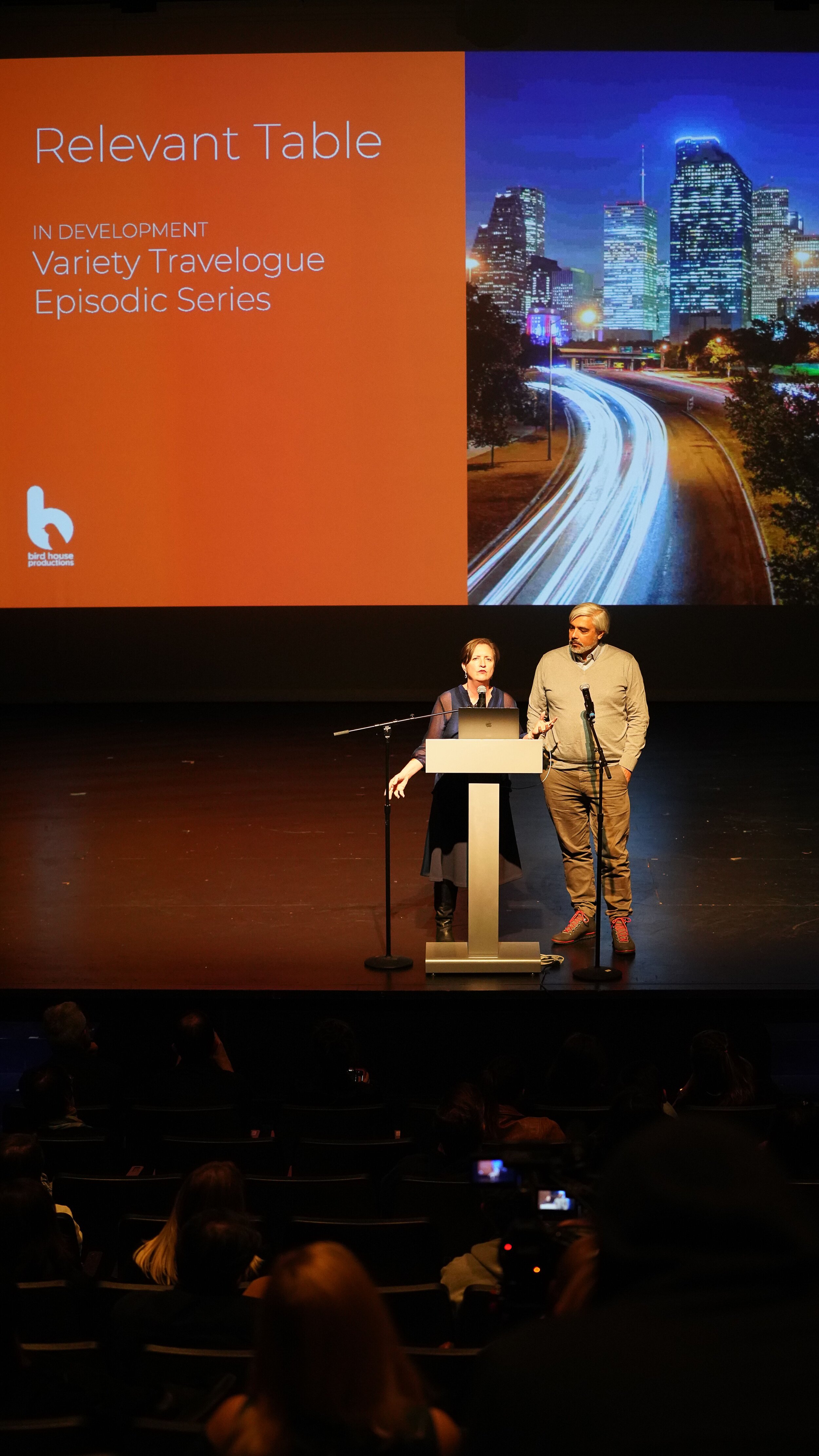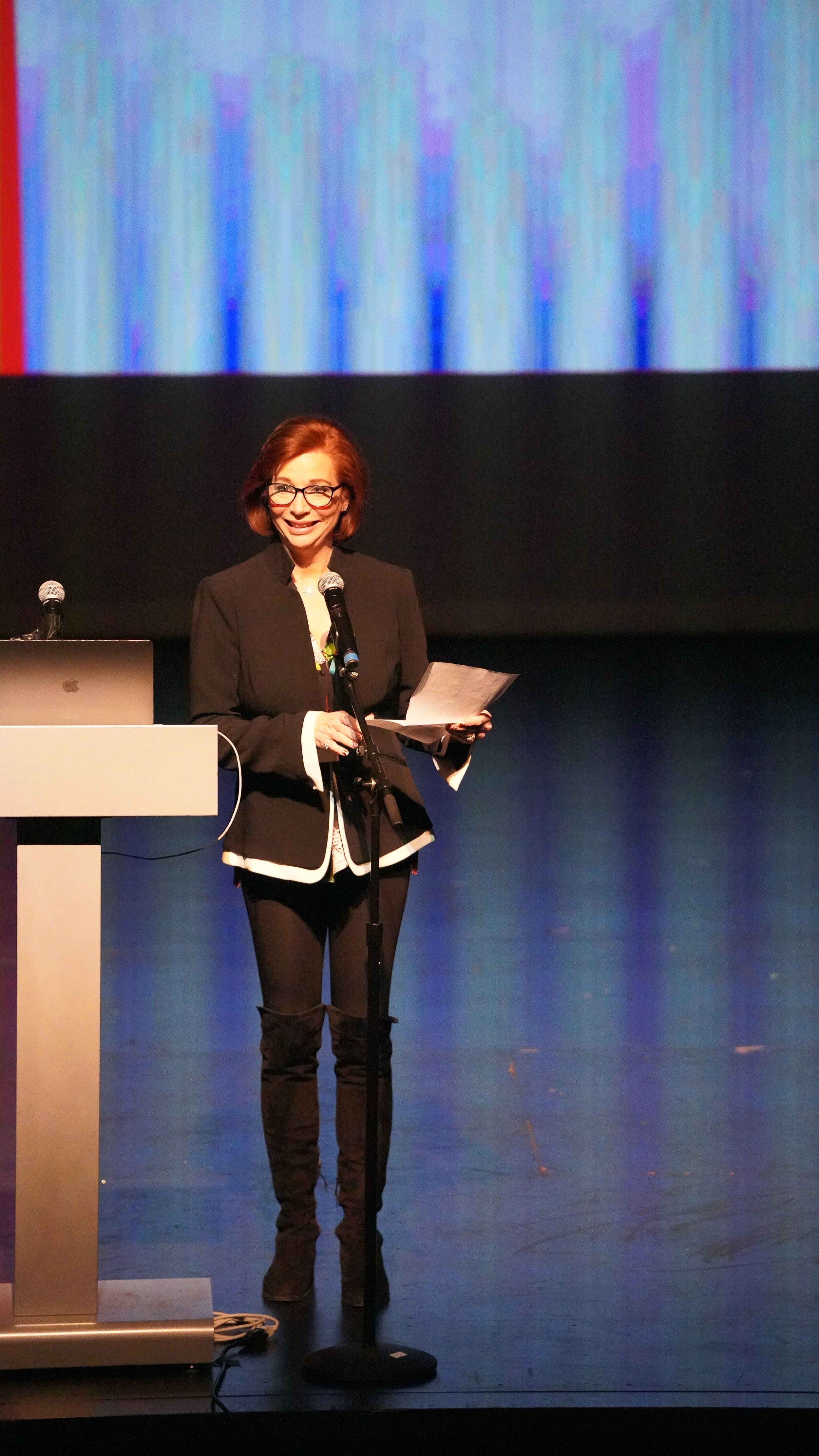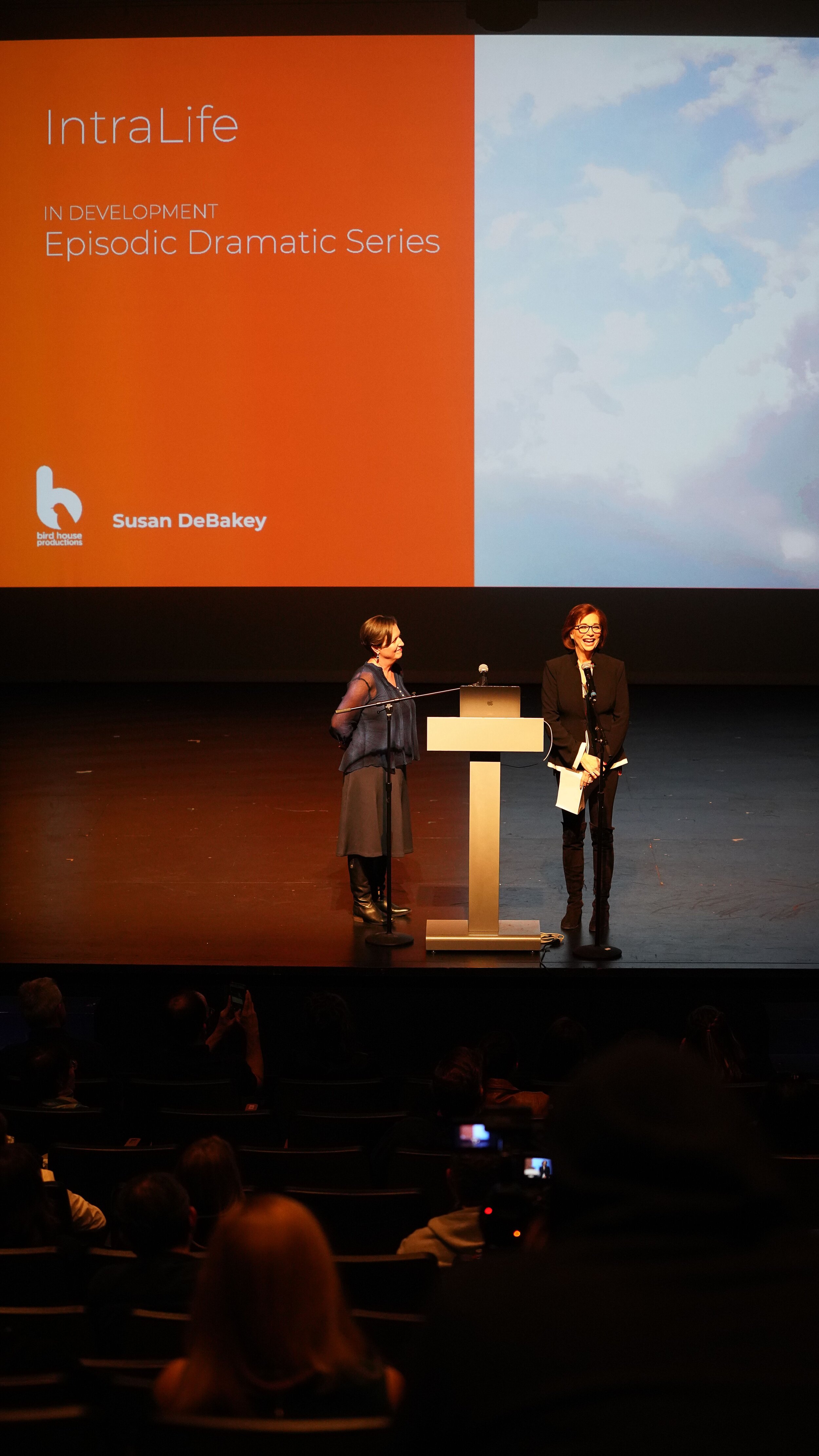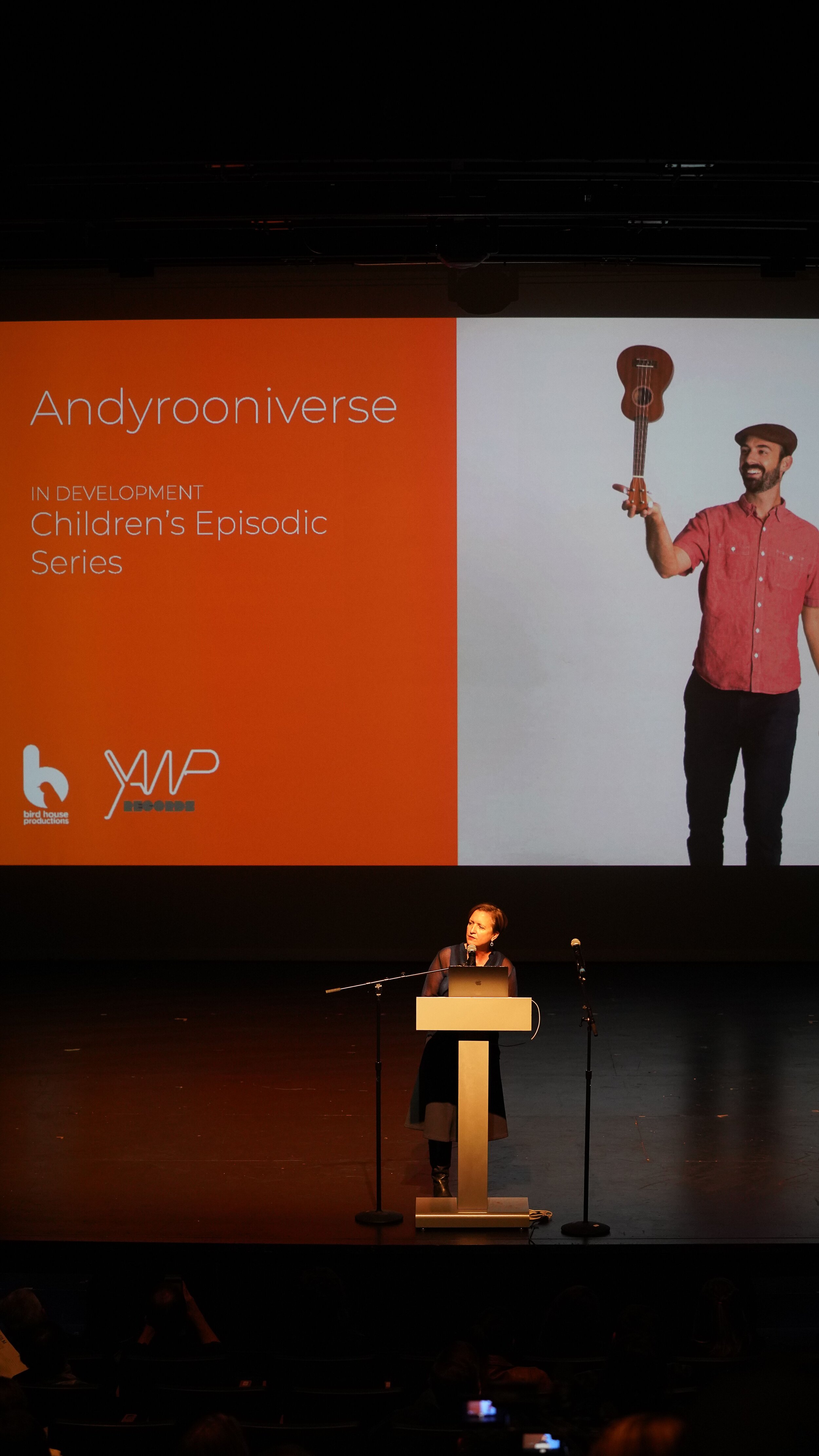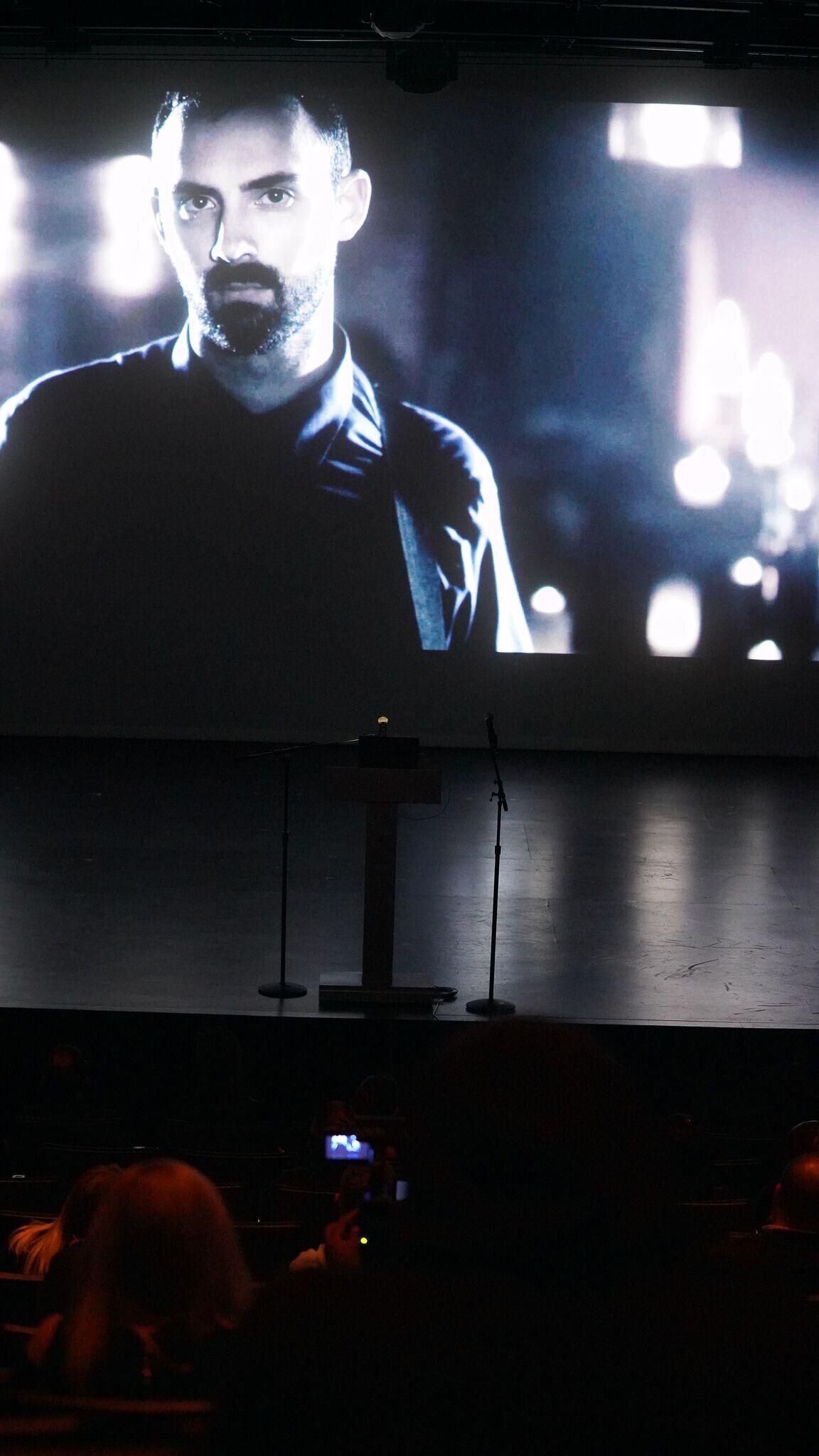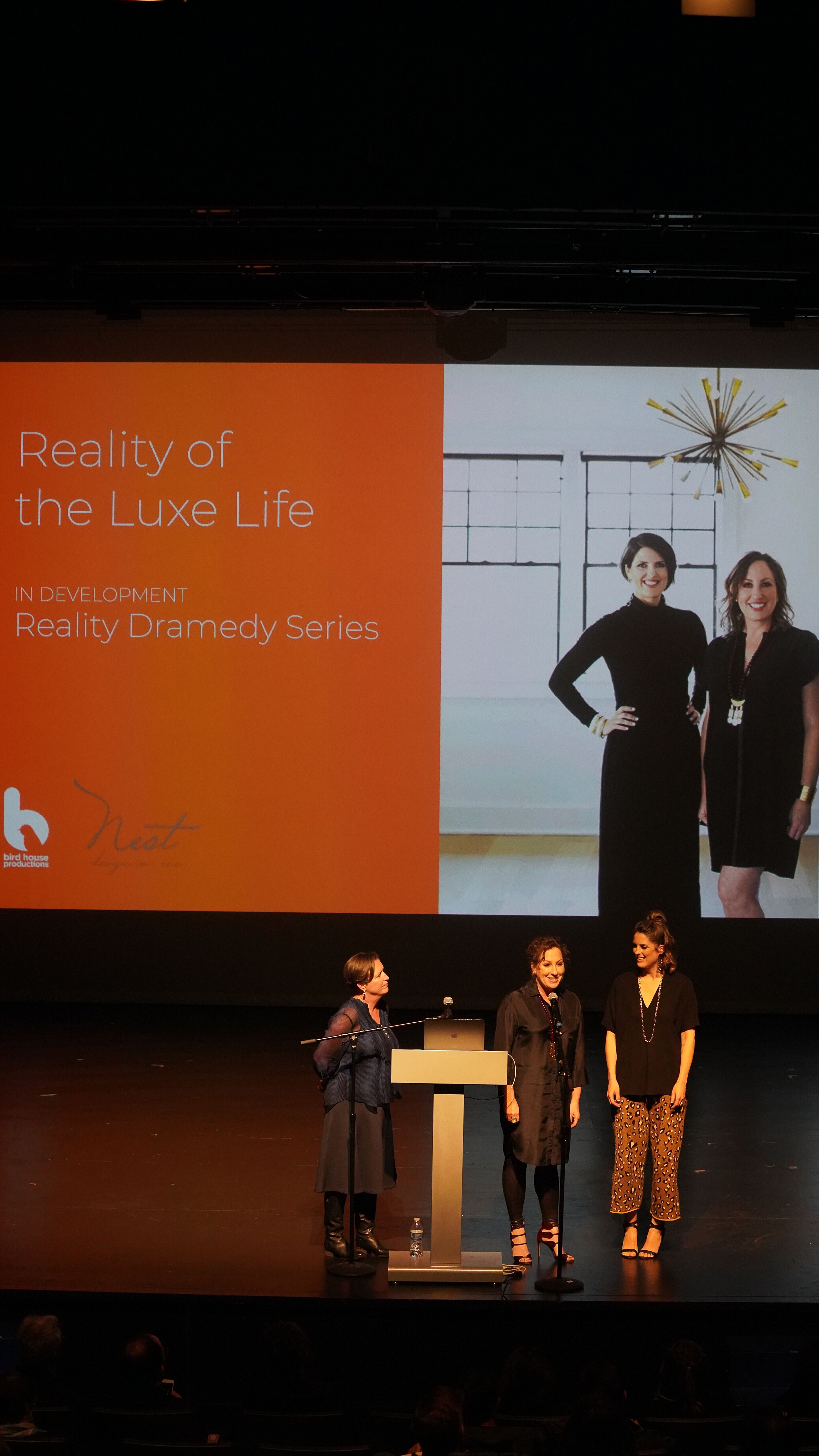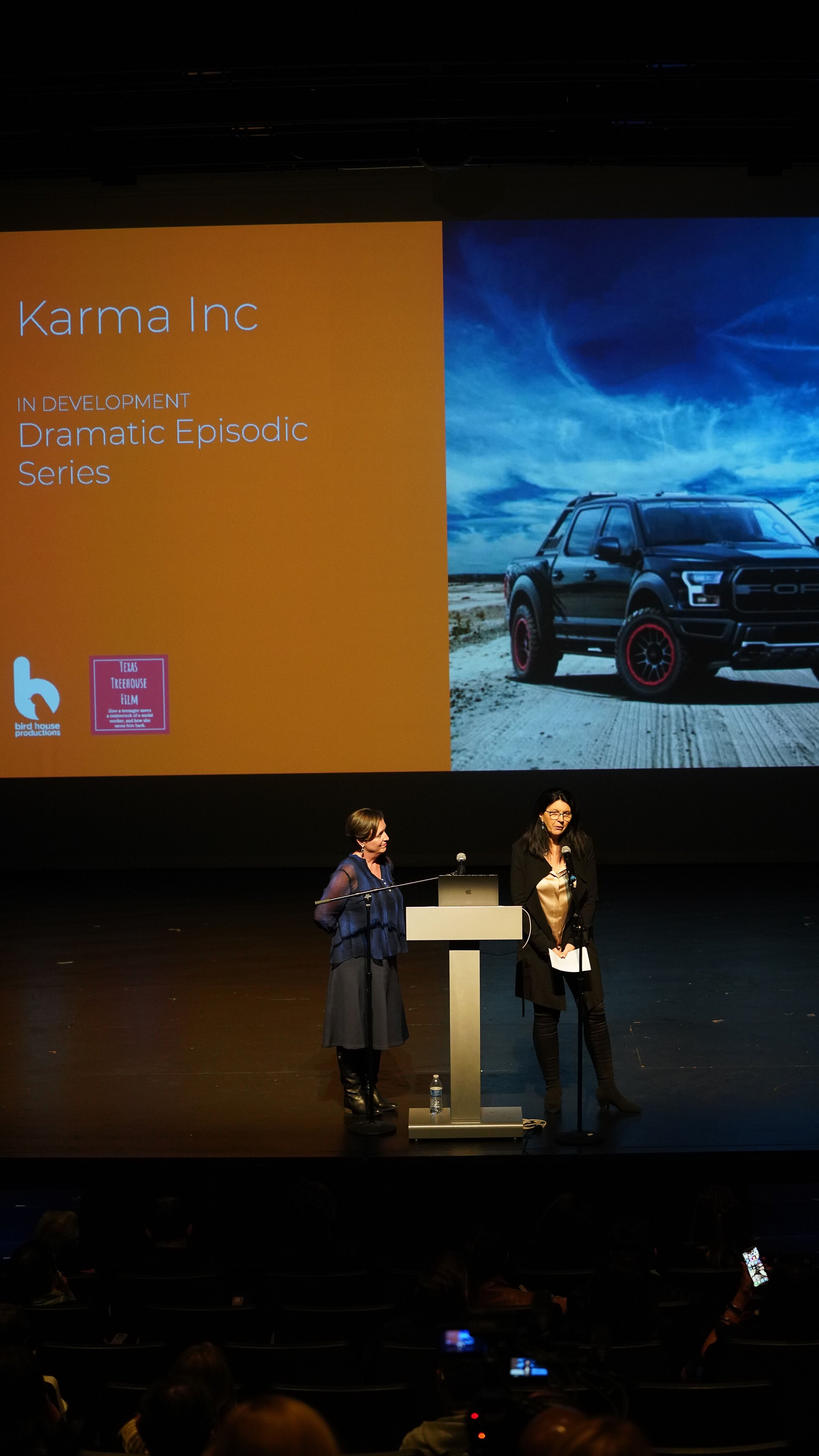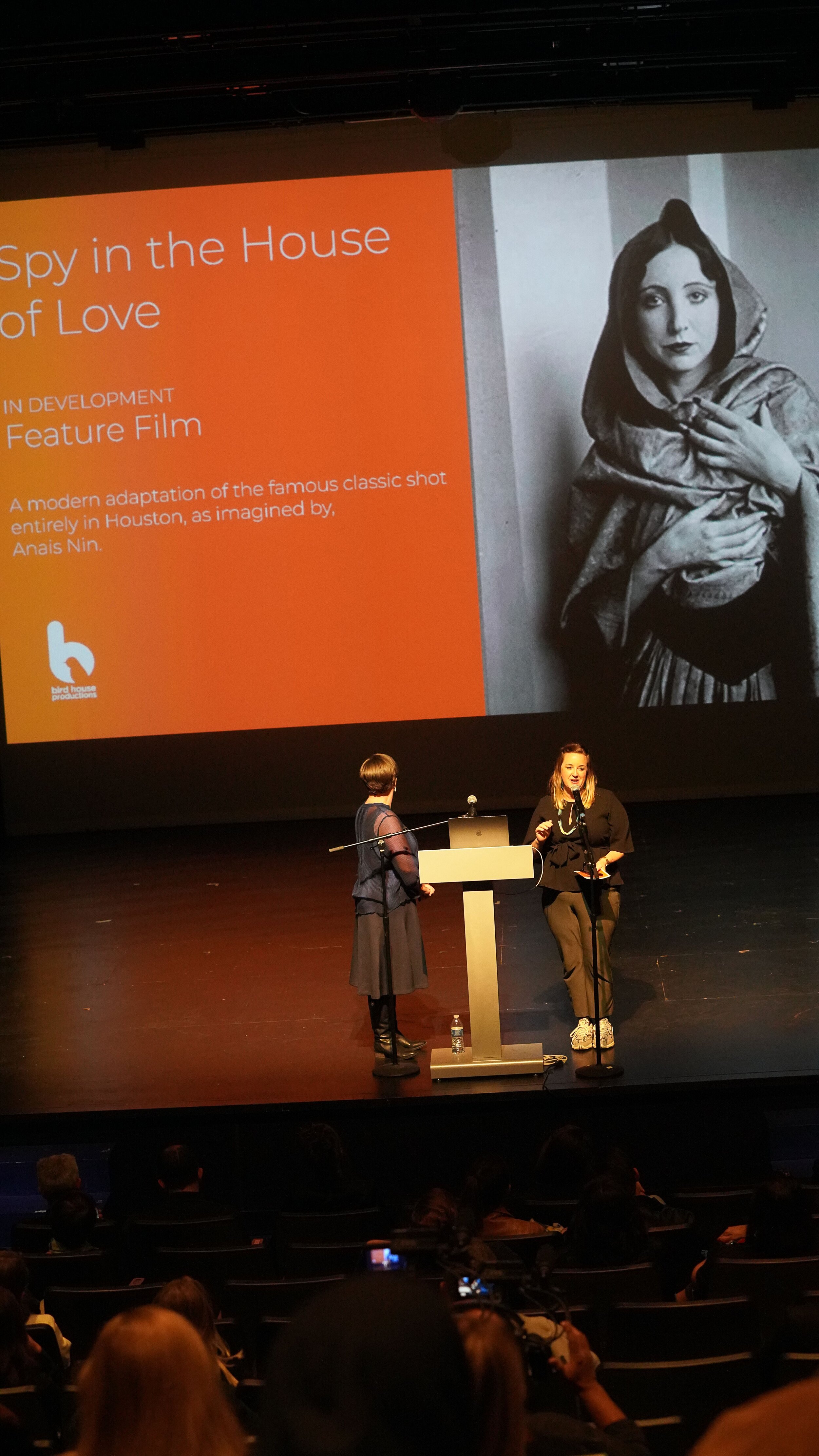Film Fatales for Parity and Inclusion
I am so impressed with what this organization has done for women -- by women -- in the film industry. And it all started at home, with an idea amongst friends having dinner. For a city like Houston, these are important conversations to be having. We affect change faster as a team of like minds. We are all in this together.
Film Fatales is a non profit group, formed in which supports an inclusive community of hundreds of women and non-binary feature film and television directors nationwide.
Each month, Film Fatales organizes panels and networking mixers where filmmakers can discuss their projects, share resources, and advance their careers. The goal is to raise the visibility of marginalized directors and increases the talent pool for industry organizations, programmers and production companies looking to work with more underrepresented voices by recommending directors for jobs, grants, labs, screenings, and other opportunities. By expanding the landscape of storytelling, Film Fatales continues to bring exciting new films to the screen.
Founded by director Leah Meyerhoff, Film Fatales advocates for parity in the film industry and supports a membership community of over a thousand feature film and television directors of all marginalized genders. The group is formed of a large number of formidable and successful directors, and serves to support each other.
Lynn Birdwell, who also serves as the Executive Producer of Bird House Productions, is proud to have been qualified and accepted as a member of Film Fatales.
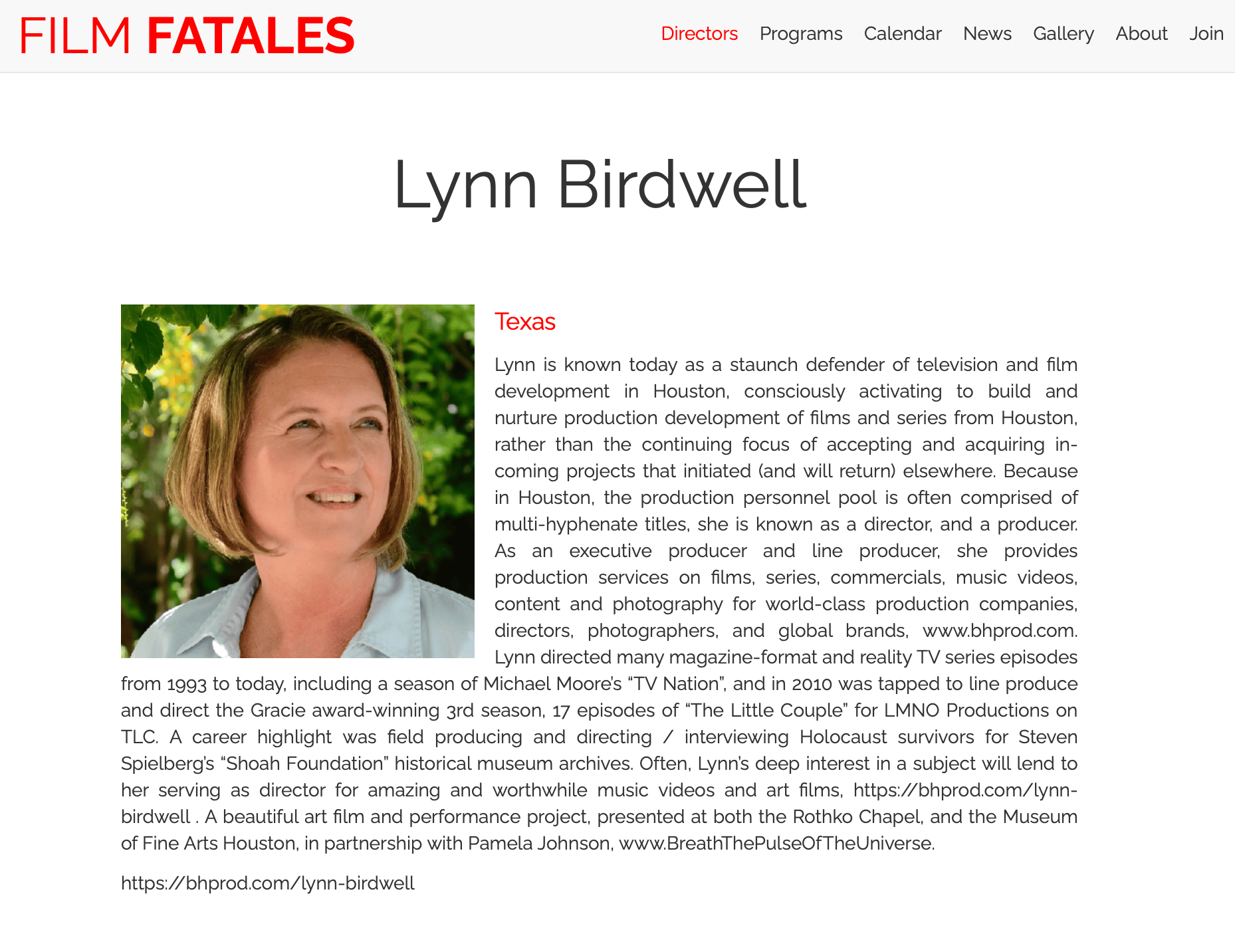
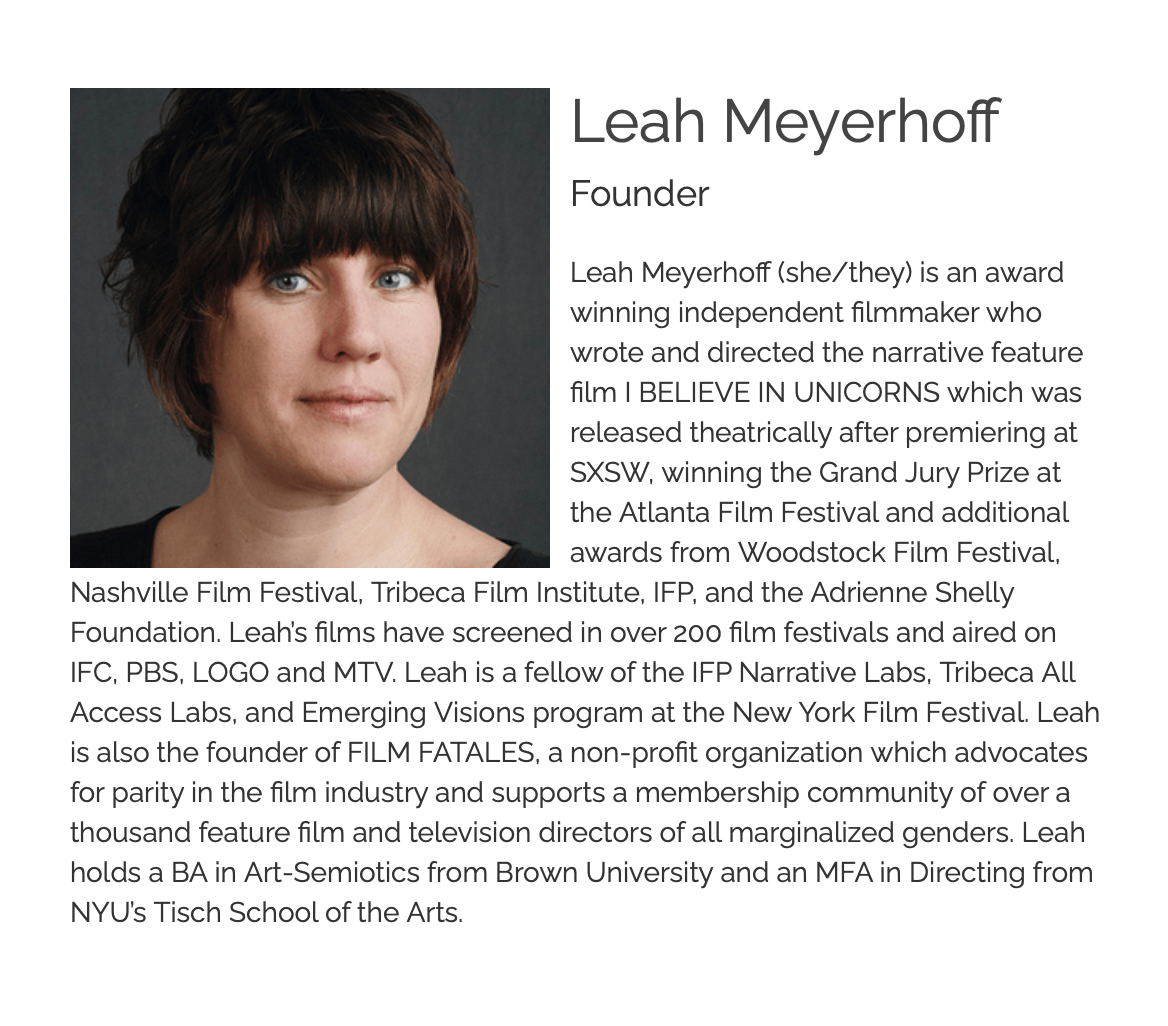
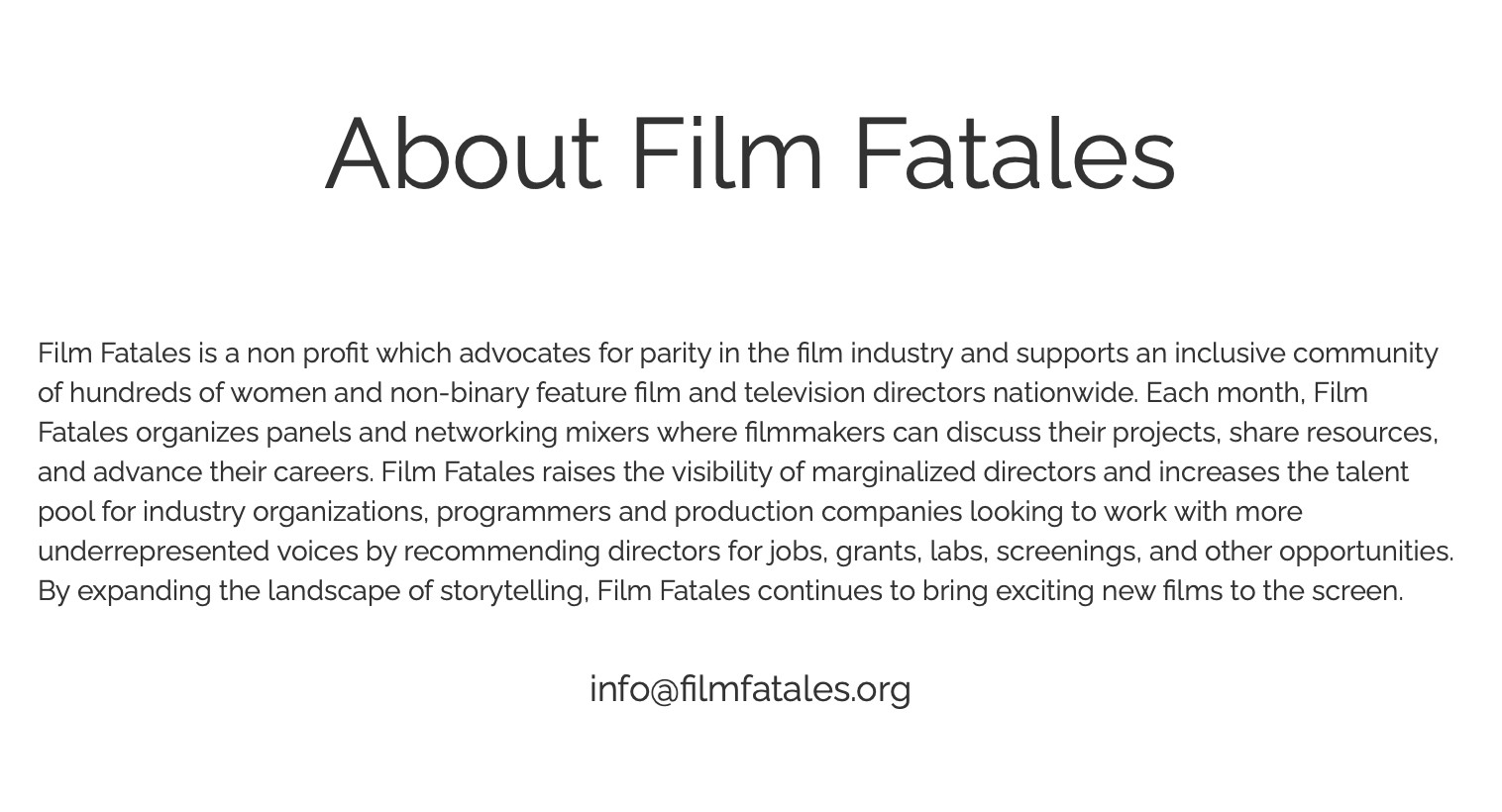
The Univ of Houston's 27th Annual Table Talk for Women’s, Gender & Sexuality Studies
Most of us don't often have opportunities to engage in meaningful conversation about our life's work. When we do have the chance, with an embracing group of like-minds, it can be used as both a purposeful endeavor to share all the things you love about your career path, and also a time to reveal some of how the industry's sausage is made.
I was honored to have been invited to serve as one of the many hosts at the 27th Annual University of Houston Table Talk luncheon. It is a fascinating combination of conversations, led by women of various cultures, professions and experience at each table. I'll be back as a guest. It was just such a great event and a great cause.
This event benefits the Women’s, Gender & Sexuality Studies Program at UH, which combines theoretical and empirical studies to give students the tools to analyze the gender dynamics of the past and present, and to build a fair future. The event was a success with a filled ballroom of interesting and engaging people.
Thank you to Elizabeth Chiao, MD, and Staci LaToison, the Table Talk 2024 Co-Chairs, and to Elizabeth Gregory and Sara Rehman, WGSS & IRWGS, and all the event organizers for inviting me to serve as a Table Talk Host this year.
Our table had The. Best. Time. We talked about AI, the Houston film industry, and what a perfect city we have for the film industry -- since it is as tech-forward as our city. It was basically the Houston Chronicle and me at #Table5.
Thank you also, to everyone at #Table5, let me know if there is ever anything you need that I can help with.
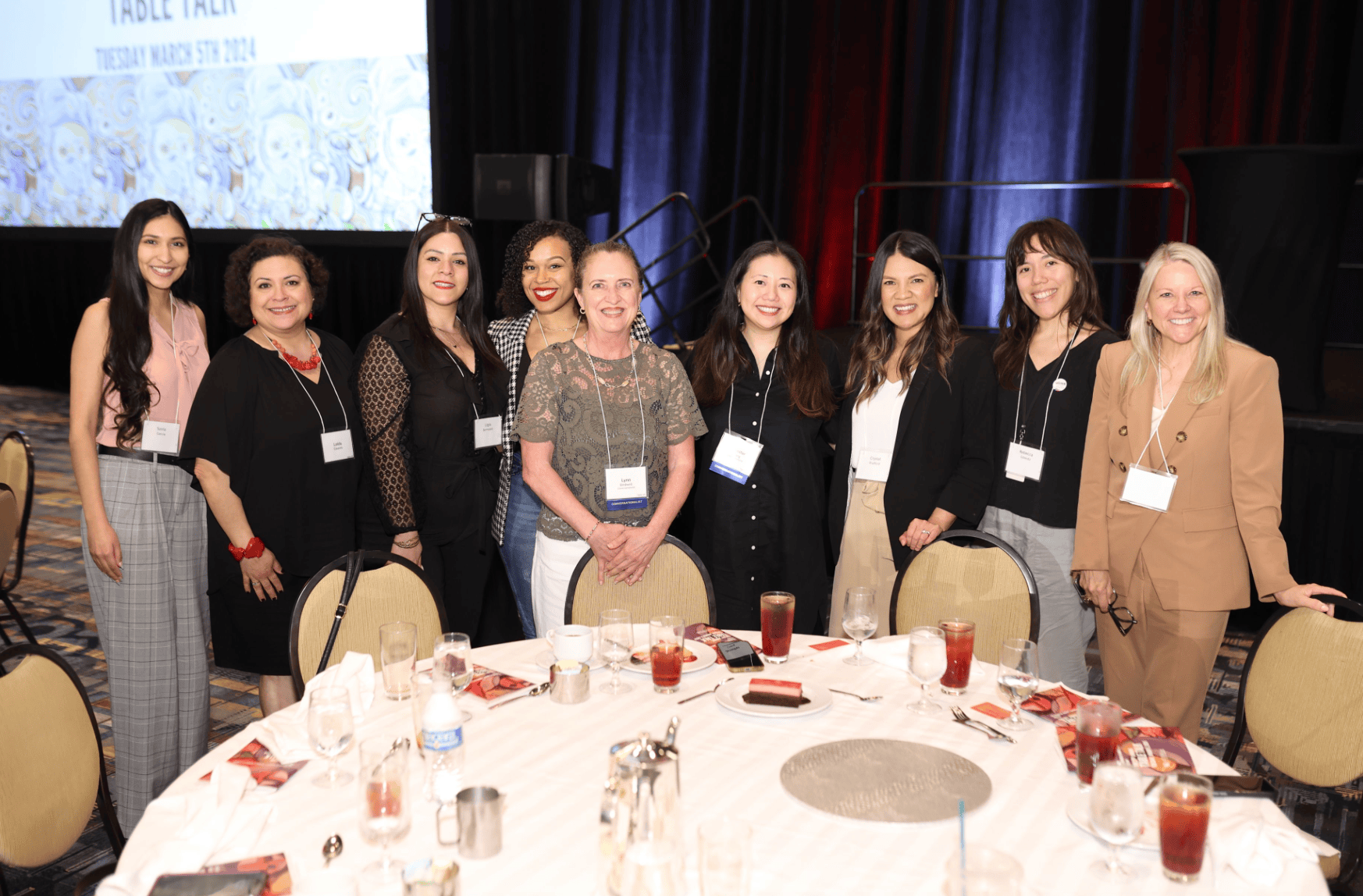
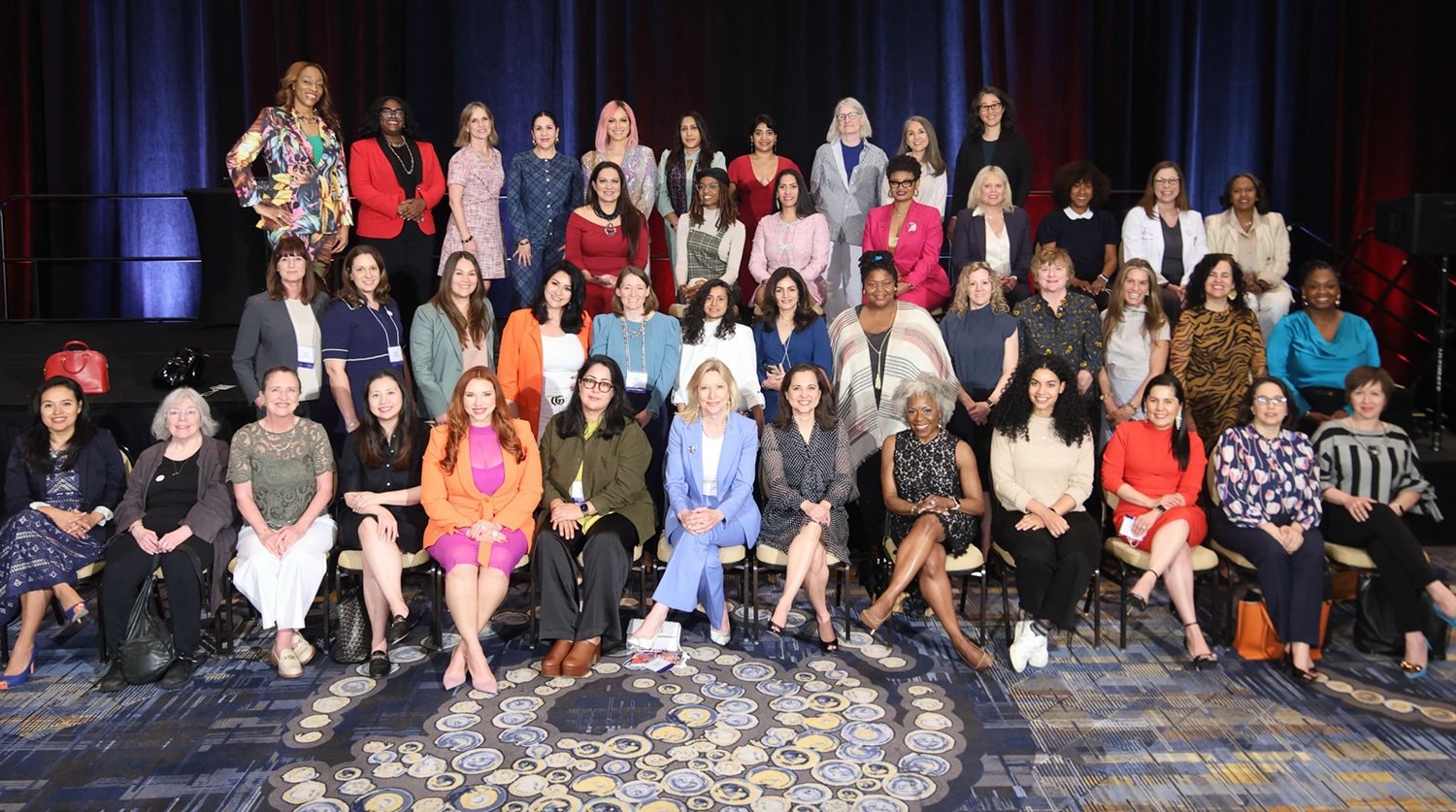
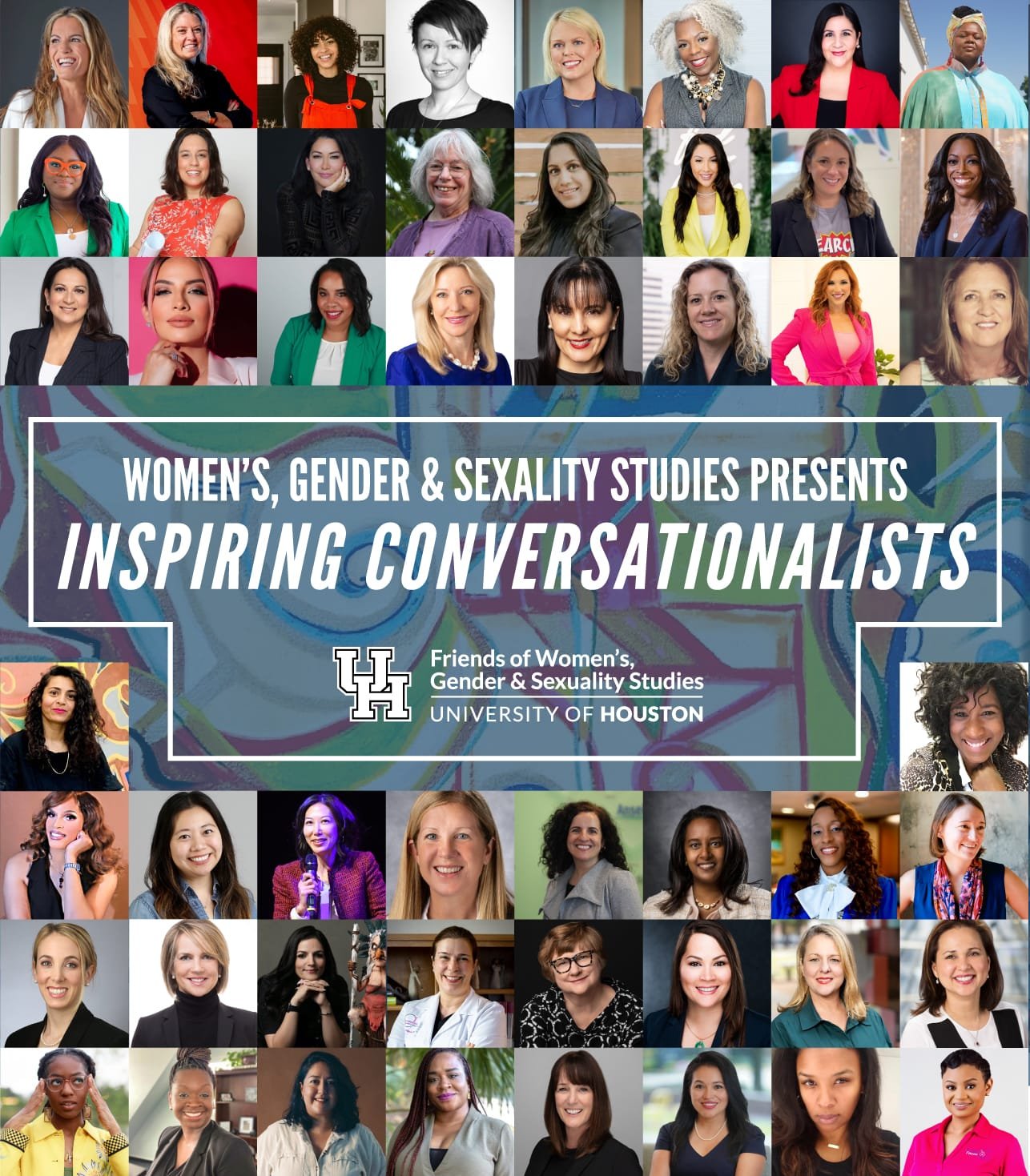
The Film and Video Gig Economy & the Coronavirus
For the gig economy, the effects from a recession versus the coronavirus pandemic are very different. If it were just a recession, we would just lose corporate and industrial work, for that time period. But with COVID-19 infecting people in groups, there is less chance of any productions continuing since film production is really a team sport. So, how do we continue moving forward.
How do you survive during a recession working in the gig economy?
Lynn Birdwell, Bird House Executive Producer
Many film industry professional jobs are done by freelancers. That is particularly true of Houston Texas, where there are few large film production companies and no major studio systems in place.
According to Sean Maxwell, a co-founder of Cinema Resource, and also a long-time Key Grip, Camera Operator, and DP on many major TV shows and films, “Normally in a recession, film and TV aren’t affected and would continue as usual. In fact, even do better sometimes because it is a cheaper entertainment value.”
In fact in Houston, we also don’t traditionally fall into a recession at all when much of the rest of the country is feeling it. Houston is uniquely outside of that bubble.
But as Sean adds, because of the complete shut down of many organizations during this coronavirus pandemic, “This is wholly different. In any bottom line business operation the contractors are the first to go. I don’t know anyway to make it better or even how to survive it.”
He asked me, “What are your thoughts?”
I realized when he asked that, I’m doing, at that moment, what I do every day. For producers who are in development, who are seeking new business, and executive producers who are running companies, for many -- the work continues as usual. There really is no “weekend”, we just keep it moving forward.
I’m working on continued business development now, and maybe that is the way to talk about it. This is the time to update all our directory listings, fix our websites, do our taxes, learn more about our equipment, take online classes, develop things we have been trying to find time to do. Make those connections online and renew our goals and plans.
I signed up for Tom Vaughan’s writing class on a recent weekend. Freelancers and entrepreneurs in the film industry may not be getting paid for this time, but we can use it wisely to get ready for when we do get back to work and go back to having no time for organizational stuff again, as is the usual situation.
Raul Casares is Sean’s partner in Cinema Resource (a grip and electric and camera rental company), and Cliff Davis’ partner with Blade Media (a camera and drone services company), Jerry McCallum’s partner with In Motion (a camera motion equipment company) and a co-founder of Bird House Productions (a production services company). He has worked from high school to now in every sector of the film and video production world. From television stations to feature films, from local to global brand commercials, and also music videos, corporate communications, live events, and industrials.
This is unique to Houston’s film and video market -- we are all hyphenates. We are all used to wearing many hats. Many of the crew in Houston have portions of their business fall into several types of professional production industries and even different departments on or off set. It’s great. We can all keep working often, just doing different kinds of things in different formats.
Raul says, however, that we should remember that Houston’s primary business in the production world is the corporate and industrial videos, such as training and educational films, marketing -- both B2B and B2C, and news. It’s a business town. We have yet to truly build a thriving film and TV industry here, so there is not as much of that type of work, as there is of the regular corporate and industrial gigs.
The reason that’s important to note is because in a recession, on the industrial and corporate level, the companies who are making corporate communications or training videos, may choose to not spend their budgets on those projects. No problem. In Houston, during a slight recession that affects our corporate client jobs, we’ll just keep working on the incoming global brand commercials, documentaries, TV shows, films, non-profit projects, and our own projects.
If it were just a recession, that corporate and industrial work is the only part of our business we would all lose, for that time period. But with COVID-19 infecting people in groups, there is less chance of any productions continuing since film production is really a team sport.
So in Houston, we need to be safe, take care of ourselves and our families. And consider that this is for a time period only, not forever.
Furthermore, what time we have can be reinvented, since we are creatives.
Wash your windows. It’s not hot or cold, so clean the attic. Read every issue of the International Cinematographers Guild Magazine. Take Master Classes online. Redo or make your website. Organize your equipment and finally create the price list all the production managers have been asking you for. Write your screenplay. Do your taxes. Rewrite your screenplay. Test out that camera, light, rig you have been putting off testing. Register for the Film Finance Seminar Houston and we’ll let you know when the dates have been set for what will now be an online seminar.
Prepare and renew and remind yourself how creative you are. And get ready.
The Arts are the Lifeblood for Any City
The Houston Creative Endowment, a non-profit 501(c)3, is dedicated to preserving, protecting, developing, fostering, and supporting the creative industry by focusing on the film and television production industry in Houston, Texas.
The Vision Behind the Houston Creative Endowment
Houston, Texas
Around $800 billion is made in the creative industry in the United States of America annually. As the fourth largest city in the U.S., Houston doesn’t capture nearly enough of that revenue.
To encourage the development of a creative economy in Houston, and to provide a support system to the existing professional crew in the city, and connect our creative industry globally, Bird House Productions Executive Producer Lynn Birdwell has partnered with like-minded film professionals to establish the Houston Creative Endowment (HCE).
“There are a lot of creative people in Houston. We can develop projects here,” says Birdwell, founder of Houston Creative Endowment. “We created HCE to be a fiscal sponsor for films. We’ll model it after the Austin Film Society, which has done a really great job of building a large group of people who are professionals and who are serious.”
The Houston Creative Endowment, a non-profit 501(c)3, is dedicated to preserving, protecting, developing, fostering, and supporting the creative industry by focusing on the film and television production industry in Houston, Texas, to build a stronger creative economy. The organization is encouraged by the United Nations pronouncement of the year 2021 as the International Year of Creative Economy for Sustainable Development. Many other countries and cities are thinking similarly and building a creative sustainable industry.
“Most of us know the feeling of being touched by an individual work of art: a painting, song, play, poem, or novel. When touched, we are moved and transported. This, through one particular form of art,” shares Birdwell. “Film, the combination of so many different types of art forms, provides the transformative experience that art is constantly seeking to provide.”
Birdwell firmly believes film is the only art form that supports all other art forms. Making quality film and television is a team sport. It’s not just one human engaged in a creative process. There can be hundreds of people engaged in the development and execution of the single creative vision of the film or episodic series.
When a film is truly great, it’s only due to a masterful collaborative spirit of all the personnel involved because film requires so many specialties and skill sets. A great film must have all cylinders firing in every department, all the way through post-production.
Our global creative industry economy is valuable and affects the quality of life and financial well being of all manner of peoples. As the most diverse city in the United States, any progressive movement developed in Houston, to better the lives of others and build education and vocational outcomes,has a decidedly global effect.
HCE is committed to the development of Houston’s creative industry economy and supports the United Nations declaration of 2021 as the International Year of Creative Economy for Sustainable Development. HCE desires to develop global creative partnerships, focusing on the UN’s 17 Sustainable Development Goals will provide a foundation for economic growth in Houston..
In line with that initiative, Bird House Productions and the Houston Creative Endowment are hosting and sponsoring Film Finance Seminar Houston. This event is part of a larger initiative to develop a profitable film arts industry in and around Houston and serves as the next major step in building the Houston creative economy through film.
This 2-day seminar will deliver a high-caliber panel of industry experts to teach investors and executive producers how to develop, fund, produce, market, and distribute profitable films and episodic series.
For more information about Film Finance Seminar Houston, please visit https://filmfinancehouston.com.
Houston’s Potential to Be the Next Global Film Epicenter
As a New Yorker working in the arts sector in Houston, Houston Cinema Arts Society Artistic Director Jessica Green sits down with Lynn Birdwell to discuss how Houston’s diversity can help build the next great global film city.
HCAS Artistic Director Jessica Green Discusses Houston’s Diversity Can Support a Film Industry
Houston, Texas
As a New Yorker working in the arts sector in Houston, Houston Cinema Arts Society Artistic Director Jessica Green sits down with Lynn Birdwell to discuss how Houston’s diversity can help build the next great global film city.
"There are obviously a lot of challenges, there's a lot of infrastructure challenges, but there is so much potential to develop film production in Houston...We do have a long way to go, but the further we can get, the more we're going to tap into this potential, and it's really, like, endless what could happen here around developing a real film industry."
Speaking from the first-ever Black Media Story Summit at the DeLux Theatre in Fifth Ward, she also talks about the power of film and its healing process for black filmmakers and audiences.
Lynn Birdwell: Hi, it's Lynn Birdwell with the Bird Feed Podcast, and I'm here today with Jessica Green with the Houston Cinema Arts Society. Jessica, thank you for talking with us.
Jessica Green: Thank you.
Lynn Birdwell: So, this is the last day of the festival. Tonight, there's a film in the theater that we're in, and can you tell me a little bit about the movie?
Jessica Green: Yeah, yeah. One of the closing programs is here, at the historic Delux Theater in the fifth ward, and it's Always in Season by Jacqueline Olive. It is a film about the history of lynching, but also a modern-day lynching, current lynching. And, it was at the Sundance Film Festival and it won an award there. It's an incredible, urgent documentary. And one of the reasons why it's included at the Houston Center Arts Festival is all about the arts and all about artists and all about, you know, multifaceted representations of the art.
So, this film, interestingly, includes theatrical, historical reenactments of lynchings. This is something that people are doing now, kind of, you know, extreme art therapy, if you will. So, we definitely wanted to include it in the festival. It also bridges the first-ever Black Media Story Summit, which is happening here today, at the Delux Theater, also.
It really speaks to the mission of the Houston Center Arts Society, which is as much about engaging audiences around the arts, but also engaging artists and supporting artists and empowering them.
It's not just about audience engagement, it's also about empowering artists and serving them and supporting the pipeline. So, we have more artists, we have more filmmakers.
Lynn Birdwell: Well, we never had a film festival in Houston like this one. So, how did they find you, and what do you do with this festival?
Jessica Green: I'm the artistic director, and like many things in life, it was through relationships. I was invited to be on one of the juries at the Ashland Film Festival who my predecessor, Richard Herskowitz, who's amazing, he's the artistic director and the executive director of the Ashland film festival. So, we met up, and he was still doing Houston at that point. Then, I also met, who was on another jury, Marian Luntz, who is the head of film at the Museum of Fine Arts, and really kind of created that whole program and has ushered it for almost 30 years, and is just a force of nature and really is such an important pillar of arts in Houston.
So, it was an opportunity. I'm really interested in what I would call cosmopolitanism, you know, urban culture, which to me is everything. It's high and low and it's about, you know, respecting the kind of rarefied, you know, fine art, you know, culture as much as street culture. And, I thought a lot of my interests and my literacy and my values could translate to Houston, it also being such an incredible, generative place of so many different kinds of urban culture -- so much diverse culture.
So, I thought, you know, kind of, again, my values, you know, as a programmer, as a curator, I thought would translate well to this arena. And as we all know, Houston is the most diverse city in the country. So, as a New Yorker, that was really attractive, and really frankly, Houston was the guiding light -- was always, you know, what I was most interested in around this project, the fact that it was happening here, the fact that it would engage what is happening here, which is really interesting and fascinating, and I'm just scratching the surface. I just started coming here a few months ago and I, you know, look forward to understanding it more. But I also, again, born and raised in New York, know that big cities are ... mysterious. Parts of them will always be unknown, unknowable. You cannot get to everything. There's no way. I've lived in New York my whole life, and I will never completely understand it. And I think Houston is similar, and I think that's also what defines a true global, great city. Literally, everything is happening in Houston, every kind of person, literally everything is happening here. It's the world in itself.
Lynn Birdwell: And, there's no geographical barriers. So, it's not even like New York City where it's like, there it is. Right? You got your boroughs and then basically Manhattan's an island. Houston, it's just sprawling. It's neighborhood-based. You can drive and drive and drive and drive, and still be in Houston, and be in China or be in Mexico. It's just completely different neighborhoods, and they're massive.
Jessica Green: Which is really inspiring; it's amazing. And, it's an incredible muse to program around.
Lynn Birdwell: So, one of the things you mentioned was the Austin Film Society. We don't have anything like that. I would like for there to be. I'm trying to work on that. We don't have that in Houston, which is a supportive organization that's a fiscal sponsor and all of those things specific to film. When I was talking to Michael Robinson, who's on your staff, I told him, you know, one of the things that I've noticed is that there's a lot of separation in Houston because it's neighborhood based, because it doesn't really have a firm film core here. I didn't feel like most of the professionals in our industry were actually connecting with the Cinema Arts Festival because it felt to them like it was just a festival that was just, you know, an attraction. But, it should be and can be something where the city that it's in, the people that are actually doing film production in that city, go to the festival, support and participate in all of the different programs.
Many of the crew that I use, they have been on every single movie that was ever shot in, you know, New Mexico, Texas, Louisiana, wherever, LA -- TV shows and movies, big, huge movies, James Cameron movies. Those people live in Houston, but none of the work that they do is here. And so, I'd like to think that organizations like the Houston Cinema Arts Society can connect with all of them the way we all need to connect with the university programs and help build a studio system, that doesn't actually exist here. And, when I say there's never been anything like this organization that you work with now in Houston, there hasn't been. And, we really do need it.
Jessica Green: I agree. I mean, we have to start somewhere, so thus this summit today. I mean, this is a step in this direction of really focusing.
So, being able to partner with Black Public Media and the Austin Film Society on this all-day summit, it's a baby step, but it's completely in that spirit. That's why I wanted to make sure my first year as artistic director, that stamp was there, that seed was planted that we, you know, build on. I think the thing is that there are obviously a lot of challenges and there's a lot of infrastructure challenges, but there is so much potential to develop film production in Houston. I mean, that's the thing, we do have a long way to go, but the further we can get, the more we're going to tap into this potential. And it's, it's really endless what could happen here around developing a real film industry.
Lynn Birdwell: But, it's not the responsibility of the Houston Cinema Arts Society to solve this problem.
Jessica Green: Well, in part though, we do need to participate.
Lynn Birdwell: Yes, but we all need to participate, exactly.
Jessica Green: It's all of our responsibility.
Lynn Birdwell: Yes. You know, there is no "one" organization in Houston that all the professional, a-list crew [members] belong to because it doesn't exist here. So, what we do need to do is to find a place where we all come together and then we're, you know, really participating in all of these organizational things, like you're providing, at a professional level. Like, that's really probably the goal. And then, what I was talking to Fleurette [Fernando] about is film in Houston is not considered an art, and it's also not considered an economic conversation either.
I think if we could refocus the lens on film, which supports all other art forms, then the investment in film production and learning how to make money on film as well, which just is education, really all it is, then it can be seen as a big piece of this economic industry.
The NEA had a report, a couple of years ago, that something like $600 billion was made in the creative economy in the United States alone. And, I think Houston is a very big city, and it's a very wealthy city, but I don't think it thinks of film or any kind of media industry to be something that is a worthy investment.
Jessica Green: It hasn't happened, for sure. I'm not surprised about the NEA report. I mean, the fact remains that the two biggest exports of the US are #1 finance, #2 media.
Before this, I was the director at the Maysles Documentary Center, which has a documentary program in Harlem where young people are trained on how to make documentary films about their communities, about their experiences. So, this is something that I'm really passionate about. I think it is completely an opportunity, and it just needs to be opened up so much more for young people, and the barriers to entry really need to be taken away.
One thing, a couple of things, I would just say about the place of a festival, or any festival, and kind of my philosophy that does connect up to what you're talking about, I think, you know, where festival programming is actually critical around, I think there are a couple of things. For instance, this year the opening night film was Waves from Trey Edward Schults, who grew up in Houston. Modeling is key. I was really happy that I was able to do that because one of my goals from day one and one of my pillars of my thinking about this: he's from here, Lizzo's from here, Beyonce's from here. Like, how are you really strategic about bringing Houston's favorite sons and daughters back, right, to model to everybody. I think that's part of it. I think that does actually lead to retention, I think it's really important to bring people back here. Even if they don't live here, bring them back here, vet them, celebrate them, have them share.
The other thing is really tapping into what does exist in terms of local story, local narrative, local filmmaking. Last night, which was the fourth night of the festival, we had three events that were all locally driven in terms of the themes, the makers in three different locations. These were not movie stars. There was no big Robert Redford, whoever, it was all local stories about neighborhoods, about local figures with local makers. Everything was popular because there is so much interest in Houston from Houston. And that kind of dovetails with the last thing I want to say about this is documentation is really key.
I think you have to amplify these stories and telegraph them to the world. I think that helps in bringing people back that are from here and being really intentional about making sure the story is about this place getting out to the world. I think that also will help embed things and can also really support the development of an industry and a production industry.
Lynn Birdwell: It's gonna take time. Thank you very much. Thanks for being with us.
Jessica Green: Thank you. Thank you very much.
UPDATE - Film Finance Seminar Houston Postponed for Safety
Film Finance Seminar Houston moved to Fall 2020, date to be announced. Houston Creative Endowment, Bird House Productions and FilmPro Finance are deeply encouraged by the strong public response to upcoming The Film Finance Seminar Houston 2020, and are looking forward to hosting the first ever film finance event of this caliber in Houston.
Film Finance Seminar Houston Moved to Fall 2020. Date To Be Announced.
March 13, 2020
Houston Creative Endowment, Bird House Productions and FilmPro Finance are deeply encouraged by the strong public response to the upcoming Film Finance Seminar Houston 2020. We are looking forward to hosting the first ever film finance event of this caliber in Houston.
After monitoring cancellations and postponements of other global events, and in order to respond to the requirements of the City of Houston and following the Houston Health Department’s recent announcement for the health and safety of all our guests, we have determined to postpone our greatly anticipated event, currently scheduled for April 24-25, 2020. The projected rescheduling date will occur in the Fall of 2020.
Those of you that have already registered may either seek a credit or a full refund. Please feel free to ask us to keep your ticket live and apply the revised dates to your purchase. If you can not make the new dates, consider donating your ticket to someone who will benefit from the knowledge gained in this seminar.
We are dedicated to bringing you a unique and educational event with information that is critical to the growth of the Houston and Texas film industry.
So, in the interim, we are discussing presenting a new webinar series online, which we will provide information on in the coming weeks. Each month, a new guest will be interviewed on subjects regarding the financing of film and television, and the ongoing changes and impacts to our global economy. This will allow all of us to meet some of our upcoming speakers, as well as others from around the world with insights into investment in the entertainment industry.
Our team remains optimistic, passionate, and committed to what this event ultimately means for Houston and the entire creative community, despite the trying short-term situation. We look forward to seeing you all in person later this year, when it becomes safer to meet in large groups!
Thank you for your support and vision for Houston’s future creative economy.
For further information, please contact: lynn@bhprod.com.
EVENT WEBSITE:
https://filmfinancehouston.com
Film Finance Seminar Houston
For the first time ever, the Bayou City will host Film Finance Seminar Houston in the Fall of 2020. This event is an initial step towards establishing Houston as a profitable location to develop films and television productions.
An Arts Education and Economic Development Opportunity For Houston
Houston, Texas
For the first time ever, the Bayou City will host Film Finance Seminar Houston in the Fall of 2020. This event is an initial step towards establishing Houston as a profitable location to develop films and television productions.
Bird House Productions has partnered with Houston Creative Endowment to deliver a high-caliber panel of industry experts to teach investors and executive producers how to develop, fund, produce, market, and distribute profitable films and episodic series.
Film Finance Seminar Houston is part of a larger initiative to develop a profitable film arts industry in and around Houston and serves as the next major step in building the Houston creative economy through film.
“Around $800 billion is made in the creative industry in the United State of America annually. As the fourth largest city in the U.S., Houston doesn’t capture nearly enough of that revenue,” affirms Lynn Birdwell, Bird House Productions Executive Producer.
Film Finance Seminar Houston will be moderated by Vinca Jarrett, a successful and highly-acclaimed entertainment attorney, and experienced executive producer, who established a nationwide legal practice, focused primarily on entertainment and media issues, including work in Canada and London.
On stage and in person, attendees will meet and spend two days alongside some of the players that develop profitable projects every day and understand the nuances, insider secrets, and strategies to become a smart investor and executive producer in the film and television business.
An important aspect of this seminar will be the access all attendees have with each other and with the VIP speakers and presenters, which include:
Vinca Jarrett
Entertainment Lawyer, The Law Office of Vinca Jarrett
Vinca L. Jarrett, Esq. is an entertainment lawyer and president of FilmPro Finance, a financial consulting service for investors and producers for strategizing funding and distribution in the film and television industry.
Charlene Paling
VP & Deputy Head of Entertainment Finance Group, BHI USA
Charlene Paling is one of the top finance bankers in North America with expertise in entertainment lending and is a valuable member of the Los Angeles Entertainment Finance Group.
Steven Adams
Manager/Producer, Alta Global Media
Award-winning Manager/Producer Steve Adams is a Founding Partner at Alta Global Media where he represents international media companies and talent.
Robert Katz
Executive Producer/Founder, Shine Box Media Group
Robert Katz, a producer and production executive, has thirty years of experience in worldwide film production, development, finance, and distribution, on more than 26 motion pictures alongside on a range of projects with 13 Academy Award nominations and three wins and totaling nearly $1 Billion in worldwide revenues.
Experts in distribution/sales (foreign and domestic), federal film tax, and marketing, PR, and publicity will be announced in the coming weeks.
In the classroom-setting program, each speaker will discuss their invaluable perspective and knowledge on each phase of a project starting with development, pre-production and production, post-production, marketing and festivals, how films recoup, and sales and distribution. They will also target topics such as:
Profitability
Minimizing Risk
Investor Project Involvement
Shooting Union in Texas
Vetting Projects
Marketing
Benefits Beyond Return on Investment
Film Festivals
Ancillaries
Other Revenue Streams
Filming in Houston
State Incentives
City Incentives
The Players in Houston and in Texas
Building a Film Fund
Greenlighting Projects in a Fund
On day two of Film Finance Seminar Houston, professionals from Houston will gather roundtable-style to discuss the elements that make Houston unique in the production industry, our available state and city incentives for local projects and building up jobs, crew, and physical infrastructure. We’ll end the day with a discussion by our VIP panel on putting together a film fund.
To learn more about Film Finance Seminar Houston, expert speakers, schedule, and sponsorship opportunities, go to www.filmfinancehouston.com.
Event spokesperson Lynn Birdwell is available to do a sit-down interview or onset segment to discuss the event, how she and her peers are working to bring the film industry back to Houston, and her goal of building a thriving creative economy that would benefit Houston local businesses, economy, and creative arts. To schedule, please contact her at lynn@bhprod.com or call 832-439-2595.
Contact
Lynn Birdwell
lynn@bhprod.com
832-439-2595
LynnBirdwell.com
ABOUT BIRD HOUSE PRODUCTIONS
Bird House Productions is a full-service production company, with the ability to produce cutting edge work at any level of cost or complexity. Acting as producer, co-producer or as the Texas production services company, Bird House Productions offers the very best, most cost-effective high-level production services available in Texas with expert mastery of filming in and around the Houston area.
ABOUT HOUSTON CREATIVE ENDOWMENT
The Houston Creative Endowment, a non-profit 501(c)3, is dedicated to preserving, protecting, developing, fostering, and supporting the creative industry by focusing on the film and television production industry in Houston, Texas.
ABOUT LYNN BIRDWELL
Lynn Birdwell is known as the primary developing force for television and film projects in Houston, creating relationships with like minds in the mayor’s office, HoustonFirst, the Greater Houston Partnership and all the major arts organizations to create the emerging film production industry here, in the 4th largest city in the U.S. With the creative economy industry development incubator, Bird Nest, and the non-profit 501(c)3 organization, the Houston Creative Endowment, her team creates and inspires new projects founded for, by and about Houston.
UH Setting Strategic Plan in Action to Build a Premier Film Degree Program
Temple Northrop, Director of the Jack J. Valenti School of Communication, University of Houston, sits down with Bird House Productions Lynn Birdwell to discuss his strategic plan on how UH is building upon their current program to establish the county's leading film production program at the university level. He also calls for working industry professionals to help him reach his goal of training the next generation of A-list talent.
Looking to Expand Pre/Post-Production Curriculum
Houston, Texas | January 10, 2020
Lynn Birdwell: We are talking to Temple Northup. Thank you so much for joining us here for the Bird Feed Podcast. Just for everyone, Temple Northup is the the Director of the Jack J. Valenti School of Communication at the University of Houston. Temple, tell us how Jack's name came to be the name of this program.
Temple Northup: Jack Valenti was a graduate of the University of Houston, and in the 40s and 50s, he worked in advertising. In the 60s, he worked with Lyndon Johnson. He was in the White House, and then he was appointed around 1966 as the president of the NPA, he created the rating systems that we're using today, and was the head of that for the next 40 years. When he died, the university thought this is a great person who was so influential in the field for decades that we should be named for him.
Lynn Birdwell: So then his daughter, tell me a little bit about her.
Temple Northup: So, his children have certainly carried on his legacy. His daughter, Courtney Valenti, is the President of Development and Production for Warner Brothers Pictures. She certainly has a giant slate. I think they made $6 billion last year, so they're doing well under her [leadership].
Lynn Birdwell: When did you get [to Houston]? I thought you've been here for three years.
Temple Northup: I arrieved in 2011. This was my first university job, just a professor when I got here. A little over three years ago, I was appointed as the director of the school. Over the last three years, that's been my role. I still teach some, but primarily leading the school and to where we want to go.
Lynn Birdwell: Okay. So, the University of Houston has had a film program for a long, long, long time. Tell me where you came from and what you hope to bring to it.
Temple Northup: So, prior to going to graduate school and then ending up here, I worked in Los Angeles. I was out there for many years working in television production, primetime television. I was a writer for a number of different sitcoms. My wife works in film development for Sony. That's my background.
Temple Northup: When I got here, I wanted to carry that experience in, and I wanted to try to really push this program into new frontiers. The City of Houston doesn't have a major film program. We've existed for a long time, but it's relatively small. My vision is that we are, you know, the creative center, training the next generation of storytellers.
Lynn Birdwell: There are a lot of programs in Houston at different schools, and also on campus at U of H, that are all film programs. But, you told me that you wanted this program to be the best in the nation, the best in the world. So how do we achieve that?
Temple Northup: That's a huge question. So, I think there are a lot of different aspects that help us achieve to be the best in the nation. And so obviously, to be the best, it means we need to be training our students with the best equipment. But even more, we need our students to be working with people who are working at the highest levels. There are people like me teaching the students, which is great, but I've, you know, once you go back to teaching, you're out of the industry losing touch with what's going on. And so, I think connecting our students with working professionals like you, like some of the other high level people in Houston, is a huge component of that vision because then they can get training in the real world on actual sets with actual equipment. And when they do that, the second they're graduating from here, they're ready to work on a set professionally, day one. There's no training when they go out. There are no mistakes when they leave the program because they've all been done. They've learned it. And so that's a big part of what I want to do that I don't see really a lot of other people doing is really creating these strong partnerships between our program and the working professionals in Houston and then all over the country, really.
Lynn Birdwell: So, I find that a lot of them leave Houston the minute they get their degree and they go find themselves in New York or LA or Atlanta. But you know, integration here in Houston can happen. One of the issues we have in Houston right now is we don't have any really big production companies who have constant studio systems going with, you know, internships available in every department and you know, shoots going every single day, that sort of thing. So, the students can still fit in to the ongoing shoots that are going on in Houston, whether it's TV shows or films or commercials or whatever, but they need to have that connective access. Right. So you've talked about starting a film club here that would help them have access to some of that. So tell me a little bit about the film club.
Temple Northup: Yeah. So that's something we started about a year ago and we're continuing to build. And so the film club has a few purposes. One, it's trying to bring all of the students who are in our school together because they'll often be disconnected. You know, one might be taking class in the morning and one the afternoon, they miss each other. So we want to create this central hub for all our students to get together. And we've seen just from those connections, amazing things happening. So they've gone off through those connections and they've shot some little short features on their own time, which is great because they're networking. Part of their strongest network is going to be with each other. So, when they go out and once they're graduated and they're working in professional shoots, they're going to have a network that they can call.
Temple Northup: Part of that student clubs vision is just that, networking, but then also connect those students with the working professionals. So, we bring in people to give talks to them on different subjects. That's part of our vision moving forward is creating half day or full day workshops. We can bring in somebody whose expertise is lighting. So, we can just have a day on lighting, a day on financing, a day on anything you can imagine, and bringing those high level people who are out there doing it right now so our students can get that hands on information from people that they wouldn't otherwise have access to. And so, that's really what we're trying to do with the film. Have them working together on their own projects, but then getting that training from people out in the community or even bringing them infrom other places around the country.
Lynn Birdwell: So I feel like in a lot of the schools, there are programs that allow them to dream and like go make a movie and like create their own vision, but there's a whole career paths they can decide on. I'm going to go into the grip electric department and I'm going to work until I can become a gaffer, and I'll be able to do Superbowl commercials and TV shows and movies and make that money and be in the union, or versus being a writer, being a director, being a producer. I think it will be great to see how this, um, allows students to see themselves as crew members in different departments.
Temple Northup: Yeah. Yeah. And that's one of the things that I have identified over the years is if you ask a typical student what do they want to be -- I want to be Steven Spielberg. Everybody wants to be the director, big time famous. And that's great. That's great to have that dream. But there are not a lot of Steven Spielberg's, but there are a lot of these other crew positions, and by and large, you don't know what positions even exist. You don't know all the departments. You don't realize that all of those people are not only talented, but are creative and share a really important role in any film. If you're looking at the cinematographers who are setting the look and feel, they're all working collaboratively, down to wardrobe and makeup. They all have such an important part. Students don't often think about, Oh, there are whole career paths that aren't the director that are still really important, often really creative. And so bringing in people who have done those careers so the students can hear from them, I think is another really great way to open their minds to all the different paths that actually exists.
Lynn Birdwell: Because they won't be able to until they know that and they understand how all the different departments work. They can't actually fit into a crew of, you know, 100 or 500, that is for a really big project because they have only been exposed to a two person, five person, or 10 person shoot. Right. Often the people that are at a very high level in the film industry are very well educated. That's another thing that students probably would really benefit from knowing. So, okay. So, you have grants that you've been developing that will allow you to start doing more with this program. Let's talk about that. I know that those are still in the works.
Temple Northup: Yeah. A lot of these dreams and the vision, of course, requires funding of some sort. We're in those early stages of figuring out how can we find it and if we're able to really sustain this. So, a lot of what we've started so far, we've been able to cobble together some funds here and there to bring in a speaker, or to fund some of our smaller student projects. But we want to increase the success of this program. And so, that's what we're looking to do. And hopefully in the next few months, people will start hearing about it, to create those funds so that we can bring in really talented people, for instance, to lead these workshops so we can afford to either fly somebody in or just even bring somebody in locally, and make it so that they're being compensated in some sort of way for their time. And then being able to teach the students, so we need funding for that. We need funding for trying to take our student projects to the next level.
Lynn Birdwell: Because if you do that, you can put them on your website and it's a recruiting tool, right, so they can all be proud of it. They can get an IMDB credit if it's a real thing.
Temple Northup: Yeah. Real films require locations, require all those sort of things. And so right now, our student projects that we do tend to be filmed on campus. Campus is a great resource because it's sort of like a mini lot. We have restaurants, we have convenient stores, so there are locations. But at the end of the day, it's not, you know, it's not a professional shoot. And so that's what we want to do is create the most professional training ground possible so that our students are completely prepared and ready to go. That's where the major grants and fundraising really play an important role.
Temple Northup: So, another really great thing, which we haven't talked about, that it is a benefit for a professional crew, a-list crew, people who do this for a living at a very high level coming in to work with the students, is they get to shop the students that really have promise and really get to start, you know, encouraging them to come out and work with us when they're not in class and weekends. Then they automatically have a place in the professional crew roster when they graduate or before with a great mentor.
Temple Northup: Yeah, absolutely. Absolutely. I mean, you know as well as anybody that it's all about networking in this industry. And so the more people we bring in and they begin meeting our students, they realize, Oh wow, look at this, this program that's being built here. I need to keep up with them. And the good students, they're good at networking with the people who we bring in, who come to campus. They'll actually send that followup email or message and say, Hey, it was great meeting with you. And that's led to jobs for our students. And you know, you've hired our students, the good ones. Once you find one, you want to keep them. If they're doing their job, those students you're bringing are creating a network, not only with you but with their peers. And so maybe you want to hire one of our students full time and they're gonna say, well, let me introduce you to this other person. Cause now you need another PA, and now we've got this whole network building, and before long we have an entire creative community.
Lynn Birdwell: So in the 80s, we had like this huge film industry, and we can bring that back again with these kinds of programs andsystems of talent and crew and production teams. We have all kinds of stuff going on. There are other departments that specialize in postproduction or special effects or just the editing side. Tell me about that. I know that you have some of that here.
Temple Northup: Yeah. We've got a lot of the post-production. Wwe don't have animation, or a strong animation program. The College of Technology has a digital media program, and so they're much more skilled at things related to certain aspects of post-production. We're primarily editing, but now we've added a color correction course in just in color correction and color grading. We're beginning to build the post production. I think if you look around the country at most film programs, what is missing the most is post-production. It's sort of like everyone just decides that they'll offer an editing class and that's the beginning and the end of post-production.
Lynn Birdwell: Talking about that, it's like there's all these parts of production that don't get considered because everybody just wants a camera and to go.
Temple Northup: Right. Yes. If you look at curriculum, 90% of the curriculum is production, but we all know that 90% of a film is not production. The production is usually the shortest part of any of production, but that's where everybody's trained. And so we are trying to develop a film program which will really cover a lot of that preproduction, especially in everything from contracts to clearance and things like that. We're working with Fleurette Fernando in the School of Art to look at opportunities where we can really create something that looks at the management side of things as well.
Lynn Birdwell: So, are you developing anything new or is this just a build out of the existing program that you have?
Temple Northup: So far, it's just building out what we have. It's a slow and steady march. Hopefully the next step is going to create a bachelor of fine arts. That's my hope. Mydream is it will just allow us a little bit more training of our students. Right now, we're just limited in terms of number of hours they can take. And if we change the degree a little bit, we'll be able to give them more. Then hopefully if that goes as planned in the next few years, then we can also look at adding an MFA in filmmaking. We've been speaking with a lot of people over at the School of Art and just seeing how can we all pull what we're already doing together to build something.
Lynn Birdwell: I think that's what Fleurette was talking about in her interview. Okay. So there's a writing degree that will be new. Yes? Screenwriting?
Temple Northup: It's not new. We are adding courses, so we continue just to add classes. Previously, we had an introduction to writing class, and that was really it. So we've added what we call an advanced screenwriting class. Now we're trying to break that even further apart to have a much more defined path for people who are interested in writing. So, that's also coming down the way.
Lynn Birdwell: Well, good. Thank you very much. I'm so glad you were here. I know that there's a million other things that we can talk about.
Temple Northup: We can talk all day.
Lynn Birdwell: We'll get back together again and do this soon. Thank you very much for being with us.
A Partnership to Train Young Film Professionals In Houston
The City of Houston and Houston Independent School District (HISD) recognize the importance of the arts in education. The newly created Mayor's Office of Education works with schools to prepare students through workforce development and training, including in the film industry.
City of Houston, Local School Districts Develop Workforce Training for Film Students
Houston, Texas | November 20, 2019
Lynn Birdwell: Welcome to the Bird Feed Podcast, and I'm here with Juliet Stipeche from the City of Houston. She's the Director of Education. Welcome.
Juliet Stipeche: Thank you.
Lynn Birdwell: Juliet, tell me what you do.
Juliet Stipeche: Well, it's the new position that was created by Mayor Sylvester Turner in February of 2016. The mayor wanted to have someone at the city that was going to be able to be transformative and innovative and making sure that education is something that is consistently thought of in the minds of Houstonians. We created an office that assists with collaboration, coordination, and communication amongst the various educational entities in the City of Houston, and my goodness, there are certainly a lot.
Lynn Birdwell: So, you're dealing with kids as they go through school. Is that all the way through college?
Juliet Stipeche: Yes. We work these kids from early childhood education, the K through 12 system, and also higher education and workforce development and training. We cover the full gamut from cradle to career as they described it.
Lynn Birdwell: This podcast is primarily about film production and the production industry in Houston, but also just the entire creative industry economy that we have here in Houston. So, I know that in some of the schools, just found out recently, have some wonderful production studio sets set up for those kids to start that process. Tell me about those.
Juliet Stipeche: There's some amazing programs at the elementary, middle school and high school levels for young people to have an opportunity to experience what it's like to be in the film and art career fields. You have some places that literally have full-fledged studios that are operated by young people, and they write, produce, edit, and learn cutting edge technology that they're able to use and have access to.
I have worked with some schools that have produced some short films and documentaries that went on to receive prizes at the state level. At one high school, I worked with the group of young people and they created a documentary called The Other Side of Town, and it was extraordinarily influential on my perspective of serving as a school board member.
Lynn Birdwell: These programs, do these kids have an opportunity to have a vocational outcome and stay in Houston? That's my goal.
Juliet Stipeche: Well, I think that's how we can sit and talk about how we can better connect those that are in the industry to those that are aspiring towards being in that industry. I think young people are consistently looking for mentors and role models, and we know that the pace of the economy and transformation of things occurs so quickly that it's really important for schools to connect to those leaders in the community that actually know what's going on in their industry because sometimes the children may get something that is outdated. So, we want them to be learning what they need to know the most of in order to be able to connect and get that career in the film industry that they so desire, and that really requires building social capital, knowing the right people, and connecting to people such as yourself.
Lynn Birdwell: You had a sister who went to one of our very famous art schools here in Houston, the High School of Visual and Performing Arts. Tell me about how that was for her.
Juliet Stipeche: My sister, she never had an opportunity to take a formal art class, but she always had a passion to draw, and my parents always encouraged her. My dad would buy books and she would try everything with crayons and pencils and poster boards. She was accepted into the High School for Performing and Visual Arts because they saw that she had natural talent. It was something that allowed me to see a larger world, as well. Visiting HPV was just an amazing experience. My sister says that if weren't not for art, she does not know where she would be today. Art is transformative.
Lynn Birdwell: And, I heard someone say, I was at an event this week, and one of the major patrons, it was a theater event, and he said, “theater is so important, we cannot let it die. There are certain times, and we are in those times now where sometimes art is the only way we can communicate.”
Juliet Stipeche: Absolutely. I think that's something that my sister told me, too. She was like, “there are moments in my life when art was the only way that I could find the most satisfactory way of expressing myself.” I think that working collaboratively in using the creative expression, it's an opportunity for those that are vulnerable and voiceless to be heard. It's also important for young people to have a creative expressive outlet. It's important to be able to develop the mindset of, of older people that may not be familiar with a particular community. Art on so many different ways is truly transformative in terms of its method of communication but also creation. It is truly something that allows a person to feel a sense of, of self-motivation, of, of just being able to create something that is able to exist in the world and to be able to share that with others is very transformative and empowering for young people.
Lynn Birdwell: It is, and I was talking with someone at the UN this week who said that they thought in communities all over the world, the arts were where additional jobs can be created for people who may not be good fits for other kinds of jobs, help them grow in other ways. That's another conversation, too. So, film from my perspective as an economic industry, but it's also an art form. And, only through the schools I think can we start our city thinking that way?
Juliet Stipeche: I agree. I think you're truly a visionary in recognizing that the pipeline starts, whether it be Pre-K or elementary, you know, young people, the longer they have an opportunity to have rich access to the arts and be able to talk to industry experts, the reality of joining and becoming a part of the film industry is a reality. The arts are extraordinarily important in developing this unique perspective and being able to create, but also being able to connect to the economic opportunity that allows one to then be able to have the capital and the support to be able to turn their art pieces into things that can bring job opportunities and investments into the community, as well. We want it to be win-win and what's the best way for us to be able to allow the workforce pipeline to develop in the most appropriate way? It's coordinating and connecting industry mavens and leaders to the young people so they have examples and role models for which to follow.
Lynn Birdwell: It also gives them places to go directly to immediately after their education instead of thinking they have to go to Hollywood, they have to go to New York, so they can see that they can create here. Thank you so much for being with us today.
Juliet Stipeche: It's been a pleasure and an honor. And you know, one of the mayor's initiatives is the Hire Houston Youth program. We would love to see how we can try to get some more collaboration for young people to be able to work in the film industry. Let us know. We'd love to partner.
Lynn: This will be all for Houston. Thank you so much. I appreciate it.
Training Houston's Next A-list Crew will Boost the Local Economy
"We want to make it a practical program, a program that serves as a pipeline to see our students actually working in the field." Fleurette Fernando, Director, M.A. in Arts Leadership Program, the University of Houston, gives a preliminary glimpse at the future possibility of a film degree to be offered at UH to keep students in here to support a healthy Houston creative economy.
University of Houston Looks to be the Center of Evolving Local Film Industry
Houston, Texas
Lynn Birdwell: I'd like to invite Florette Fernando to the stage. She's the founding director of the M.A. in Arts Leadership Program at the University of Houston.
Fleurette Fernando: Go Coogs! Coogs in the house! I am the director of the AMA in Arts and Leadership. This program is a graduate program. It's about seven years old now, and essentially it's an arts administration training program. So, I have students coming to me from theater backgrounds, dance backgrounds, music, creative writing. The one thing that is missing right now in our city is a film production degree program. And this is something that we're talking about at our new college of the arts at the University of Houston in conjunction with Temple Northrop, who couldn't be here tonight, but he is the Director of the Valenti School of Communications.
It's very much in its incubator stage right now. We haven't received approvals for this, but we are hoping to launch a BFA in film. As many of you know, the Austin film scene is thriving now in large part because of an excellent film program at UT, at the University of Texas. So, we really think that we have something to offer here in Houston that is unique. Everybody says Austin's the cool town. Austin is where the cool people are at. But we know as Houstonians that that's not always true because what do we have on our side that Austin doesn't, and no offense to any of the Austin folks here, but what do we have? We have Houstonians! And we have a huge level of diversity, right. We talk about that all the time, that we're a diverse community. We are the fourth largest city.
We have an opportunity to tell some unique stories from unique perspectives that are specific to our communities. Our communities look and feel different in many ways all over the greater Houston area. I just want to say something very quickly, that is actually stolen from Remy, so run with me, so I will give you all the props for this. We know this in the room, those of us who are interested in film or working in film, that film is a medium, it's a discipline that incorporates all types of artists, all disciplines, musicians, composers, choreographers, actors, writers, visual artists, designers. I think that we have a really unique opportunity to start something here that can be rooted in an academic institution like the University of Houston that is still connected to all of you who are on the front line working in the industry.
We want to make it a practical program, a program that serves as a pipeline to see our students actually working in the field. And that field hopefully will be right here in Houston. I want to say something very, very quickly, which is that I'm originally from Toronto, Canada, a child of immigrants. I got to see the film industry grow in Toronto, and similar to Houston, when growing up in Toronto, we were always told Montreal is the coolest city. Montreal is where the artists are. Montreal is where the culture is. And so Houston, Toronto always felt like, Oh, we're kind of set as second citizens in terms of arts and culture. And as you know, those of you who've been to the Toronto Film Festival, that has changed. And there was a mandate when I was growing up in the 70s and 80s in Canada and in Toronto to produce work that reflected Canadian content.
It was really big in the 80s. I don't know if there are any Canadians here who may remember that. I think that's a really important part of the conversation is that if we do build this, that we make it a mission and a vision and a priority to tell the stories of this city while we're building an industry to attract production from all over the world, I would love to talk to you all further. If any of you have thoughts or ideas or questions, please come and see me. And thank you Lynn, for putting this together.
Lynn Birdwell: It's really going to take all of us to create this Houston creative economy. It will take all of us to do what we know we can have. We're going to all have to do this together.
The WOND3R Team Shares How Cities All Over the World Have Built Creative Economies
"The creative economy in New York City in 2017 delivered $30 billion of revenue to that city -- $30 billion! I believe that we can do that here because we have such a low cost of living and a high disposable income that we could take a huge chunk out of that $30 billion and bring it to Houston." - WOND3R Co-founder Kerry Chrapliwy.
And Why They Think that We Can Build a Creative Industry Economy in Houston
Work-In-Progress: Production Slate in Development, Midtown Arts and Theatre Center Houston, Houston, Texas | December 4, 2019
At the Work-In-Progress event on December 4, 2019, the team from the creative agency WOND3R spoke about working all over the world and shared how cities who've built creative economies did it and why they think that we can build a creative industry economy in Houston.
Charlie Le:
So we've worked at a lot of agencies around the world, and obviously all of these great agencies are not here in Houston. What we kind of realized is that we had to leave to kind of really love Houston, and what it forced us to do was really explore a lot of the interesting things that we had known before, especially for me.
So, we get asked this question very often, especially when we're outside of Houston and talking with our comrades at other agencies, what is so unique about Houston. Well, we believe that it's wholly underrated. A lot of people really overlook it, and to us that means that if it's being overlooked like that it can really pack a punch.
And everyone talks about diversity in Houston, and that's very true, but we really think that it is very special because, you know, we don't really ask for permission -- we should just ask for forgiveness, right? We should really do things first. Like Paul said, we should go out and do it and then seek forgiveness later. So I think, I think that's where we had this opportunity here, which is, um, if no one is doing anything that means no one is doing anything. We have the opportunity to do something, and I think that's a really unique point about Houston.
Kerry Chrapliwy:
I think one of the things that we forget is the economic impact of this. So, you know, this all looks like fun. Everybody thinks it's a fun industry, and it's a lot of blood, sweat, tears, passion, energy, and building it brick by brick. But when you look at the economics behind it, the creative economy in New York City in 2017 delivered $30 billion of revenue to that city --$30 billion!
So, when you think about what the economic potential is and where the city always talks about Houston wanting to grow with the young millennials and they want to create some kind of creative community here, you know, it's not just for fun. It is actually 300,000 jobs in New York City, $30 billion. And I believe that we can do that here because we have such a low cost of living, a high disposable income that we could take a huge chunk out of that $30 billion and bring it to Houston. That's our mission.
We're right across from Toot Suite downtown and East Side. Our office is always open. We have a happy hour every couple of weeks. Everyone's always invited. And, we're just trying to build the creative economy here, brick by brick, stone by stone.
Graham Painter:
What I can say is Lynn, thank you so much for everything you're doing. You're really a champion for all of us. And uh, you've taken really the first step toward what we've always been talking about with you, which is talking about this creative economy, establishing something that that becomes dialogue and it becomes a reality here in Houston. As Charlie was talking about, I considered myself a refugee. They call Houston a flypaper city. People get here and they get stuck. Well, I was an unstuck fly. I ran away to go do my thing in New York and London and around Asia Pacific and so forth and came back. I realized that those cities that I had gone to, each one of those had been developed almost artificially as creative hubs.
London that had been implemented there. It was very intentional. They developed the creative ministry there. That's still there. It's like 42% of jobs in Southeast England are all coming out of the creative industries. Then I go to Bangkok 2002, the prime minister had developed something called the Thai Culture and Design Center, and he made design and post production and production of all types of reality -- advertising and film and all sorts of arts that spurned outside of it. I think I'll steal Remy's line, which is a film was the most inclusive of all art forms. It builds everything else up. And, I think that was absolutely true, but these were not that long ago that these systems were put into place, guys. I mean those of you who think of London, you think creative Mecca, right? But, it wasn't until '97 they really started talking about creative economy and building this ministry. Thailand, for those of you that have spent time --obviously Megan did here, she went to Bangkok to get that boot [laughter] -- but, it's a creative hub. There's this energy. Obviously, when we're in New York, you know, we feel it.
So, it's up to us to really build that together. I think the fact that we're starting from zero, but we are this, somebody said third largest city, you know, I know we're certainly the fourth largest, if not the third largest, and we're the most diverse. So, we're also building things that are going to become the future for everybody else. And we're almost, because we're doing it in spite of ourselves, we're working harder, but we're having to come up with more creative solutions. We need to balance the economy here. We have the greatest minds in engineering and science in the world. Oil and gas has done that, but those of us that are hiding here, that are the creative minds to balance that, it's time we step up and do these projects. If we could do half of these projects that were up there, we're going to be way ahead guys. Thank you all for coming. Thank you. [clapping].
Luminary Talent Appear on Stage: 20 film projects in development are presented in Houston
Bird House Productions (BHP) Executive Producer Lynn Birdwell hosted a Work-In-Progress: Production Slate in Development Wednesday night to unveil 20 new film and episodic series projects to be created in Houston through Bird Nest, the development arm of BHP.
HOUSTON - Looking to create a stronger, healthier Houston creative industry economy, Bird House Productions (BHP) Executive Producer Lynn Birdwell hosted a Work-In-Progress: Production Slate in Development Wednesday night to unveil film and episodic series projects to be created in Houston through Bird Nest, the development arm of BHP. She was joined on stage by A-list creatives from Houston and across the nation to present a range of projects, including a series about art and space in conjunction with a NASA engineer and a reality TV series focusing on how Houstonians with disabilities overcome challenges and obstacles living in the 4th largest city in the U.S.
As the public presentation required to fulfill an Individual Artist Grant awarded Birdwell in 2018, the event took place at Midtown Arts & Theater Center Houston in front of a crowd of more than 130 attendees. A total of 21 projects were presented by directors, producers, writers, artists, musicians, entrepreneurs, and others from a wide spectrum of professions. Birdwell chose to shine the spotlight on others, through projects she is developing with producers, directors, and writers, as part of the mission to build the film industry in Houston.
Some of the presenters and their projects planned to be filmed in Houston, included:
“There was an unprecedented caliber of professional and highly experienced people on stage with me presenting,” says Birdwell. “Each felt it was important to be present to show how critical this moment is in Houston and how powerfully creative we can be when functioning as an economic industry body of professionals.”
Andre Sam-Sin, or DJ Sun, Houston, “Loveletter”
Andrew Karnavas, Houston, “Andirooniverse”
Chef Benchawan Jabthong Painter, Houston, “Farm to Thai”
Christian Fitsch-Mouras, Russell Klein, Gabriel “Gabe” M. Cazares, Elena Coates, Houston, “AdaptAble: Houston”
Jana Erwin, Audrey Tehauno, Houston “Reality of the Luxe Life”
Janavi Folmsbee, Houston, “A Town Called Paradise”
Megan O’Sullivan, Houston, “En Route”
Merritt Davies, Portland OR, “Three Swoosh”, and “Spy In the House of Love”
Nina Juliano, Houston, “The Haze Phenomenon”
Simon Rubalcava, Houston, “Relevant Table”
Solvi Barber, Writer, Seattle WA, “Both Sides of the Window”, and “Karma, Inc.”
Susan Pappas DeBakey, Houston, “IntraLife”
Tom Vaughan, Houston, “Daddy’s Girl”
Ursula Smith, Montclair NJ, “In the Media: Golden Era of Hip Hop”
WOND3R founders Graham Painter, Kerry Chrapliwy, and Charlie Le, with Jimmy Wu, Houston, “Space for BioMedicine Art in Space”
“There was an unprecedented caliber of professional and highly experienced people on stage with me presenting,” says Birdwell. “Each felt it was important to be present to show how critical this moment is in Houston and how powerfully creative we can be when functioning as an economic industry body of professionals. For the first time, a foundational infrastructure can be developed to boot Houston’s creative economy fully. Film is a massive multi-role job market, and there is no one individual that will effect lasting change without the entire team of professionals engaging.”
On the state level, Texas has been losing film and series bids because incentives programs offer far less compared to neighboring states.
The Texas Motion Picture Alliance (TXMPA) reported that in 2015, the state film industry budget was cut by 66 percent down to $32M. Texas lost projects to Louisiana, New Mexico and other areas in the southwest. Hoping to recapture some of that lost business and attracting more film projects to Texas, the state film incentive budget was raised to $50M for 2020-2021. However, it is still more than $40M shy of the 2014-2015 budget.
“In Houston, employment in film has declined significantly since the 1990’s, and production of big-budget features is nearly zero. This is not due to the lack of financial incentives at the state level,” notes Birdwell. “These we share equally with Dallas and Austin. The difference in part is that Houston does not currently offer the city-level incentives that other Texas cities do at this time, and those other towns get the lion’s share of the film and TV projects that come to the state.”
In 2012, a study into Houston’s creative economy was commissioned by Houston Arts Alliance (HAA) and the University of Houston (UofH), in partnership with the Greater Houston Partnership (GHP). The study reported Houston’s demand for creative goods and services is greater than its supply of creative goods and services. The demand for creative goods and services in Houston in 2012 was $20.53 billion. The amount of creative goods and services produced locally was $10.77 billion. Consumers and businesses got the additional products they needed by imports. City residents imported $9.76 billion in creative goods, sending the money to other communities. Houston’s creative businesses exported only about $1.4 billion in creative goods. The amount of money coming into the city was considerably less than leaving it in the creative sector. This is still true today in 2019.
Many of the presenters for Wednesday night’s event have ties to Houston, but they moved to more film-supportive cities like Los Angeles or New York to find work or have a film career. Some have moved back here to be with family, or live here, and have to travel back and forth to work in L.A., Chicago, Atlanta or New York. Yet, each one traveled back to the Bayou City to support Bird Nest’s mission of utilizing film and video production to build a creative economy in Houston, the most culturally diverse city in the country. Each believes it to be a valid and attainable goal within reach.
“One of the biggest hurdles Houston faces is it is just developing its reputation as a creative city. Long considered a working town with oil and gas, medical, and more recently tech as major industries, it’s now known globally for exciting chefs, world-class sculpture, beautiful parks, and destinations,” Birdwell outlines. “In the 21st century, Houston has an opportunity to redefine itself as a modern, forward-thinking, creative-industry center in the eyes of the world community. And that means being known for many more creative arts, and that can begin with film as an economic force. Film is the only art form that supports all the other art forms.”
What’s next? Please save the date for our upcoming Film Finance Seminar April 24-25, 2020. This is the first time ever Houston, Texas, has hosted an event of this caliber. It will be co-produced by Vinca Jarrett with a great list of others.
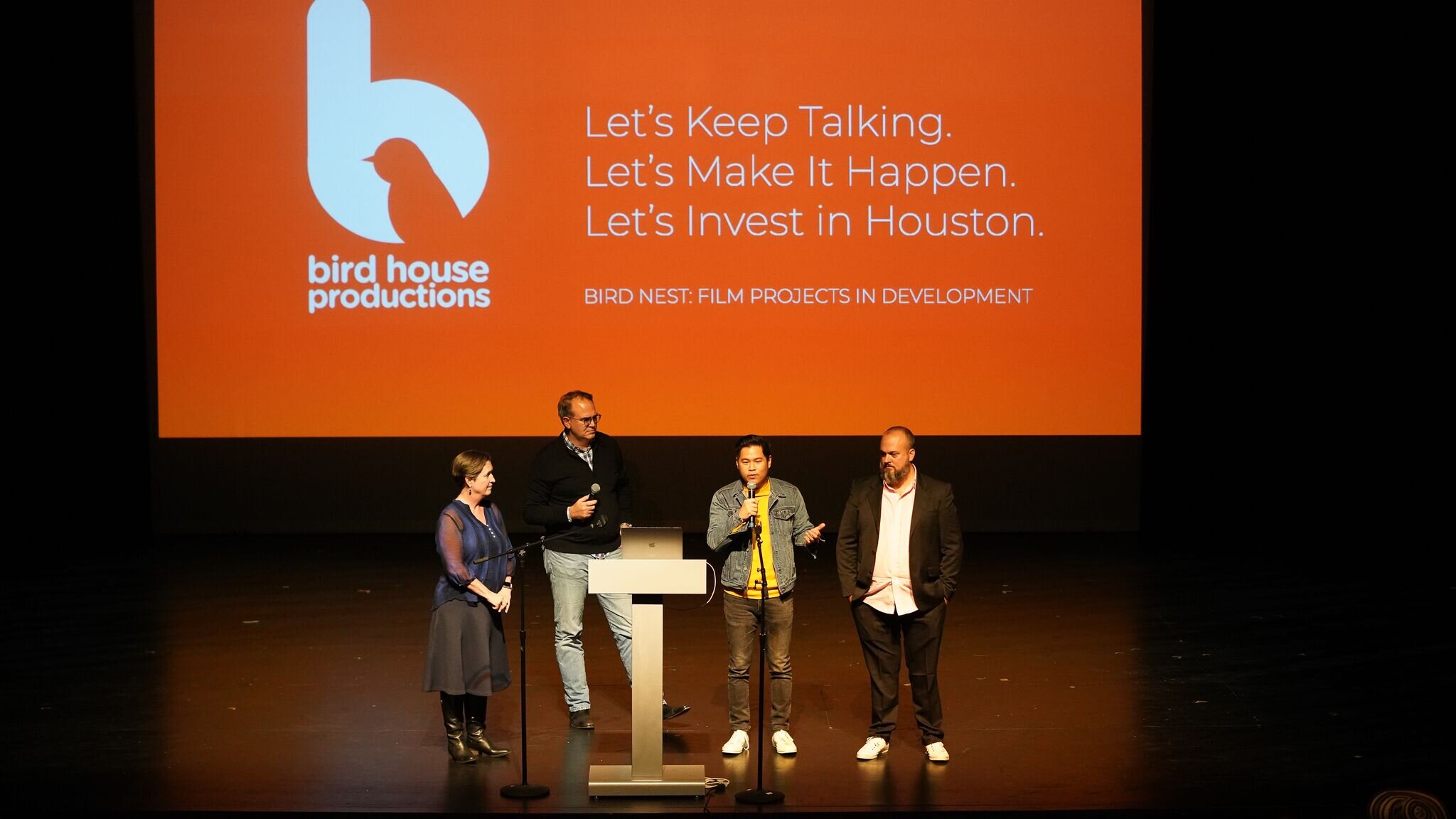
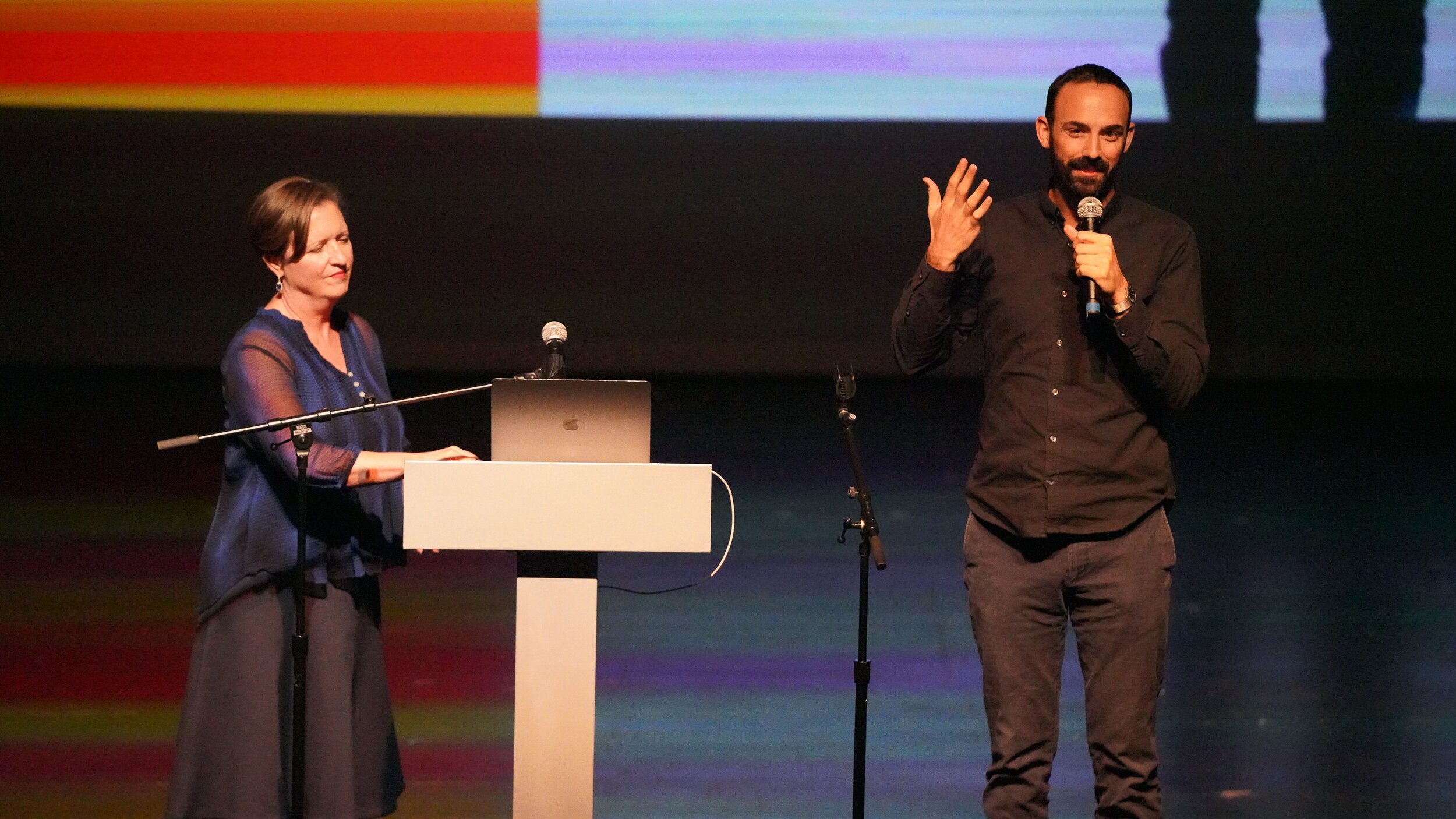
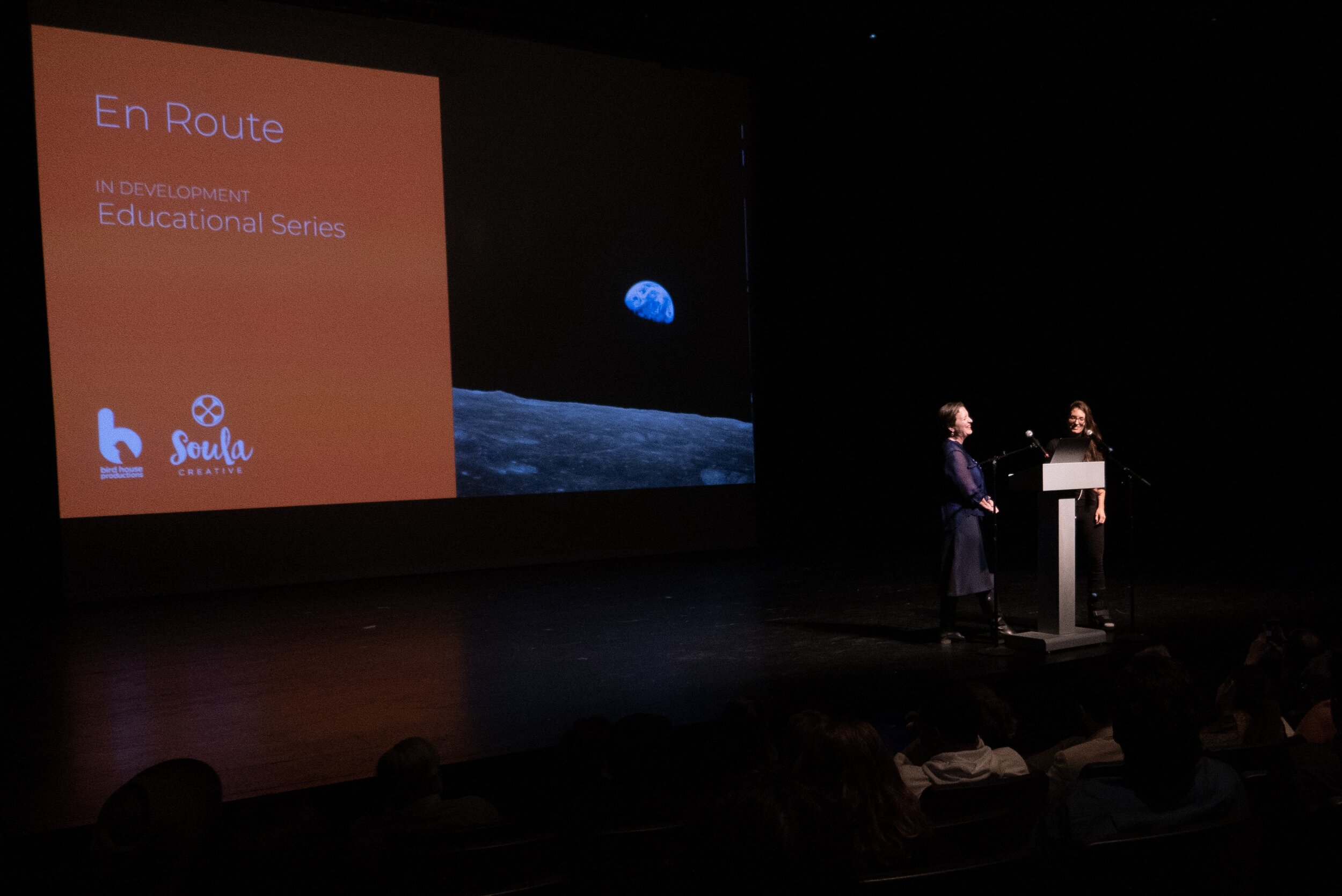
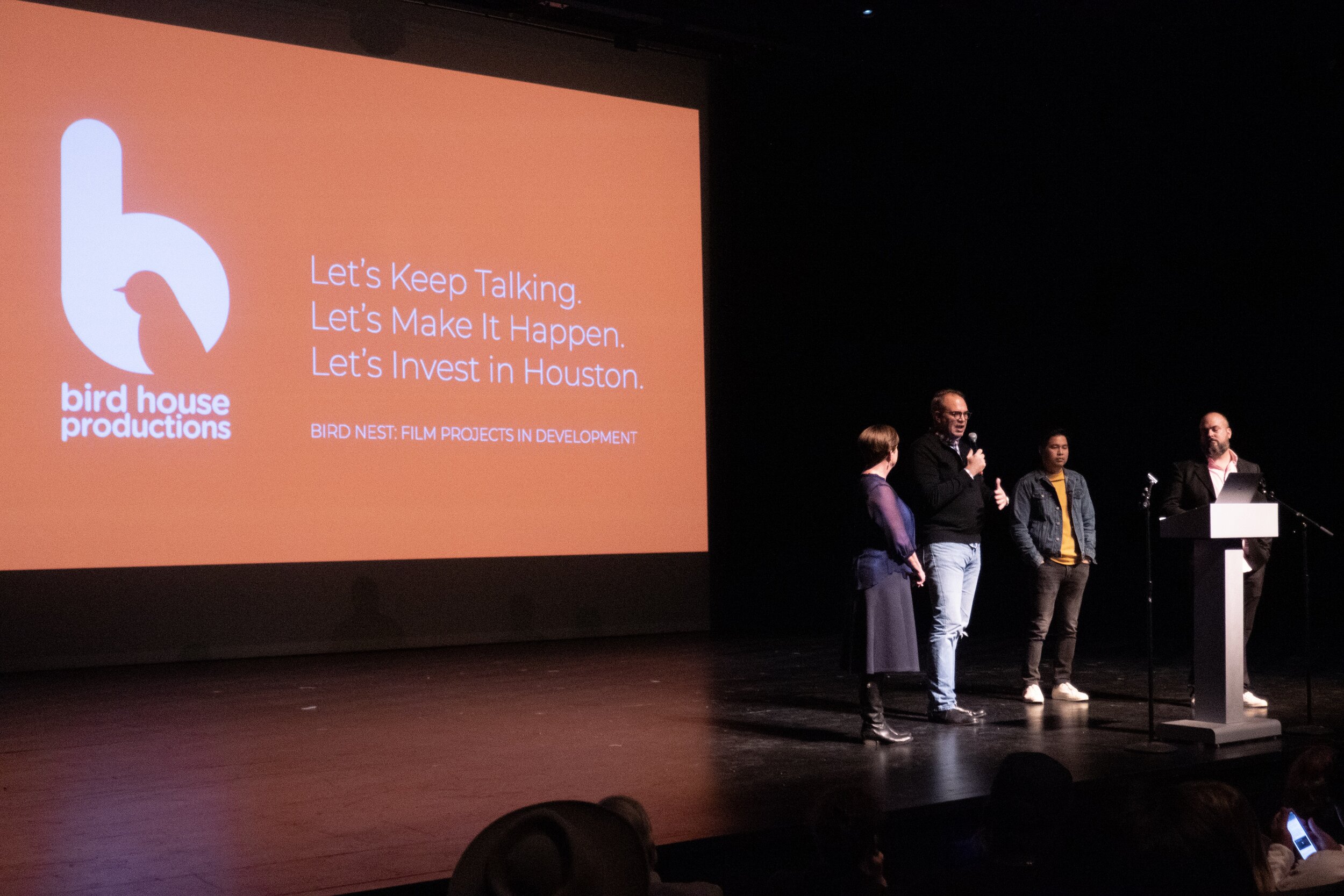
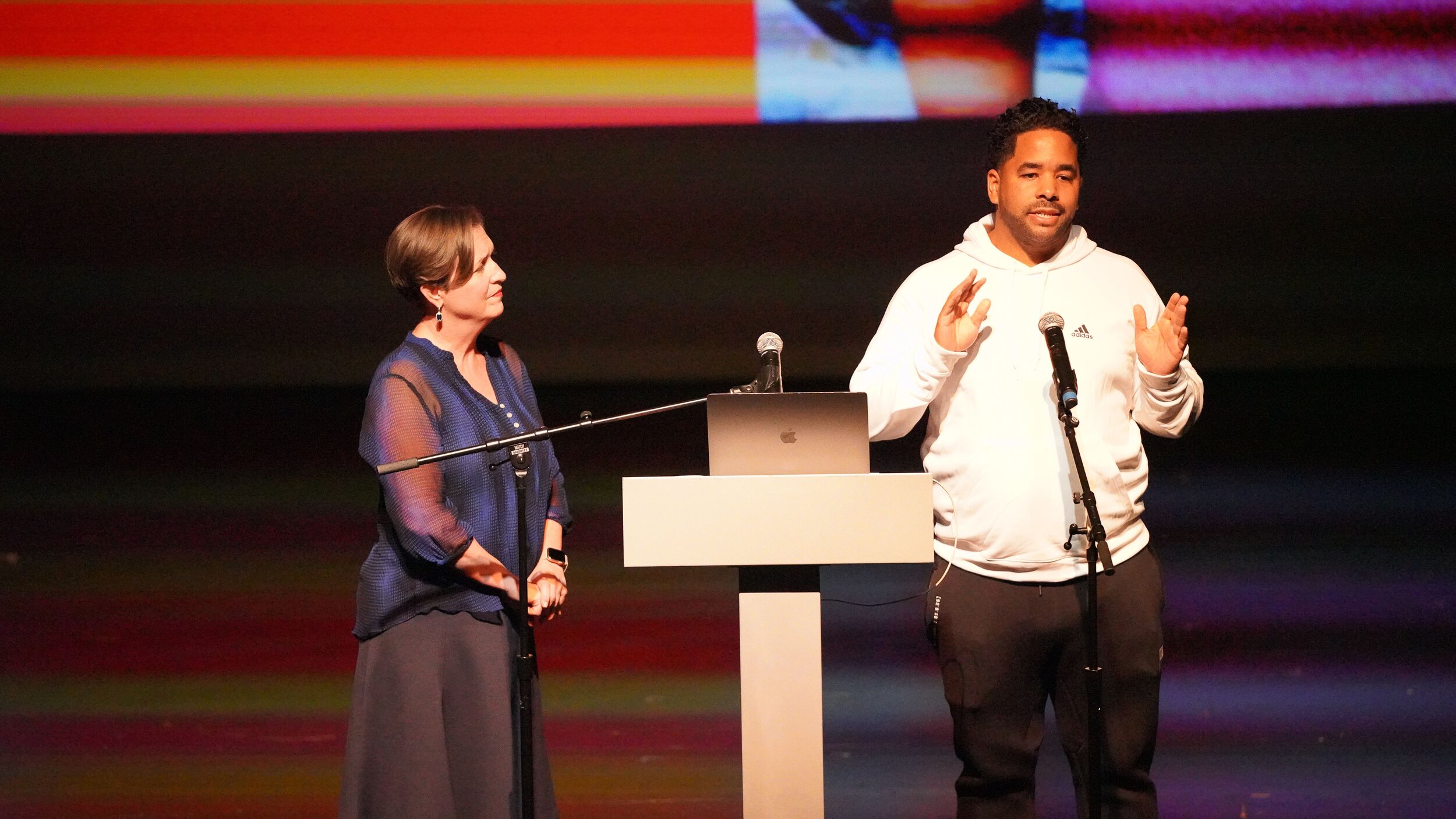
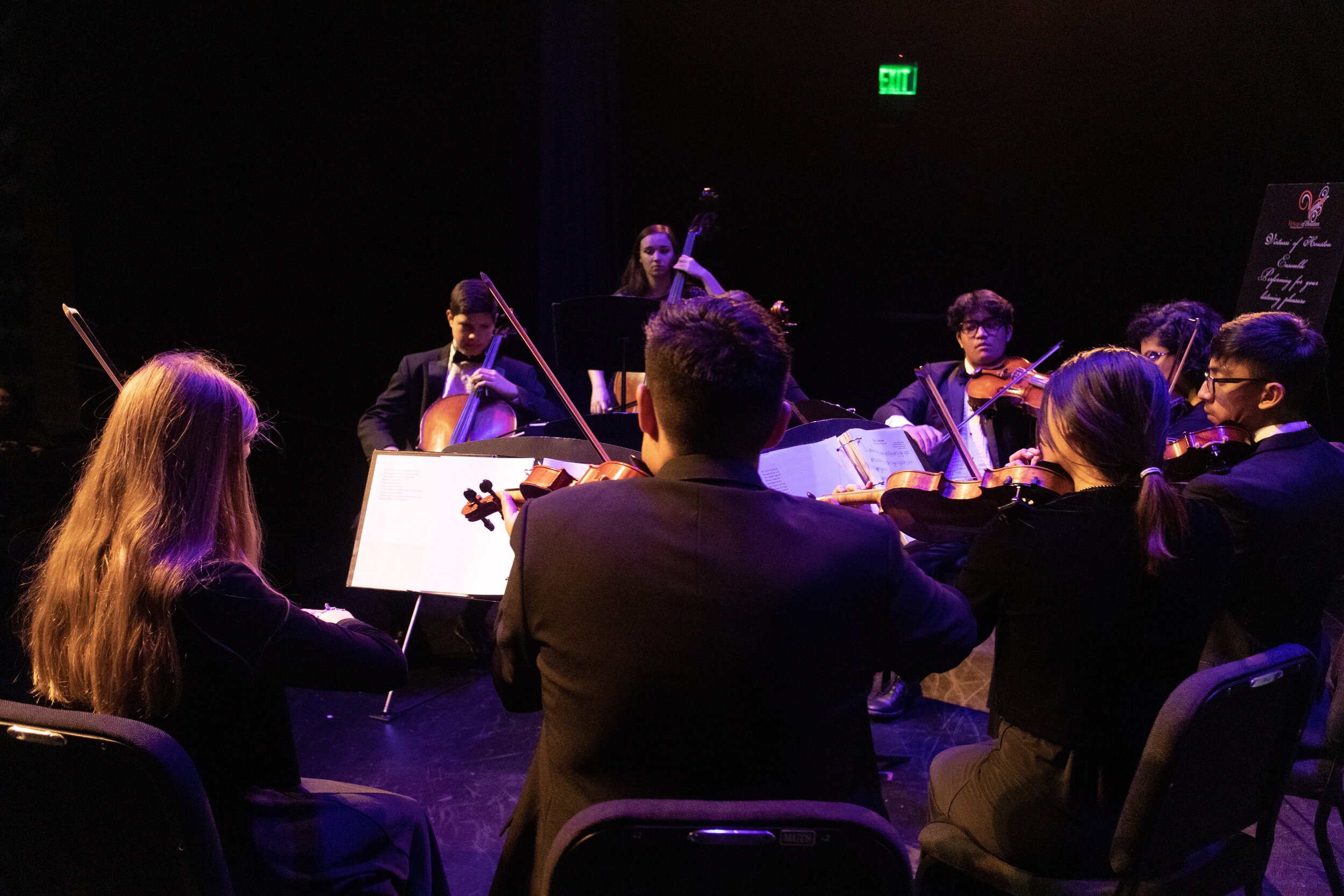
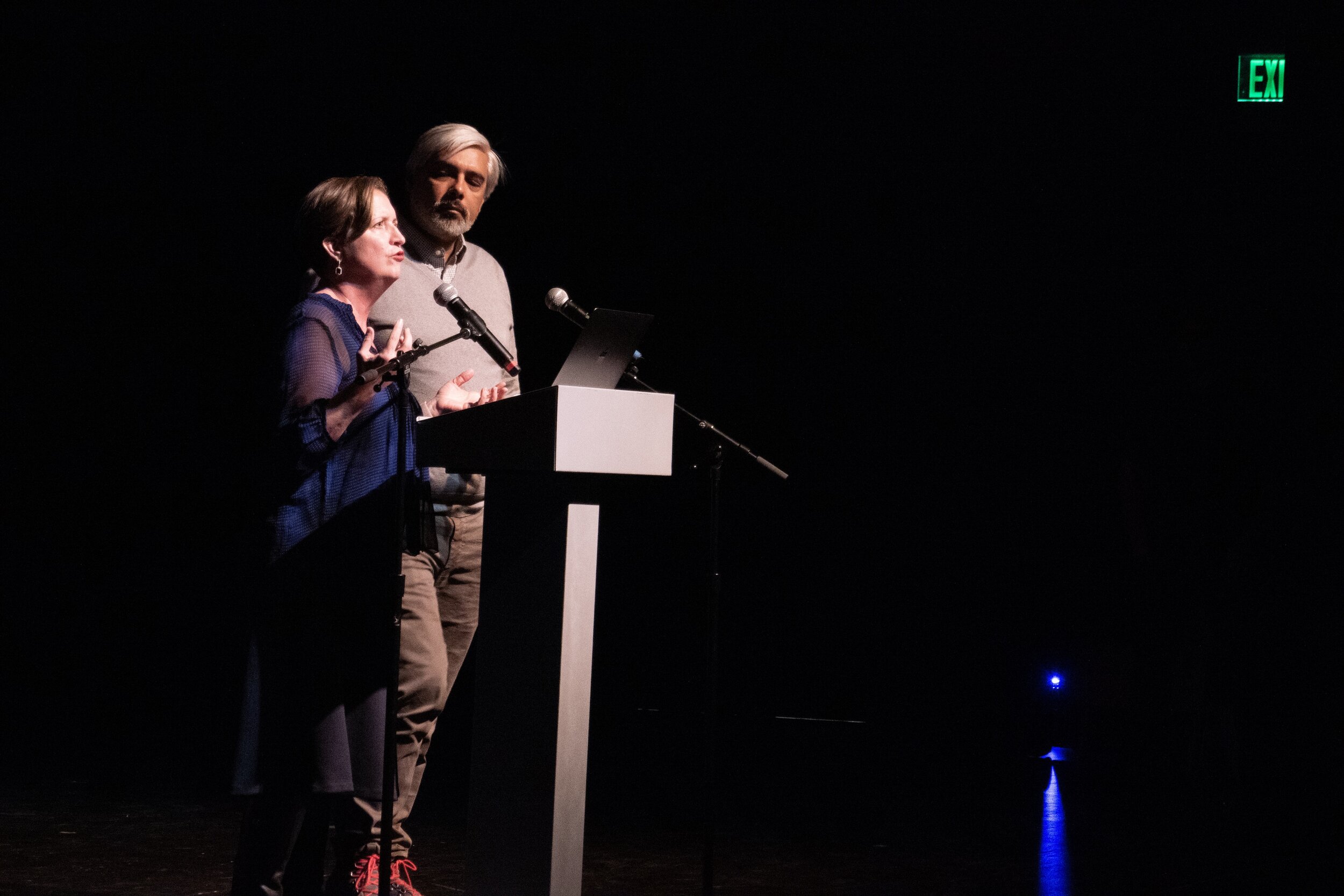
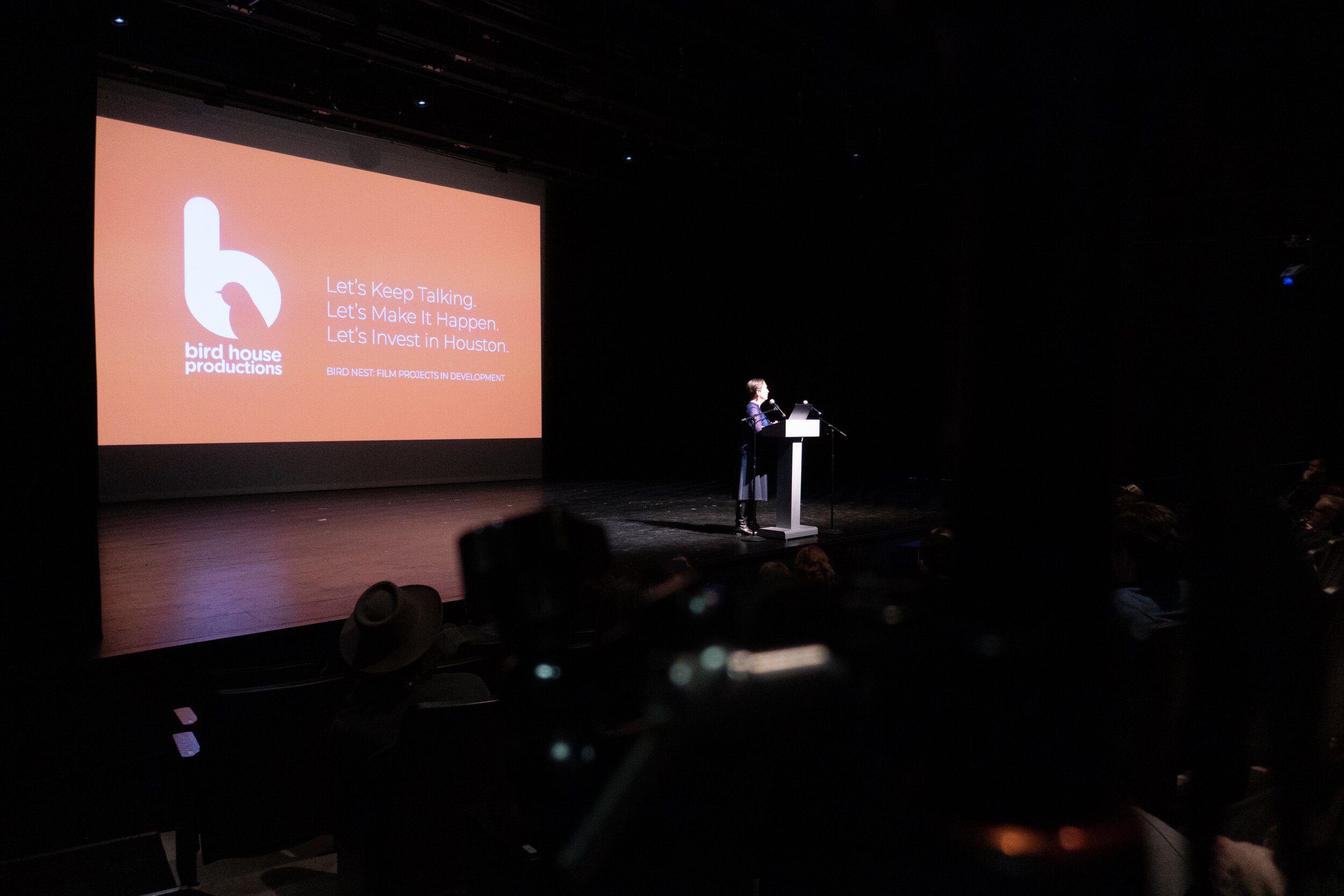
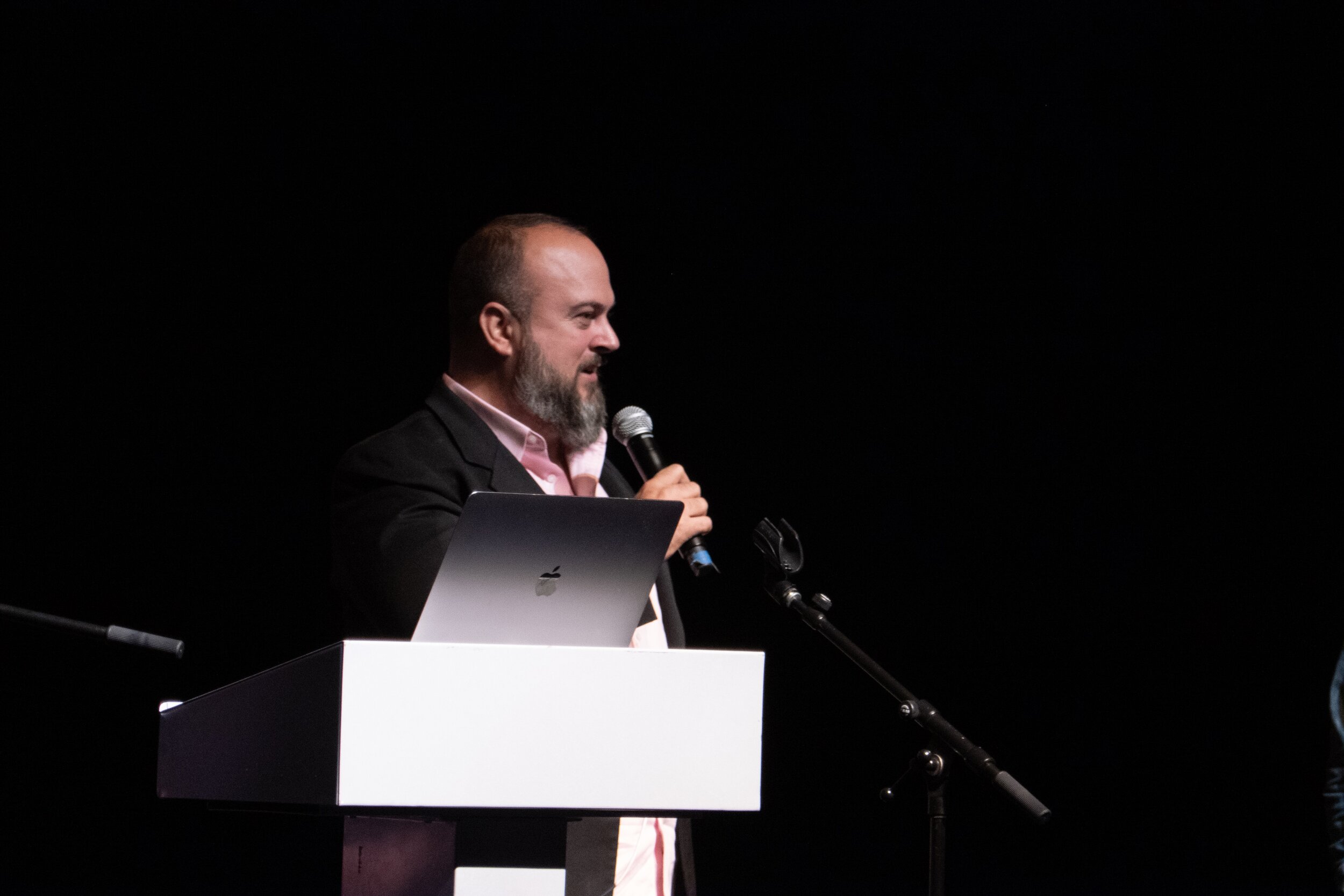
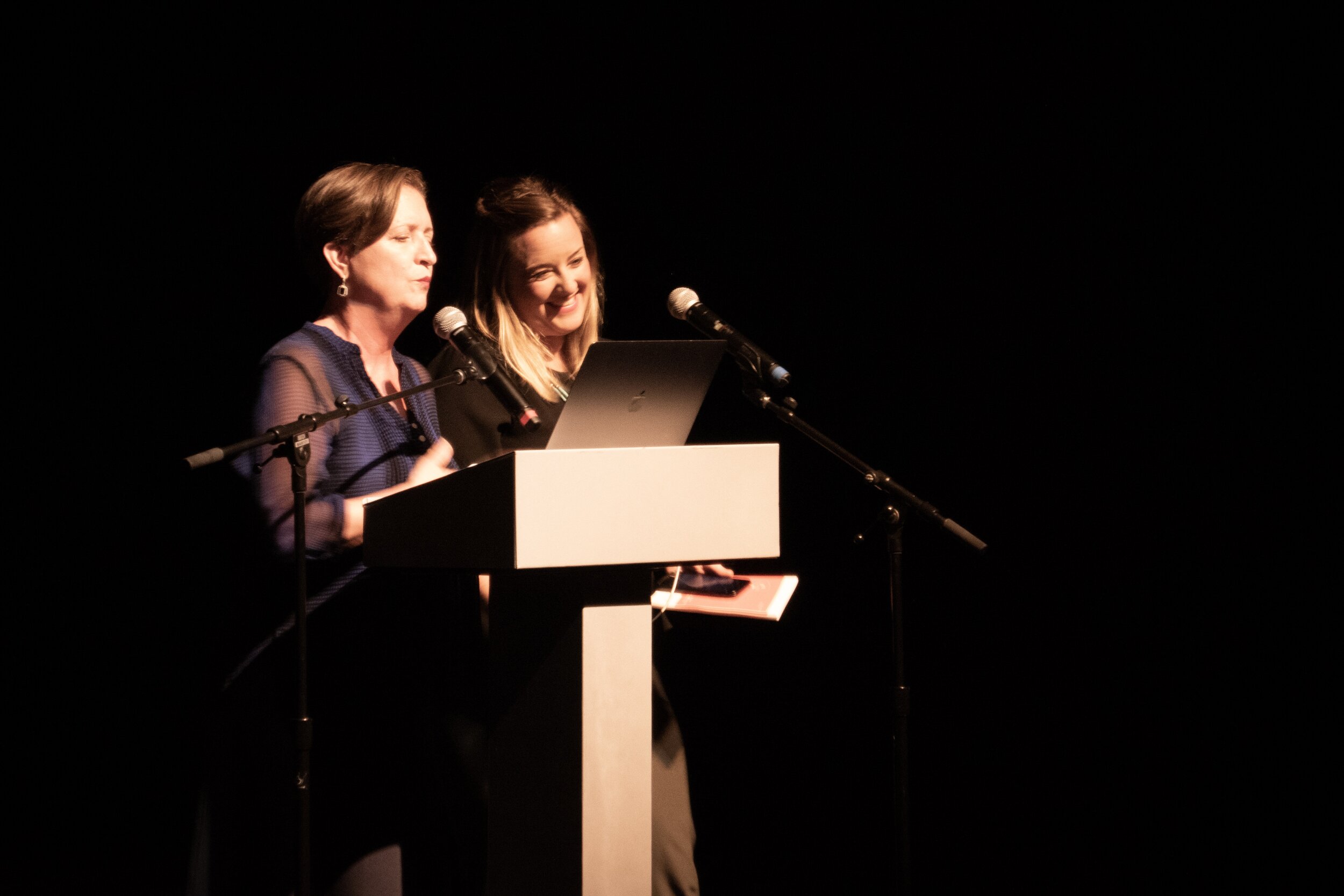
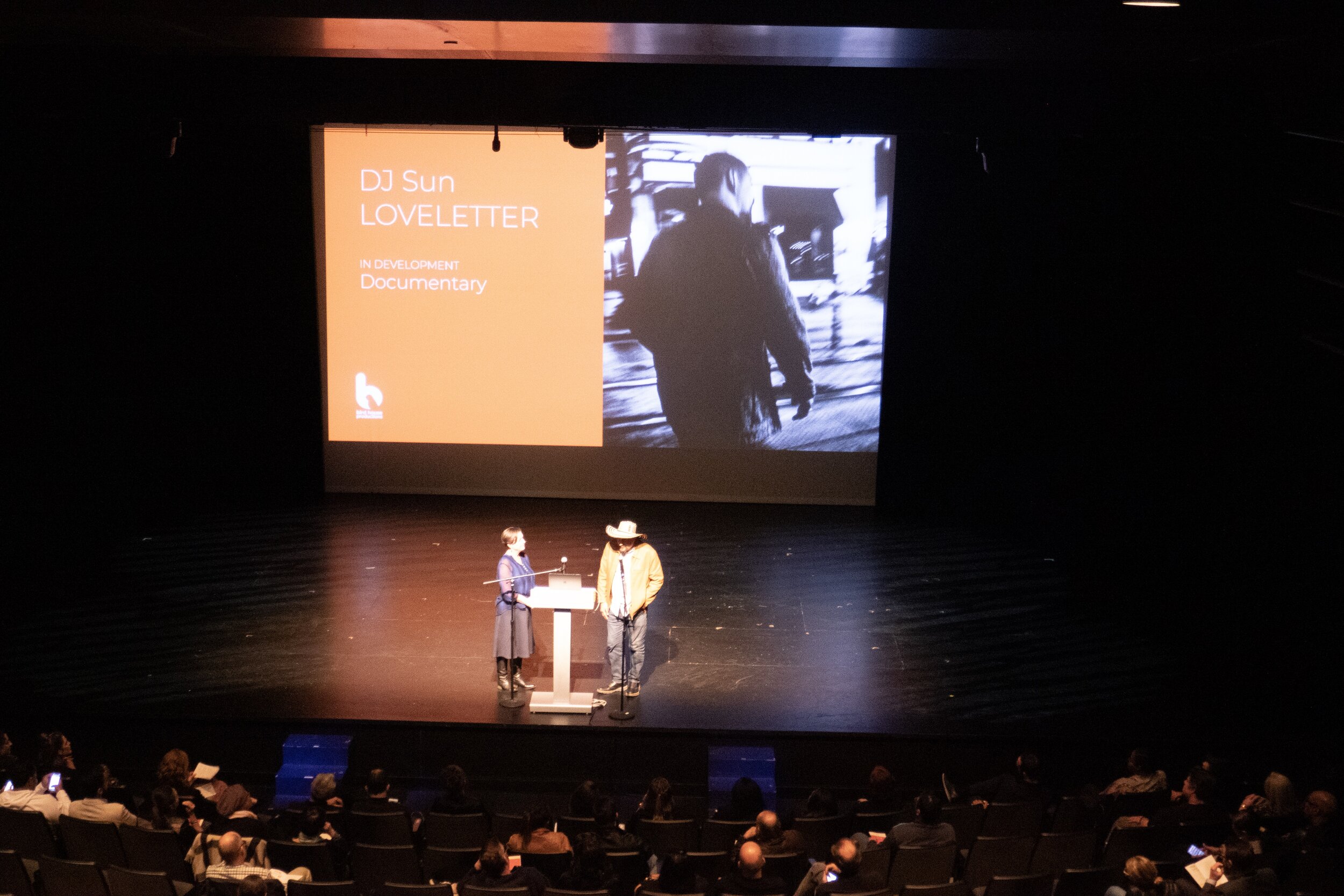
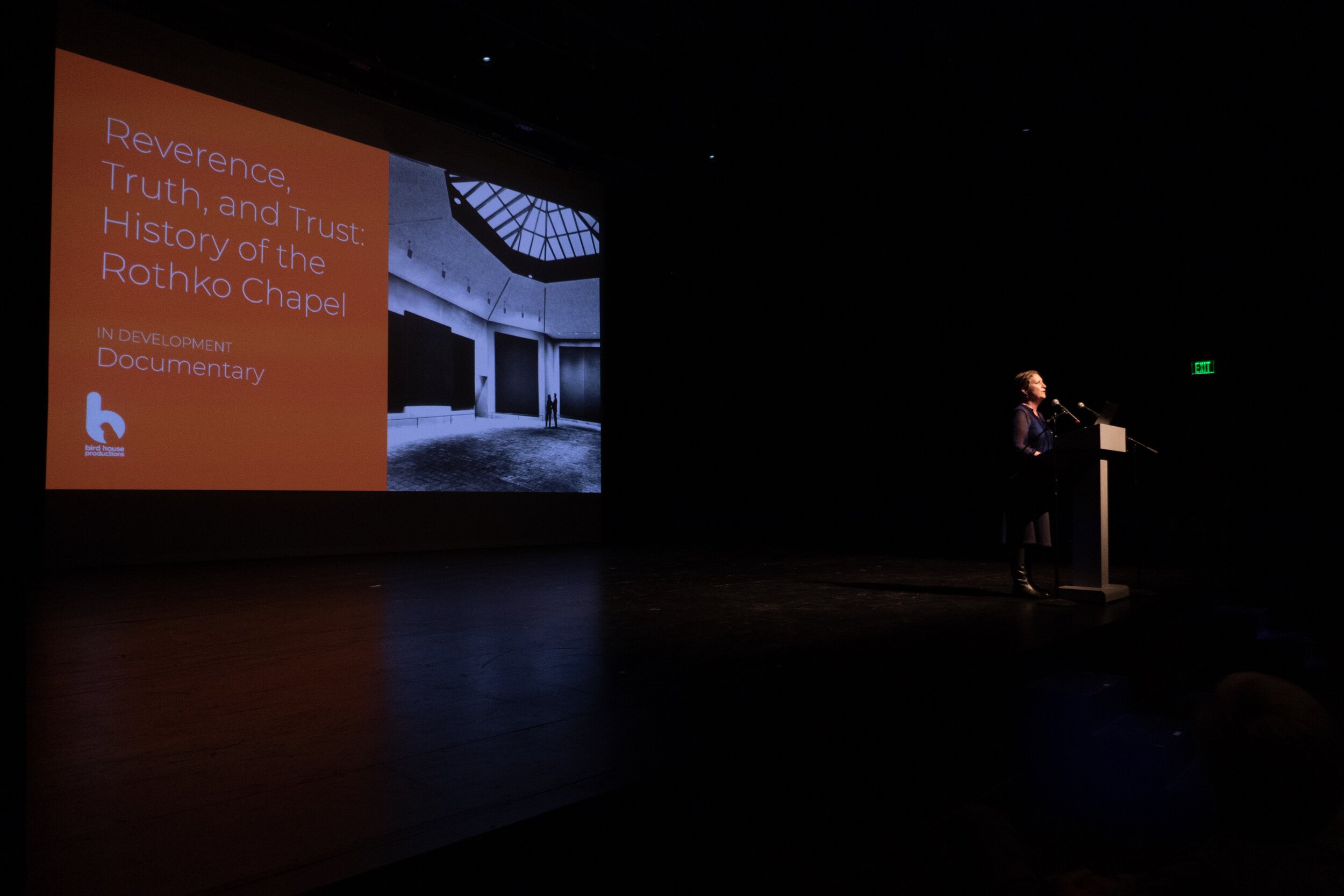
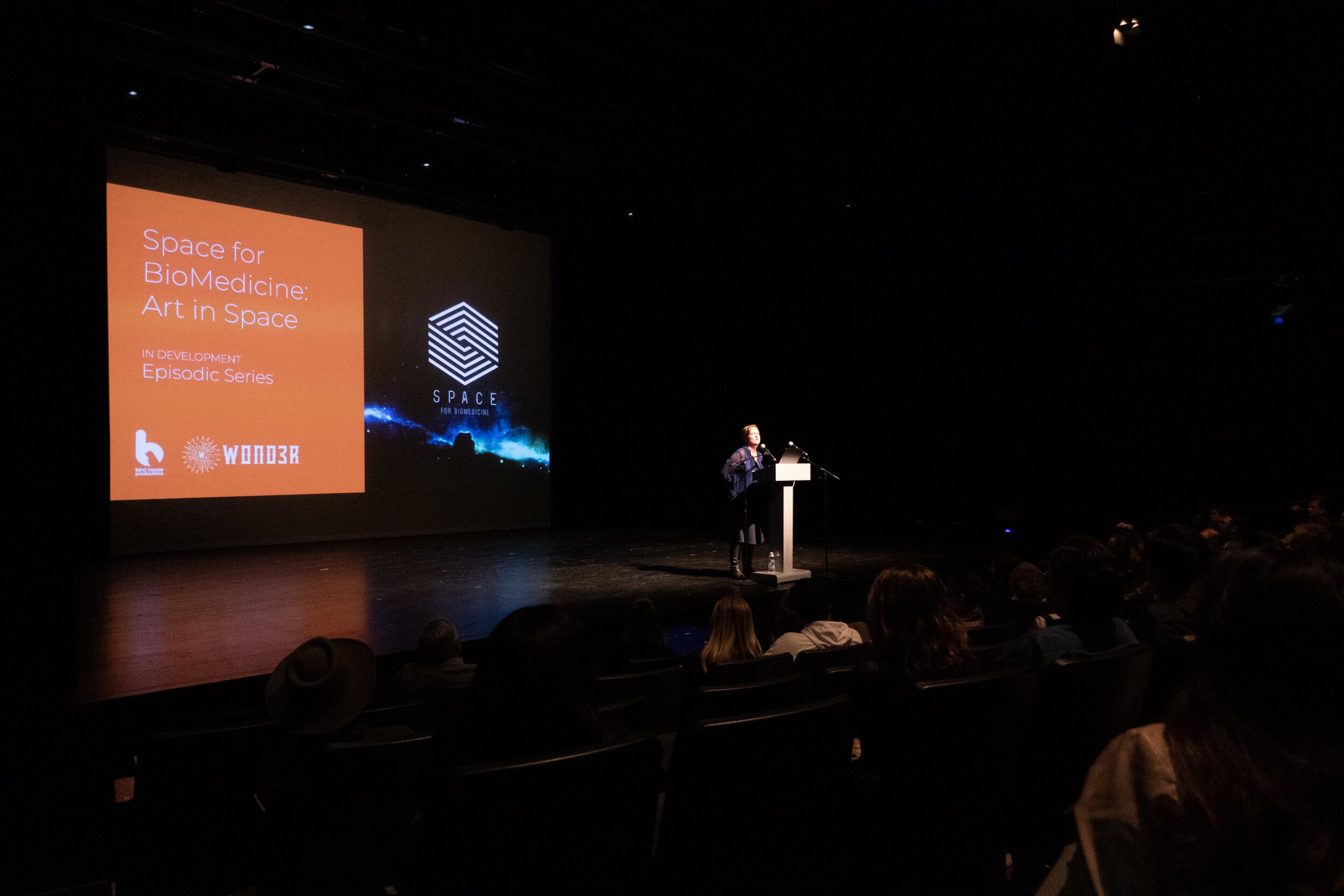
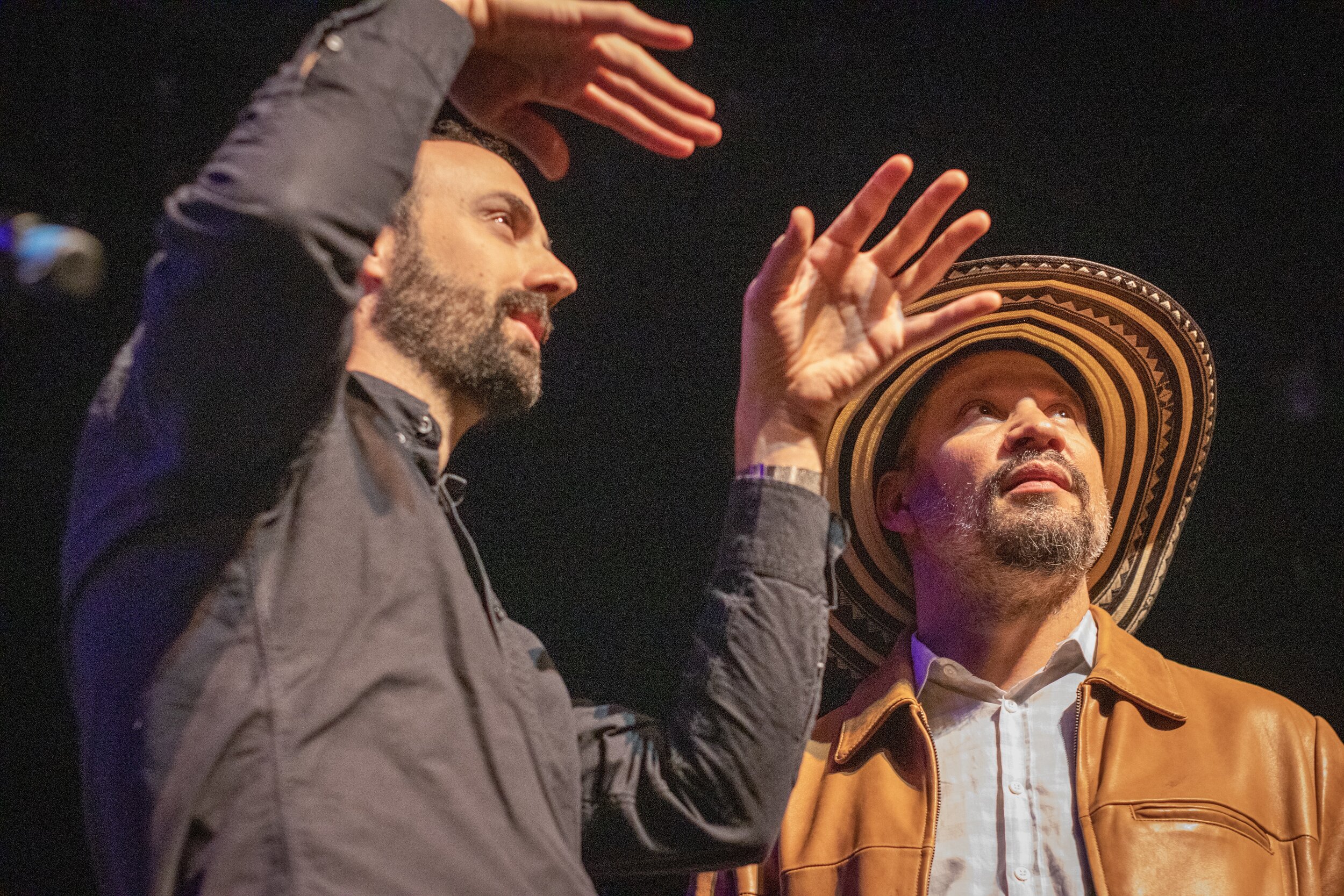
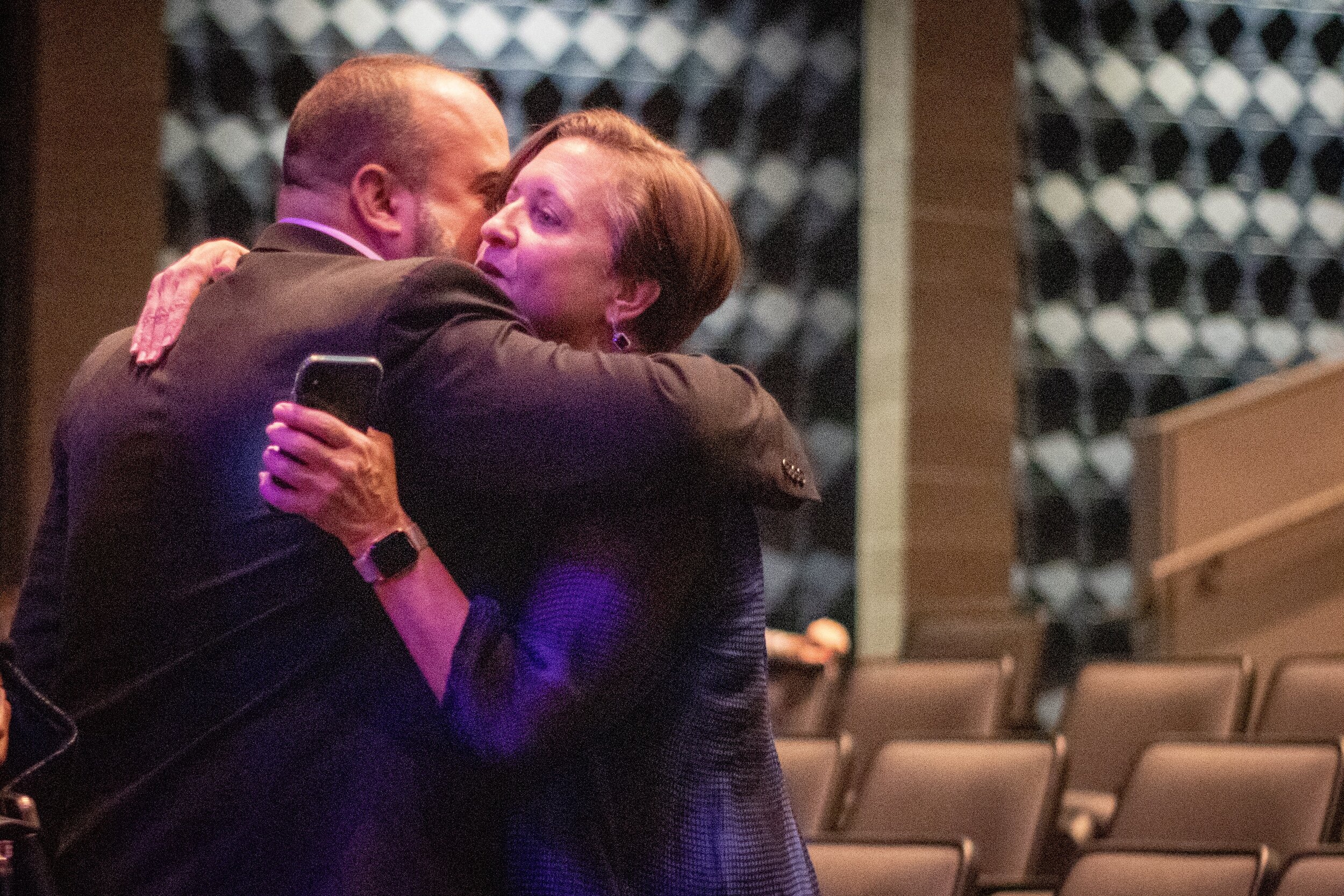
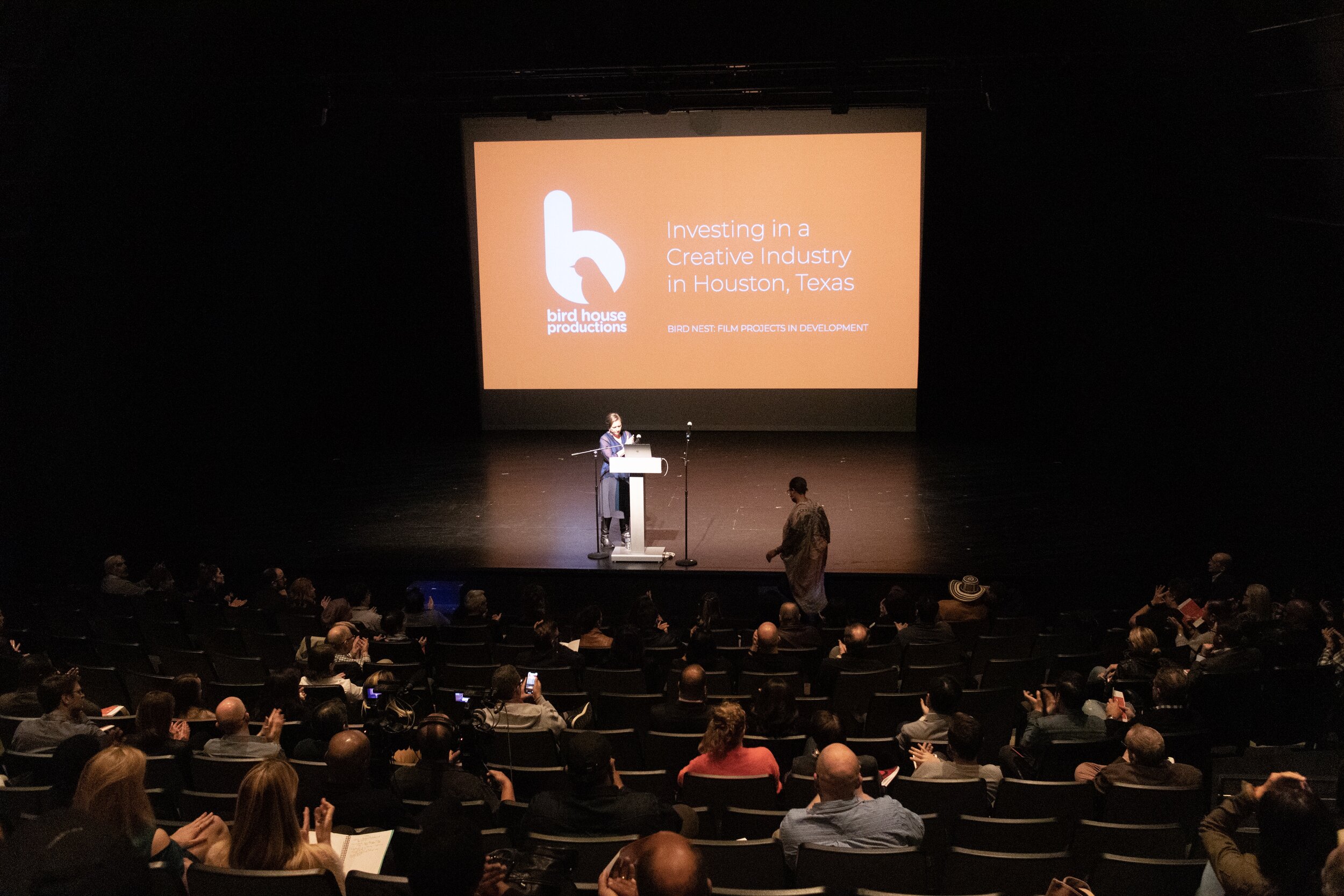
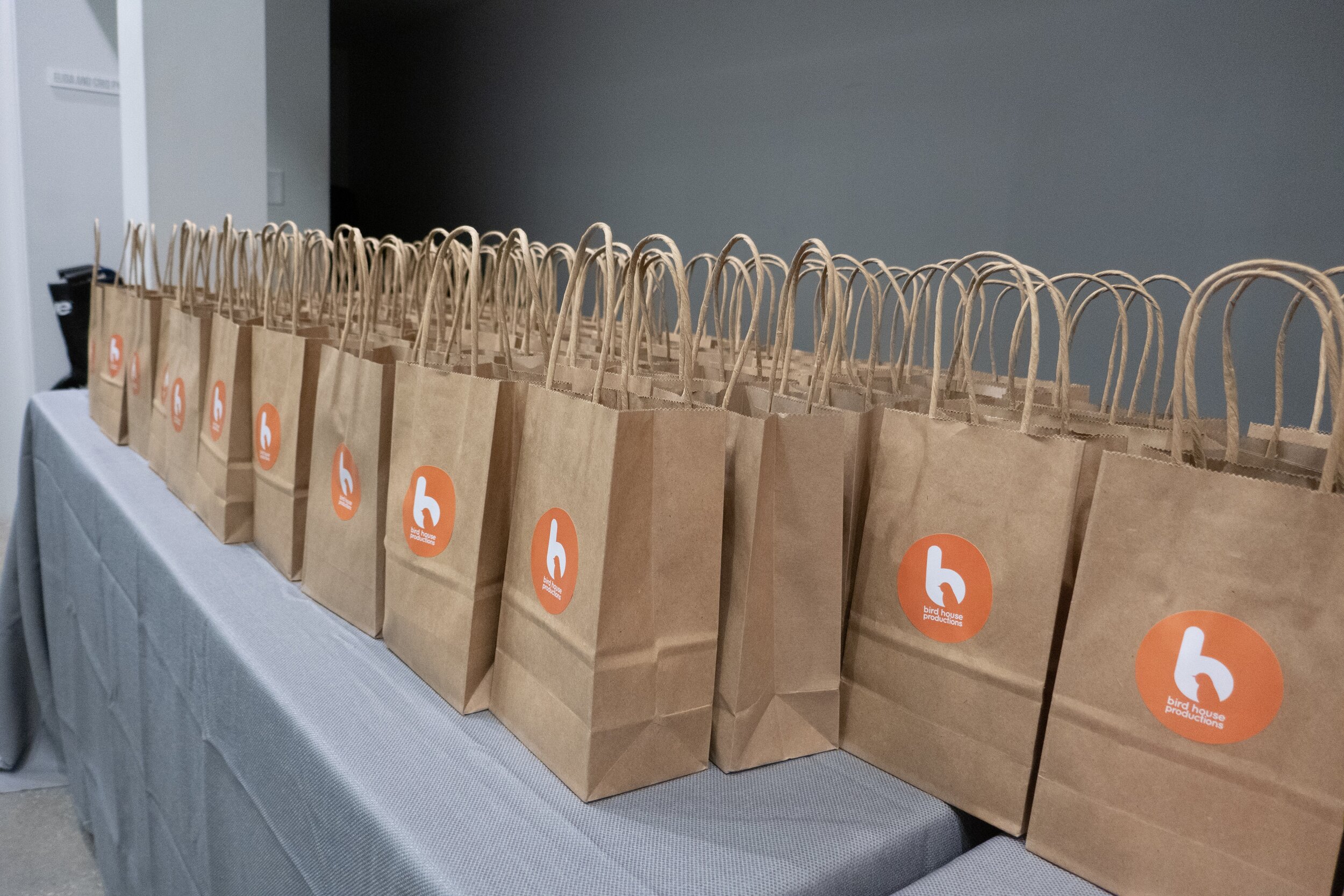
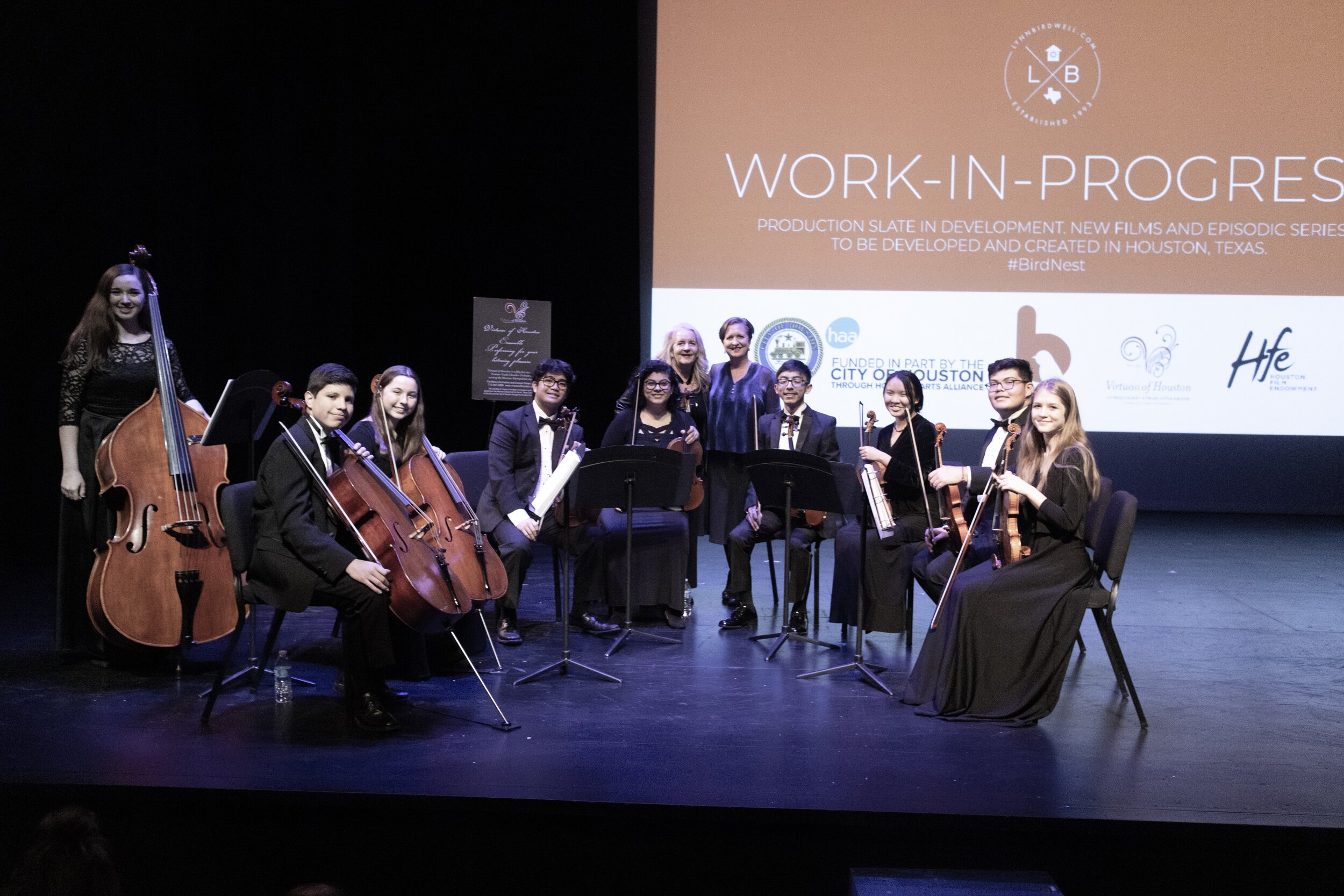
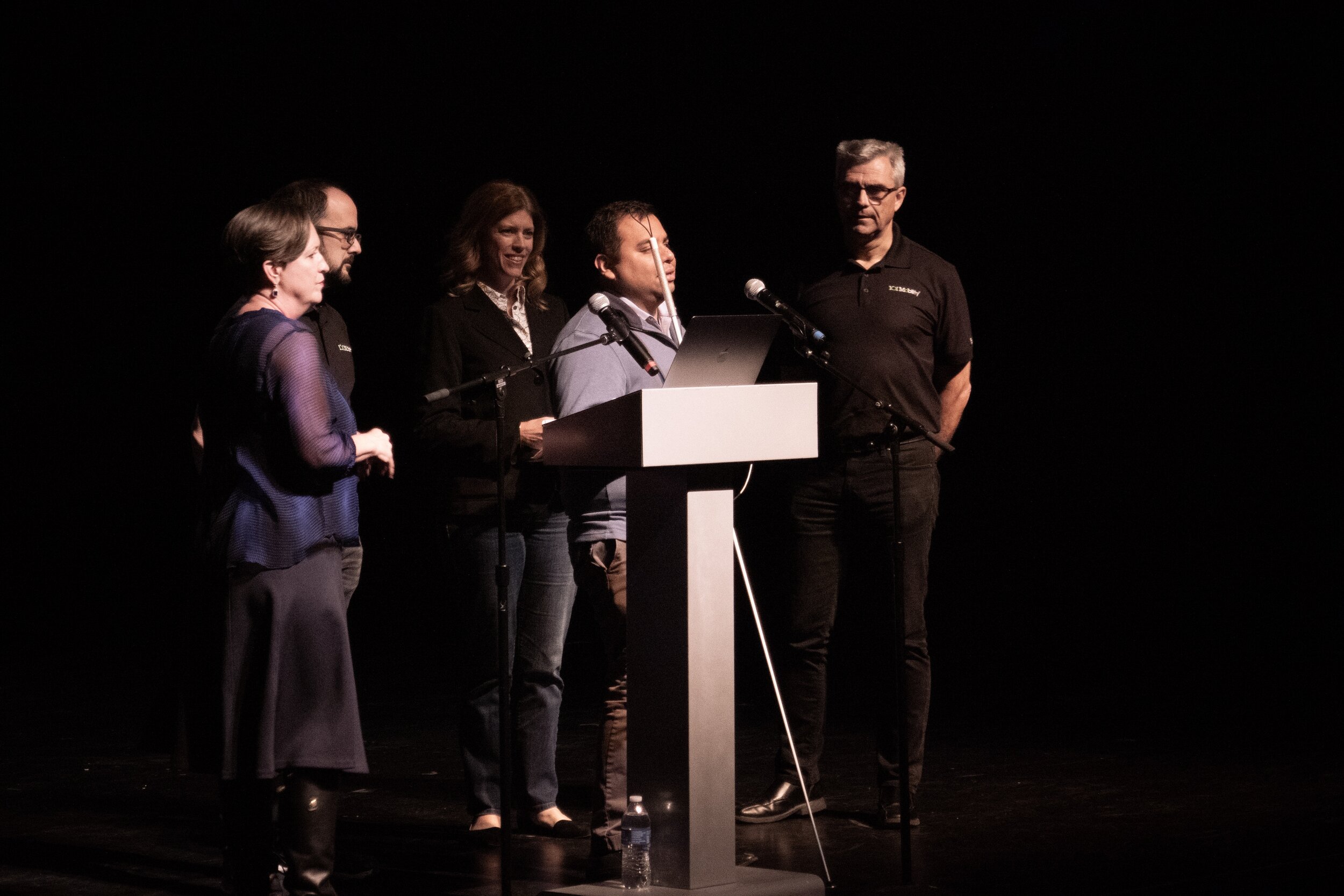
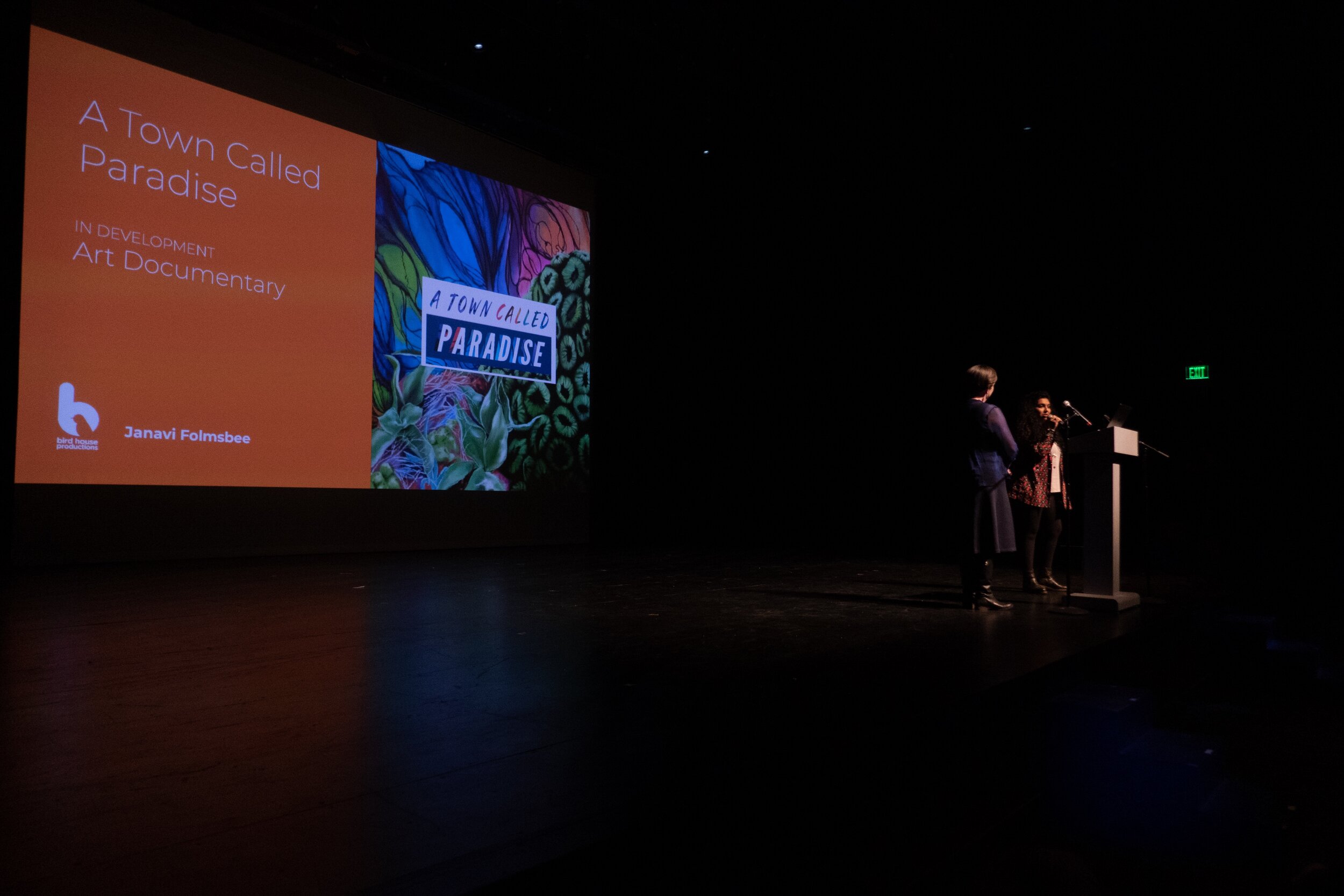
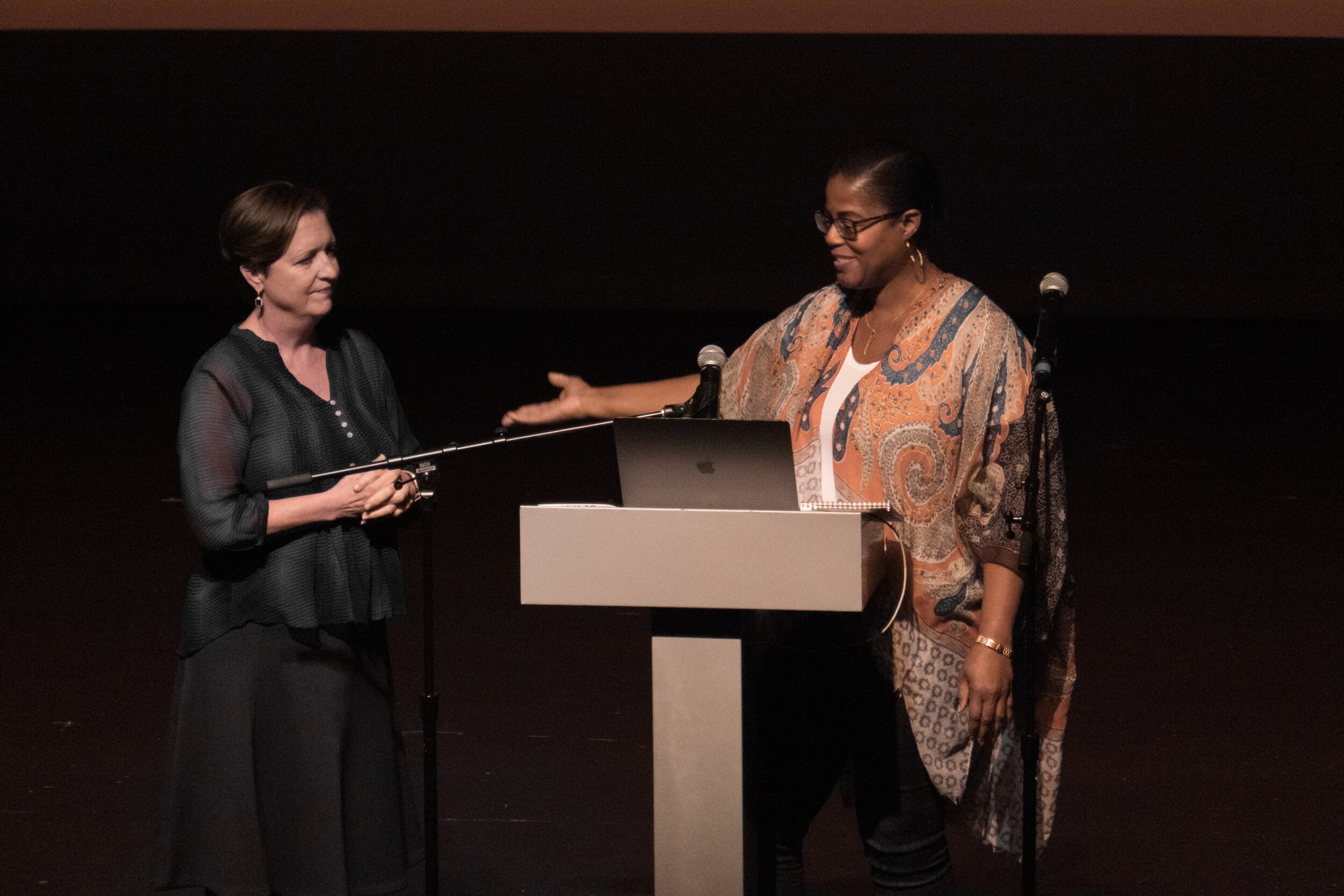
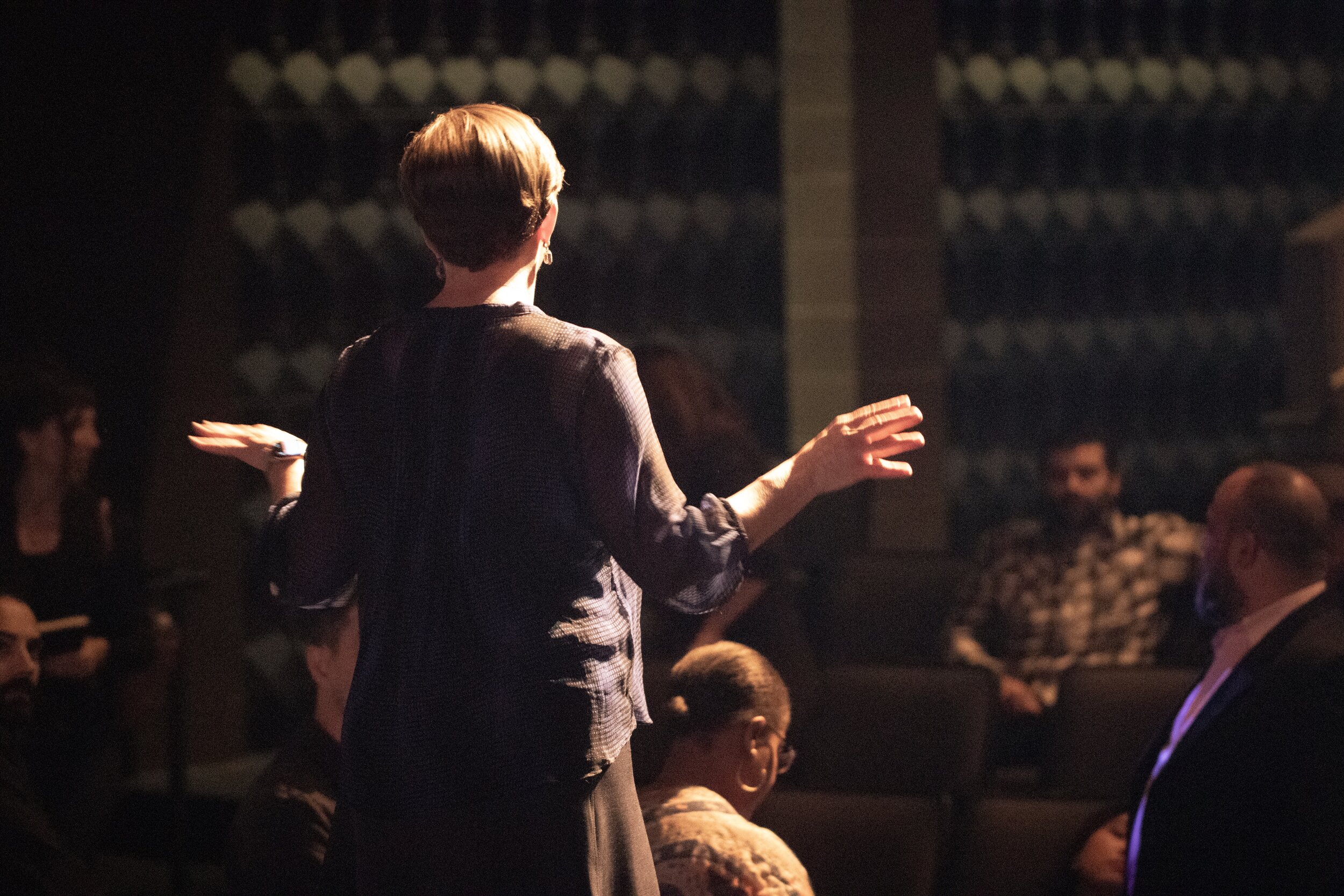
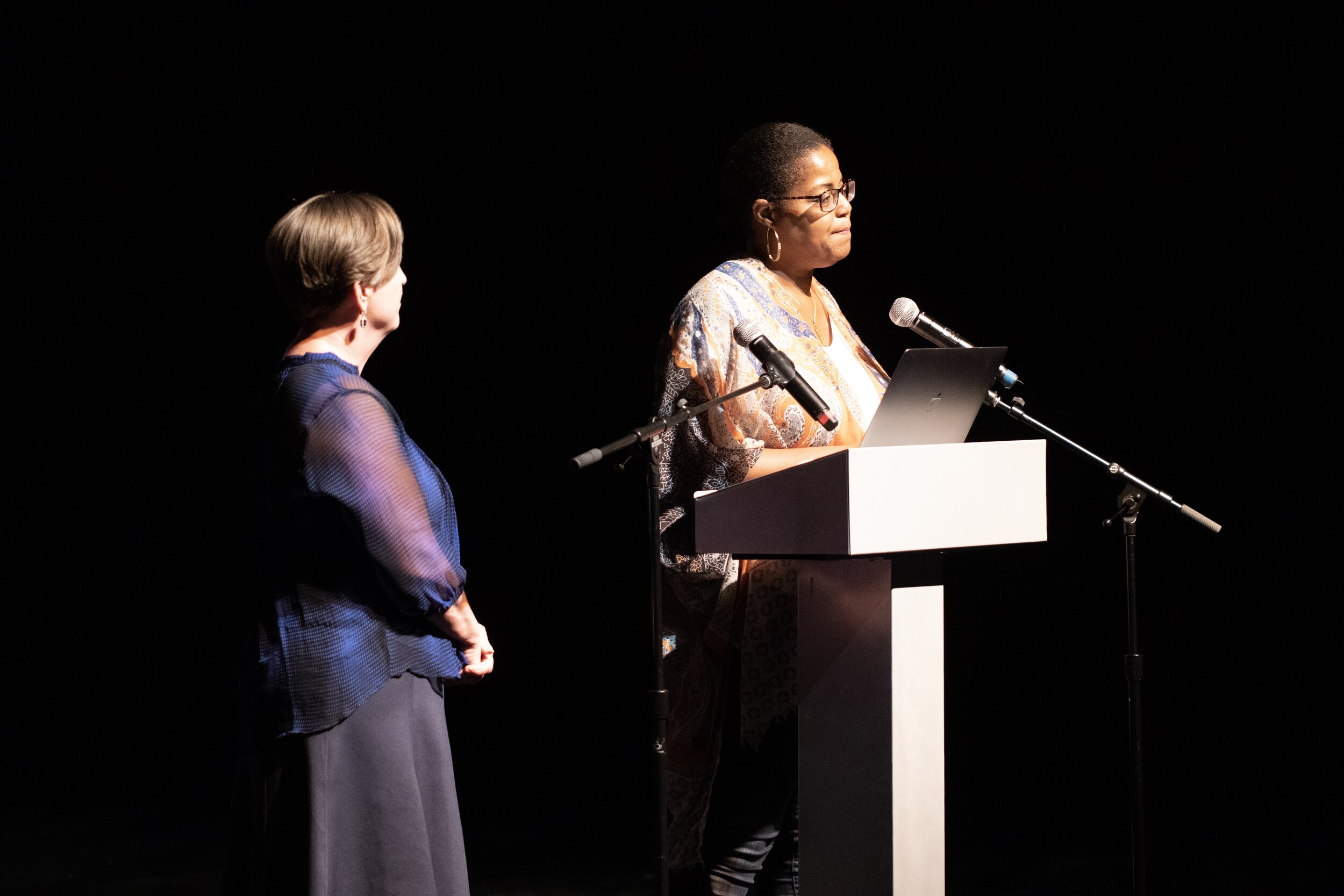
Houston Was Once a Major Draw for Film Production
Sean "Crash" Maxwell sits down with Bird House Productions Lynn Birdwell and retells the rise of film in Houston and gives a possible explanation to why production left.
Sean "Crash" Maxwell sits down with Bird House Productions Lynn Birdwell and retells the rise of film in Houston and gives a possible explanation to why production left.
Why Bird Nest Development is Important in Houston Now
Bird Nest, begun this year, is the brainchild of myself with the assistance of writer/director Kalli Carter, to hatch major projects we fell in love with or wanted to create. It is the development division of Bird House Productions founded in 2012 by myself and my husband, Director of Photography Raul Casares.
Bird Nest, begun this year, is the brainchild of myself with the assistance of writer/director Kalli Carter, to hatch major projects we fell in love with or wanted to create. It is the development division of Bird House Productions founded in 2012 by myself and my husband, Director of Photography Raul Casares.
Bird Nest is the place where we can develop TV and film projects of all sorts. Some of the initial project concepts, developed with industry friends, partners, and collaborators, will be presented at the Work-In-Production: Production Slate in Development on Wednesday, December 4, 2019, at MATCH. RSVP required at bit.ly/BirdNestDec4.
The presentation event fulfills the requirement of a Houston Arts Alliance (HAA) Independent Artist Grant awarded to me last year in a grant application written by myself and the University of Houston’s Fleurette Fernando, director of the Arts In Leadership master’s program. The original concept of the grant application was to develop one project, working with a group of locally renown artists and filmmakers. I reached out to the HAA and asked if I could develop more than one project. The answer? Yes!
I’ve been working as a producer since 1993, and in Houston, we do wear a lot of hats. So any week I may be working on a movie, a TV show, a global-brand commercial, a music video, a documentary. Or, writing a bid to win the opportunity to bring one of these lovely projects to be produced in Houston. It has been my full-time job to run a production company specializing in filming in and around Houston, Texas, all these years.
It is in large part because of a report from a comprehensive study in 2012 of the creative-sector industries and their impact on the Houston economy that I applied for the grant initially, and am presenting these works in development, on December 4. The report was commissioned by Houston Arts Alliance and the University of Houston, in partnership with the Greater Houston Partnership. The report states:
“We need to shift the perception from the arts as a quality of life attraction for a well-qualified workforce, to the creative sectors as a tremendously powerful component of the economy unto itself.”
The US Bureau of Economic Analysis (BEA) and the National Endowment for the Arts (NEA) produce a report called the Arts and Cultural Production Satellite Account (ACPSA). It shows film and video production to be the third largest of all creative industries included in the analysis, and it places fourth in the arts and cultural sector employment.
And according to Artsy, BEA and NEA released data reporting the arts and cultural sector contributions of over $763.6 billion to the US economy in 2015. This is more than agriculture, transportation, or warehousing sectors. Collectively, those employed in the arts sector earned over $370 billion.
This data confirms that the arts are not only part of the quality of our lives but are also a livelihood and an industry to invest in, in any city.
The HAA 2012 study determines that “on the world economic stage, Houston is a major player, as the fourth largest city in the US … and is now the most culturally diverse city in the country. Among its assets are a global population, a talented and productive workforce, a comparatively reasonable cost of living and a good quality of life.” The report shows that Seattle, Austin, Atlanta, and greater Los Angeles have adopted the “creative economy” as a vital and even critical component to a diversified regional economy, and that in comparison, Houston proves to be underserved by local creative businesses.
Because of this, over the years I have experienced losing large production bids to other countries and states (Canada, then Louisiana, then Florida, then Spain, and currently Uruguay). We would need to build crew numbers here or work for much lower salaries to compete with markets like Uruguay. There are even many projects we lose from Houston to other cities in the state due to studio facilities or equipment specialties or city film incentives we do not currently have in our city. By purposefully growing the local creative sector, Houston can meet more of the outside demand and its own demand and keep more revenue at home, the HAA report notes.
In general, all across the nation, creative economy workers are educated, highly compensated workers. Without much effort, Houston has created one of the country’s larger and more robust creative economies. With targeted resources, Houston could evolve this sector at an even greater rate than is already predicted. This just means building a stronger foundation and infrastructure for creative industries, like film production for example, to thrive.
The HAA report shows the creative sector is a highly desirable and sought-after piece of today’s urban economies. It offers greater diversity—and thus greater stability—of a local economy; greater ability to attract new employers (quality of life); greater ability to attract professionals and families (diverse job opportunities); higher profile in national and international media (“creative” is cool); proven record as a growth industry with great potential for further expansion; and an elevated tourism appeal.
One of the biggest hurdles Houston faces is it is just developing its reputation as a creative city. Long considered a working town with oil and gas, medical, and more recently tech as major industries, it’s now known globally for exciting chefs, world-class sculpture, beautiful parks, and destinations, like the newly renovated NASA facilities.
But making a very good point, the HAA report notes there is a great difference between being a creative city and being perceived as a creative city. In the 21st century, Houston has an opportunity to redefine itself as a modern, forward-thinking, creative-industry center in the eyes of the world community. And that means being known for many more creative arts, and that can begin with film. Film is the only art form that supports all the other art forms.
By evolving into that image and developing the creative industries, Houston as the energy capital can also become the global hub for creative energy, according to the HAA study. To me, it seems entirely possible and likely.
In 2012, Houston’s creative economy employed more people than the Texas Medical Center. (Currently, the medical center is second only to the oil and gas industry in Houston for employment.)
The HAA 2012 report notes that although we can change this balance, Houston’s demand for creative goods and services is greater than its supply of creative goods and services. The demand for creative goods and services in Houston in 2012 was $20.53 billion. The amount of creative goods and services produced locally was $10.77 billion. Consumers and businesses got the additional products they needed by imports. City residents imported $9.76 billion in creative goods, sending the money to other communities. Houston’s creative businesses exported only about $1.4 billion in creative goods. The amount of money coming into the city was considerably less than leaving it in the creative sector. This is still true today, in 2019.
In Houston, employment in film has declined significantly since the 1990’s, and production of big-budget features is nearly zero. This is not due to the lack of financial incentives at the state level. These we share equally with Dallas and Austin. The difference in part is that Houston does not currently offer the city-level incentives that other Texas cities do at this time, and those other towns get the lion’s share of the film and TV projects that come to the state.
Houston is currently home to global brand commercials that are filmed in Houston often because star professional athletes like Houston Texans JJ Watt and Houston Rockets James Hardin are here. We have been the location for many seasons of the Little Couple because Jen and Bill made their home here for a time. Music videos like Travis Scott’s are shot here because the artist was born and raised here and wanted to film a particular video with Houston as the backdrop. Because Houston is the home to massive industry, many corporate communications films and industrials are shot and edited here.
To build a true film and TV content production hub in Houston, we absolutely have the capacity and the desire, but the infrastructure will need to be created. That requires not only vision, but also the support of artists of all types of art forms, that have left Houston to follow their fame in other cities. And, the city’s tourism will grow as the film industry does by creating the inevitable film and TV tourism which follows successful productions.
A final point. Houston is a wonderful and inclusive city. As the 2018 Nostradamus Report: Do or Die (published by the Göteborg Film Festival) says, “All over the world, women in the film industry are organizing themselves to put pressure on decision makers. Audience groups are advocating online against sexism and racism in hiring decisions, casting and representation. It would be a shame if traditional film industry decision-makers — those who do not trust women to produce, write or direct — decided to gamble the box office on maintaining the status quo.”
We have an opportunity right now to take advantage of open doors, open new doors for others, and simultaneously build our own house -- the Houston Creative Industry Economy.
Working to Make an Impact on Houston’s Film Industry
Bird House Productions Co-owner and Executive Producer Lynn Birdwell discusses why Houston is an ideal city to film a project with Texas Motion Picture Alliance Treasurer Susan Fowler. Susan also highlights how Houston is taking video production education into the high school level so students can graduate with an associate's degree.
Q&A with the TXMPA PAC Treasurer Susan Fowler
4th Annual TXMPA Impact Awards, GRB Convention Center, Houston, Texas, October 19, 2019
LYNN: Susan, how long have we known each other? Do we even know?
SUSAN: I don't know. Do we want to say?
LYNN: Okay, so maybe the 90s. Somewhere in there. Okay, it's safe. So, tell me about the history of the TXMPA, briefly, and what your role has been?
SUSAN: The TXMPA was started to fight for jobs and to fight for incentives in Texas so that we could be competitive with other countries and other States that have incentives and try to attract film and television there. We've had a successful run of it. We've been going for about 15 years. There are a lot of people here tonight. I'm glad to see that our founding members are here, and we're excited to be in Houston for the first time for the Impact Awards. This is our fourth year of having the Impact Awards. The reason that we wanted to do that was to highlight the cities that we're going to and give them an opportunity to shine and have the crews and the producers and everyone that's here to network. And, we actually have a lot of people who come in from all around the state.
It gives us a chance to really shine and show Houston and you know, show what our downtown looks like. And, it's fun. It's a fun event. The reason that we call it the Impact Awards is because that's our focus. That's our job. It's like how our film and television productions are making an impact in Texas. And so, we invite legislators as well as shows that have been produced in Texas by Texas people with Texas crews because that is the impact. And, so we try to highlight that and have some fun doing it.
LYNN: You are a Houstonian, and you and I have been doing production in Houston for a really long time. We know what's possible here in our city, and I feel like most people, when they think of production in Texas, they think of Austin and Dallas because they don't know what we know. What do they not know about Houston
SUSAN: Well, I think they don't really know how easy it is to work in Houston, how vibrant it is here. I mean, the culture and the people and the locations are friendly and accessible, and we have a really hard-working crew. We've had a successful run. A lot of people aren't as familiar with the successful run that we've had in professional productions and studio productions because the focus in more recent years has been on, you know, commercial and independent film, but a lot of people don't know that we have produced Emmy-award winning television here. Fox was here for almost 10 years and produced for Emmy-award winning productions out of that facility.
LYNN: What do you think that will take to bring that back to Houston, and how can we work in Houston to educate and bring production here?
SUSAN: I think that events like this are important. It highlights the city. I think we don't talk about ourselves enough. I don't think that we share enough of our successes. Let people know what you're doing, try to get interviews with the papers, hold networking events, attend them, put your name out there. It's important even if you've been doing it a long time.
LYNN: It also shines a spotlight on Houston, which doesn't always get the film spotlight right. Let's talk about development and education at the university level. Growing from within is always a great opportunity. Do you think that would be something that would allow Houston to elevate a film industry Here?
SUSAN: I can actually tell you something that's even more exciting that’s happening. We have high schools here that have taken a step even further back into the educational levels. We have students who are graduating from high school that the city has invested in, along with partnerships with Sony, with Apple, with Dell, with Comcast. Believe it or not, some of our high schools have some of the best production facilities in the state and they are actually graduating students with associate's degree ready to move on to some of our great colleges, like the University of Houston, University of Texas, really well-known programs, and they're also graduating students to some lesser-known programs that have had a recent investment in them, as well. So, these corporate sponsorships have started coming in and really trying to help train the next generation of people coming out.
SUSAN: I am not positive that that's happening in any of the other cities. I can't speak to that, but I can speak to what's happening here. When you have Sony come in and build an entire stage with all of the grid and the equipment, you know, state of the art cameras, state-of-the-art sound, state of the art training for distribution, and all of that, those kids are already a step ahead of where a lot of us were when we started getting that more technical training when we went to college. So, I just think it's a great time to be in Houston in terms of education because that path starts at a much younger age.
Film Supports All Art Forms
Film is the only art form that supports all other art forms. Making quality film and television is a team sport. It’s not just one human engaged in a creative process, there can be hundreds of people engaged in the development and execution of the single creative vision of the film.
Film is the only Art Form that supports all other Art Forms
BY LYNN BIRDWELL
Making quality film and television is a team sport. It’s not just one human engaged in a creative process, there can be hundreds of people engaged in the development and execution of the single creative vision of the film.
When a film is truly great, it’s only due to a masterful collaborative spirit of all the personnel involved because film requires so many specialties and skill sets. A great film must have all cylinders firing in every department, all the way through post-production.
Whether heroic and visionary or a simple formulaic film, the departments and moving parts are vast and include many art forms. Every person involved plays a part in the final on-screen imagery and emotion the viewer will experience.
Most of us know the feeling of being touched by an individual work of art: a painting, song, play, poem, or novel. When touched, we are moved and transported. This, through one particular form of art.
Film, the combination of so many different types of art forms, provides the transformative experience that art is constantly seeking. It is rich and complex. We are allowed an experience viewing film that can sometimes eclipse anything else.
From the initial concept and development of a film, every form of art that can be conceived can be considered and engaged as a part of the overall vision. Film can be the one form of art a city decides to support, which in turn can serve to promote every other type of art in that community.
And when a city embraces the arts, the city and all of its citizens are better for it. A creative industry should be embraced by all in the city of Houston, the fourth largest city in the U.S. Houston’s creative base would include the most international art force in the nation, maybe the world.
The Past and Future of Film in Houston
Lynn takes five while at the 2019 TXMPA Impact Awards to chat with Houston Film Commissioner Rick Ferguson about the history of film in Houston including how the current film making process (including incentives offered by the City of Houston) contribute to the CREATIVE ECONOMY within The Bayou City.
Q&A with the Executive Director of the Houston Film Commission
4th Annual TXMPA Impact Awards, GRB Convention Center, Houston, Texas
October 19, 2019
LYNN BIRDWELL: This is Lynn Birdwell with Bird House Productions. I'm with our film commissioner, Rick Ferguson, who's been a film commissioner here as long as I've been in the industry. So Rick, how long have we known each other since I started in 1993.
RICK FERGUSON: At least 30 years. I've been with the film commissions since 1987. So a long, long time.
LYNN: I got into this industry in 1993, and I'm pretty sure I came to your door as soon as I could.
RICK: Well, I also came to your office when it was on Eado, wasn't it?
LYNN: So, we had an office, up Milan and Winbern, which was the Ida Wortham apartment building, and then we had a Wagon Works building. We had another office there with an edit suite. So, tell us about the history of film production here in Houston.
RICK: Well, it's been an interesting evolution, and it sort of follows the pattern of the evolution of the industry, not only domestically, but internationally. Certainly, when I first started, it was before there was ever any concept of incentive programs. And for quite a while in the '90s, we actually had the most production in the state of Texas, and a lot of that was because of Movies of the Week. And then unfortunately, when the Movies of the Week, that whole concept, started to dissipate, and what was left then started gravitating to Canada because of the incentive programs that Canada was offering, then it created a whole new slate. It was a whole different equation. You had to go about cementing business in a completely different way. Before, it was everything that we had, which we're locations, crew base, talent, cooperation, service, all of the above, and then they sort of flipped over and it was how much money will you give me to come to your city? So, that did make a big difference in the whole process.
LYNN: I know a lot of the older A-list guys that you know well, they say that we had the greatest set of teamsters in the entire United States, and they said that we had four, A-list crew deep for movies. Right. And then by the time you were passed forward, then you were going to the B-team and the C-team. So, that's amazing.
RICK: Certainly, we are talking about Ron Kern and Cinema Trucks of Texas, which was a staple and a huge draw for us because Ron and his guys would bend over backwards to accommodate and to do whatever they could to make production work in Houston. And, we certainly appreciated that. And, we miss Ron as a matter of fact.
LYNN: So, we've had a few mayors in the history that have supported film either privately or as a part of their administration. How do we stand now?
RICK: Certainly Mayor Turner has been extremely supportive. He has staff members that we're working more closely than we ever have in the past. He is extremely interested in how the industry is developing. He is interested in film, though he is also interested in the entire spectrum of entertainment, and I think that's not a bad thing. That's a good thing because all of those aspects of the arts can help shore up each other. So, we can't sort of exist exclusively of each other, and I appreciate everything he's done in his interest, especially in film.
LYNN: I think that film is probably the only art form that supports all the other art forms. So, if we're going to have an entertainment or creative industry in Houston, it seems like film is a good starting point.
RICK: I agree 100%. Well, film makes use of all of the other aspects of the arts, but still having the synergy of a healthy creative industry is extremely important
LYNN: And, I think it makes for a better city to live in, too. So, what's next for Houston?
RICK: What's next for Houston? Well, now that we have an incentive program that has been somewhat expanded upon, and we do have $50 million to work with for the next biennium, I'm hoping that that will improve our efforts to be able to bring projects into Houston. I know most people are more interested in feature films, but I think it will affect all of our categories of production, whether it's commercial or a television series or feature films -- all of them will benefit. Hopefully, we're going to be seeing some great things in the future.
LYNN: Correct me if I'm wrong, but I think in a lot of states there are all kinds of things like tax credits that you have to deal with. And our state is just literally, I know because I've done it, you mail in your receipts, you fill out the forms, they send you a check.
RICK: And, there's also something that no one seems to really talk about very much because the other states are tax credits. Those tax credits have to be brokered. There are brokerage fees that go along in brokering those credits, and they can be anywhere from 7-10% of what's being brokered. That actually raises our level to where it's a much more evenly spread field. For some reason that's not spoken about as much as it should, though, I talk about it all the time.
LYNN: It's a strong point, and it also means it's a longer process to get your money. Right. In Houston, do you feel like if we had more education for how to fund films, invest in projects, would that help?
RICK: It would certainly help. We have a really good crew base. You had mentioned before, we're not quite as deep as we have been through the majority of my tenure here, but we do need to get more experienced kids, young people into the crew base, into the talent base because that's who we are going to be depending on in the future. I'm not talking about anyone else, but myself, I'm getting pretty old. There are a lot of our people in the industry that are getting older. We need to have new talent coming in at all times to take our place when we're gone and to keep us as competitive and make us even more competitive than we are now.
LYNN: If our crew, that is the A-list crew, that's here now still working at this time -- and your right, they're in their 50s and 60s -- if they're mentoring and working with the universities, then maybe we have some of these people that come out of the university programs like U of H and Rice and TSU, and they'd come out with a vocational outcome and stay in Houston, is that what you're talking about?
RICK: Absolutely, that's what I'm talking about. Absolutely. For some reason, people just don't realize -- I think Houston is really cool. I think there's great opportunities here, but I also think Houston is a great place to live. As these kids are getting out of school, are gravitating to the industry, I hope they realize that not only is Houston affordable, not only does it have great opportunity, but it's also a really great place to establish your life, and we'd like to be able to keep them here.
LYNN: I always tell people if they can't find a job in Houston, I'm not sure what to say to them.
RICK: Good point. Very good point.
LYNN: Rick, I appreciate your time.









